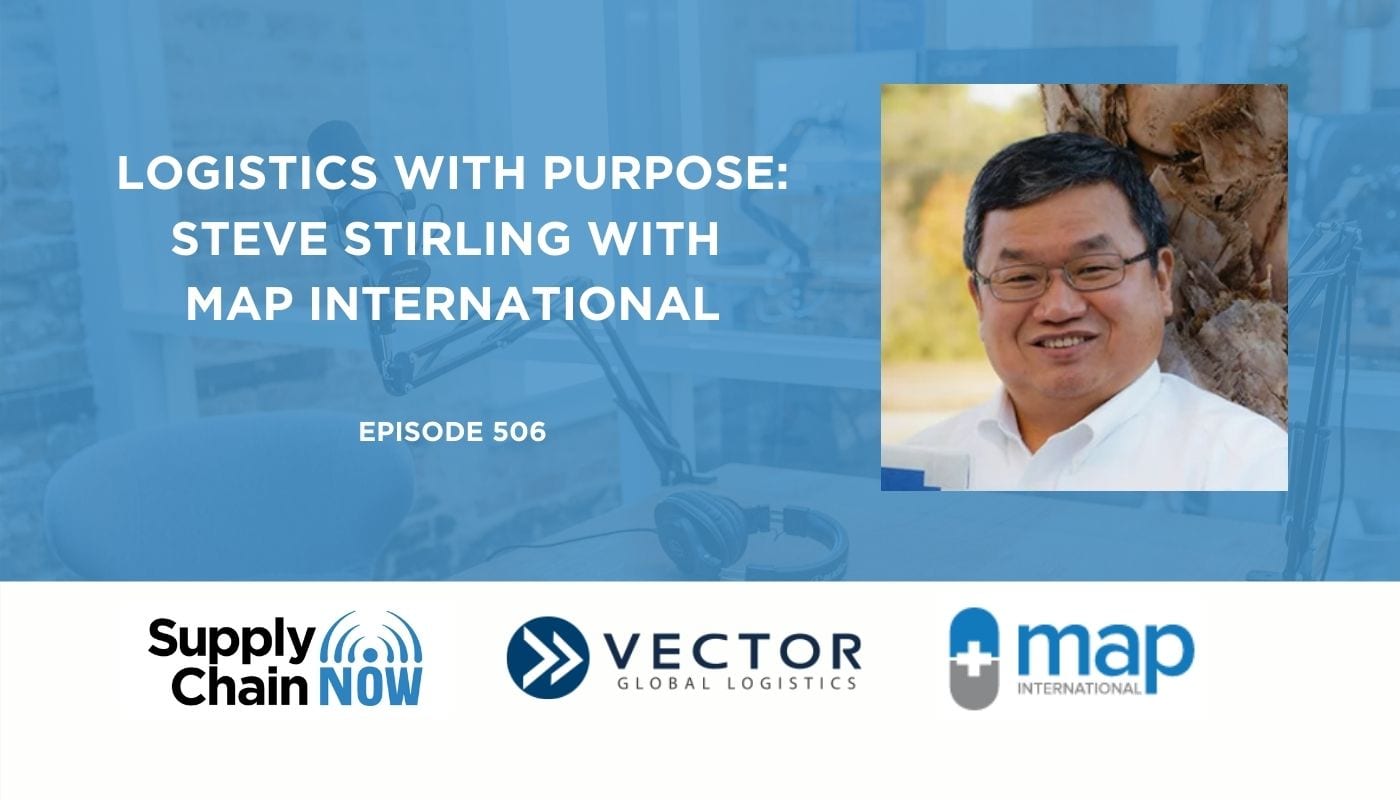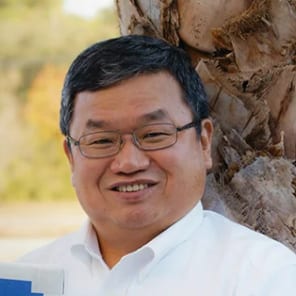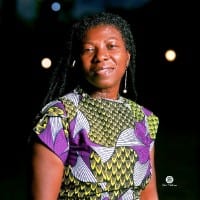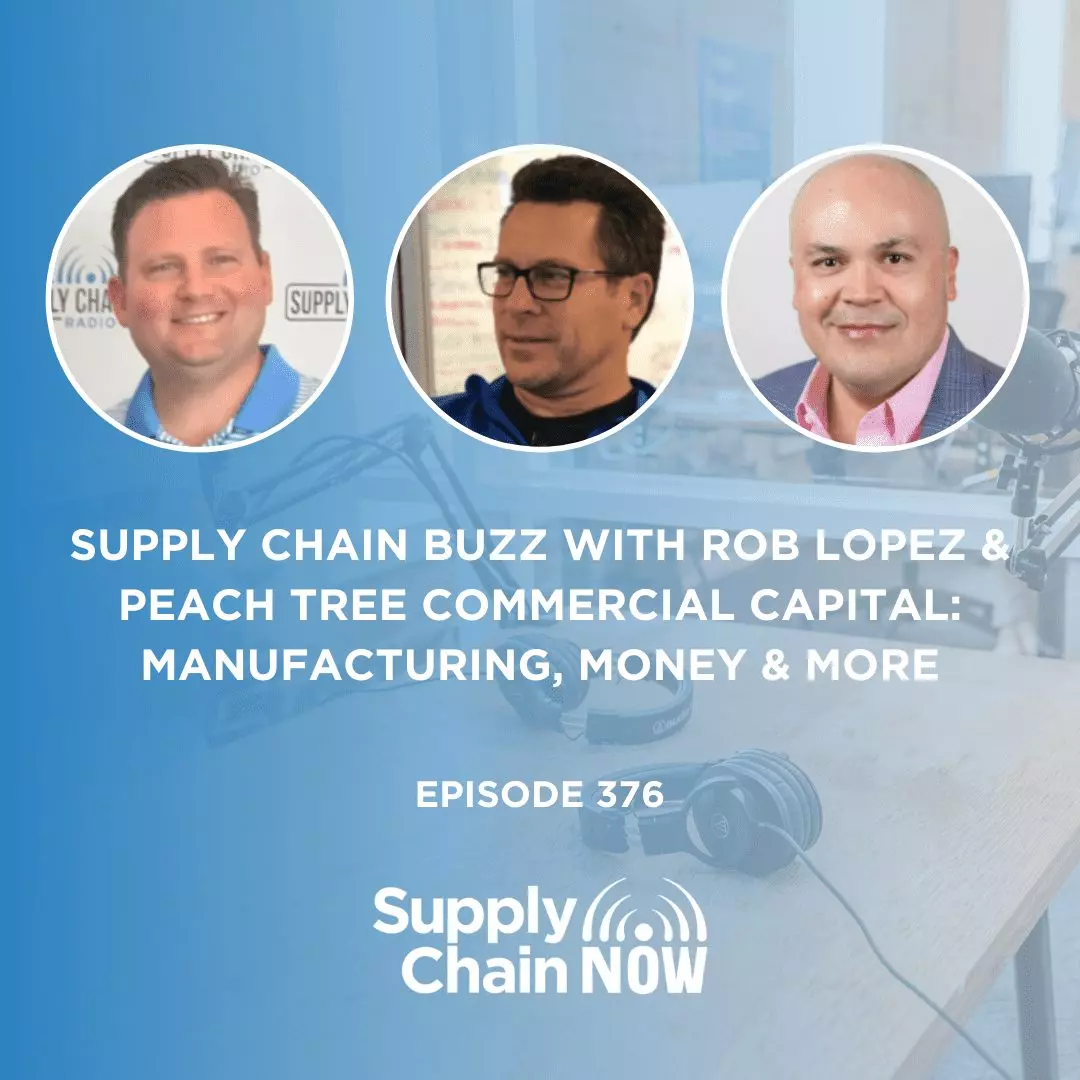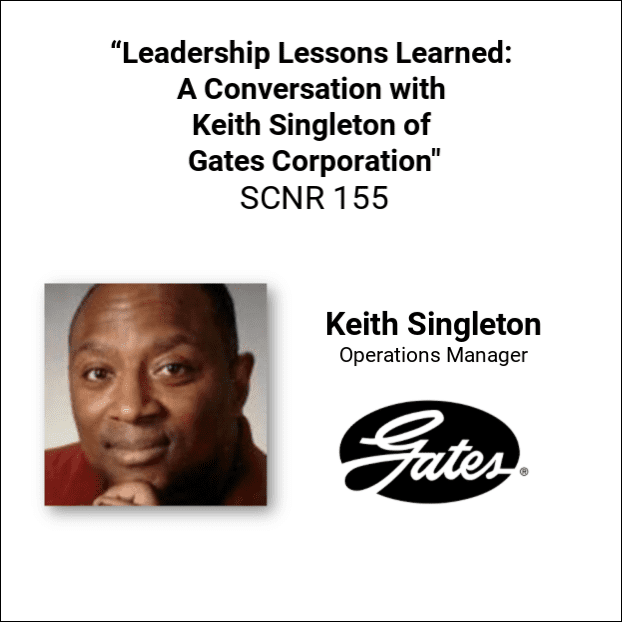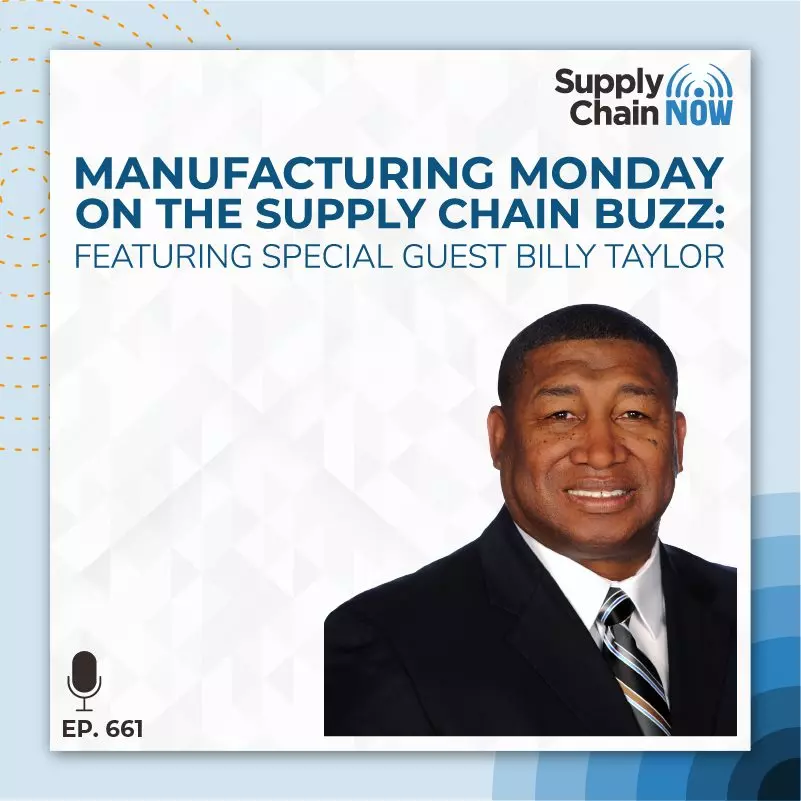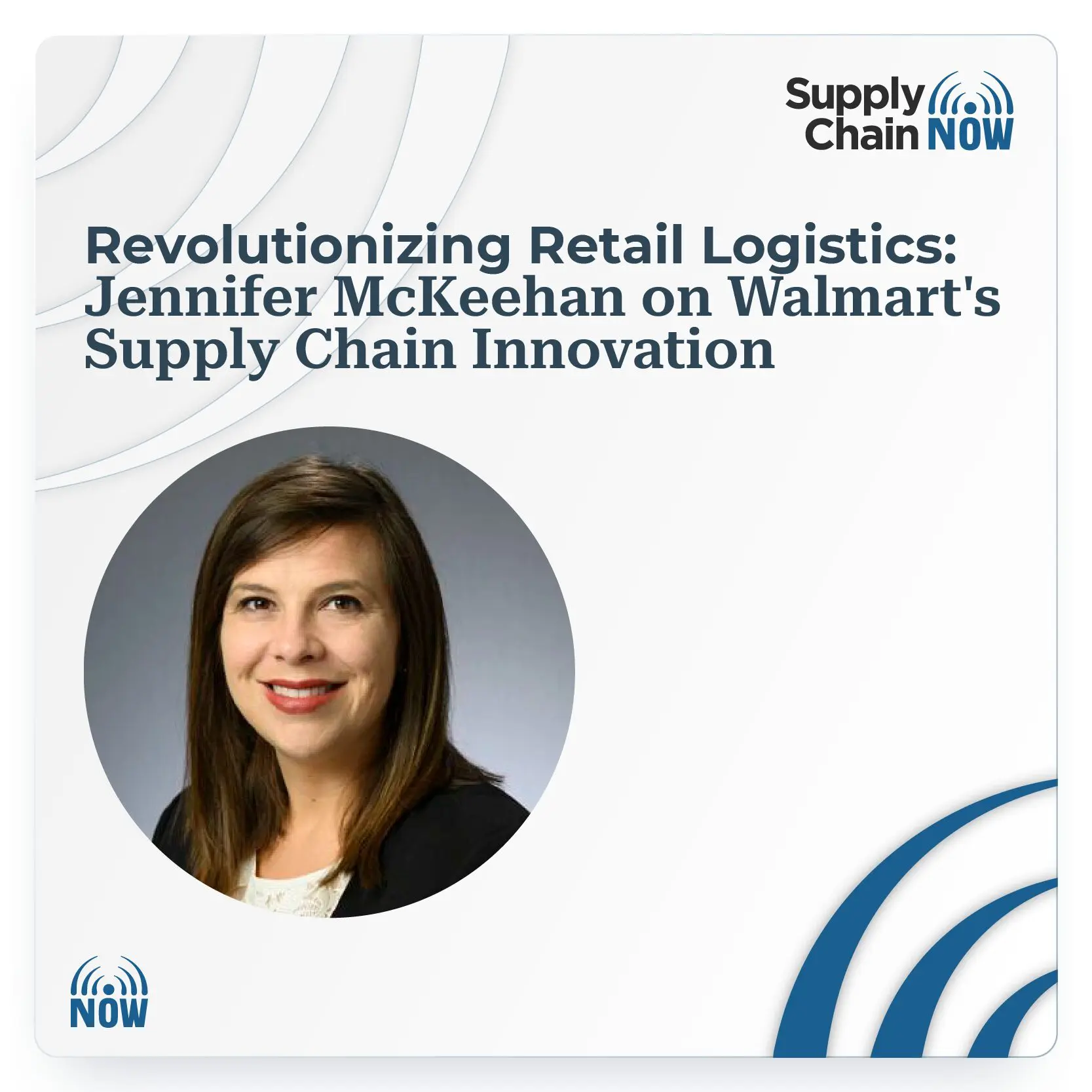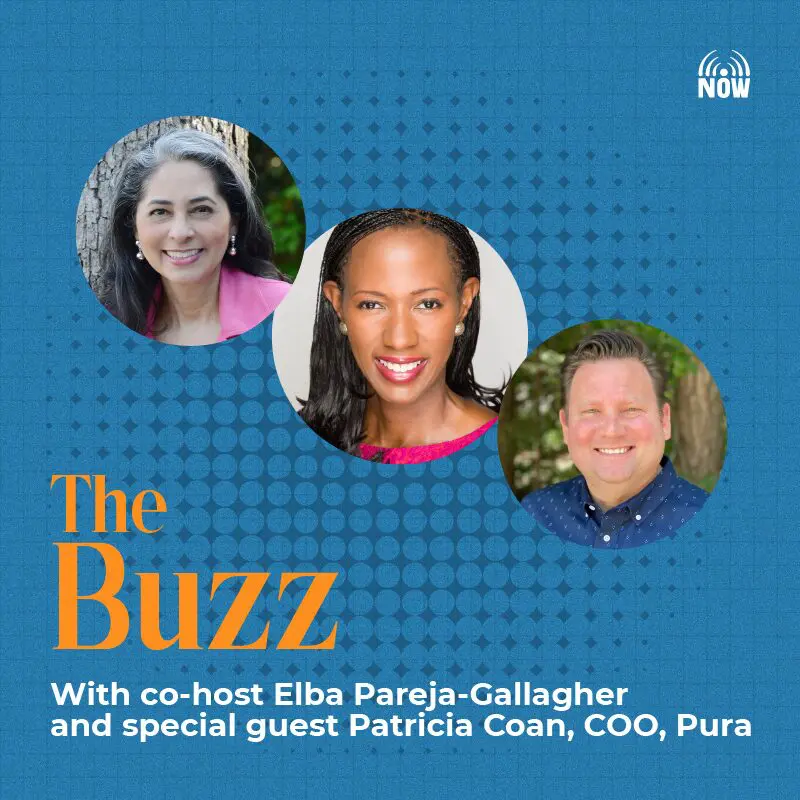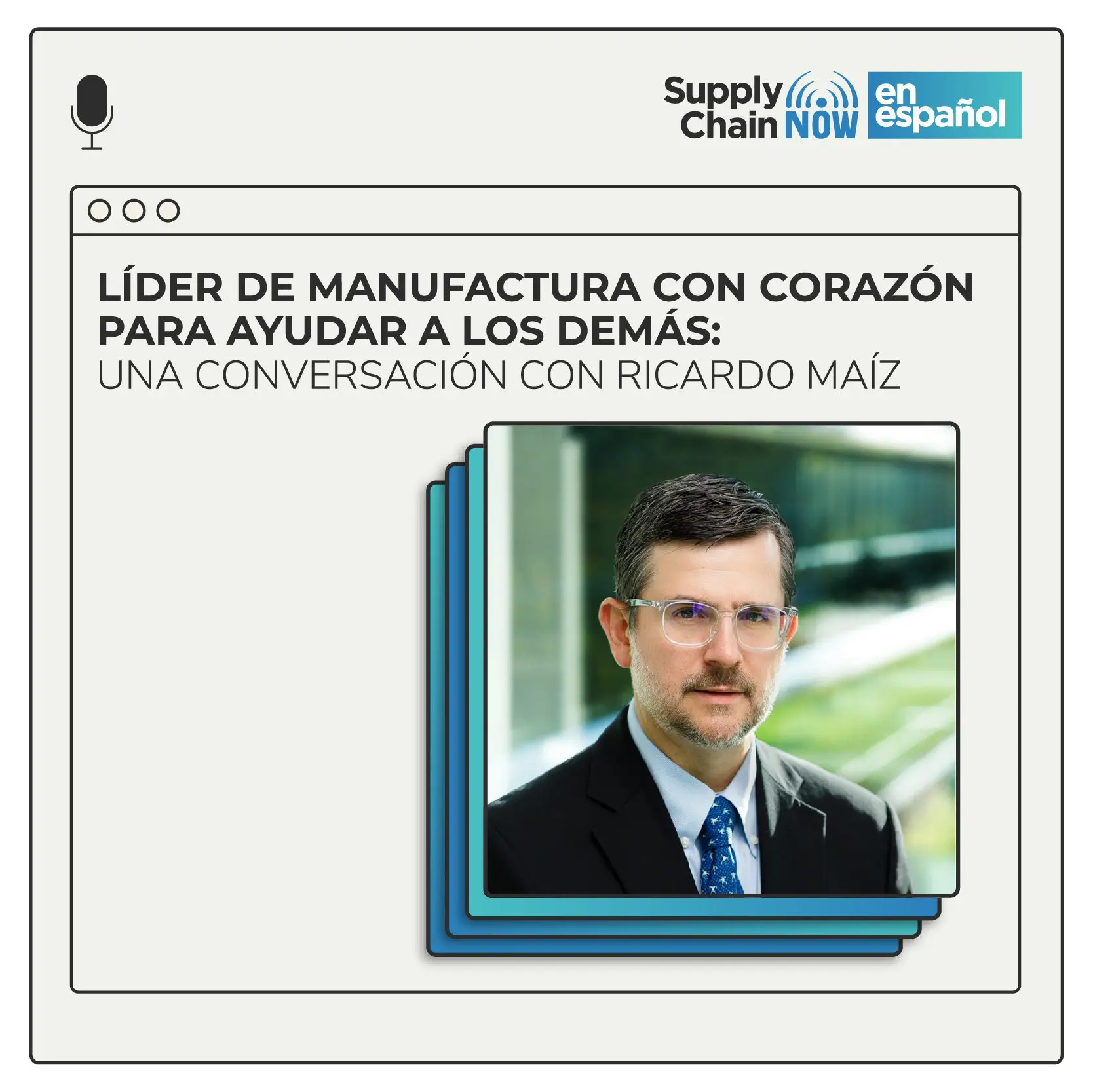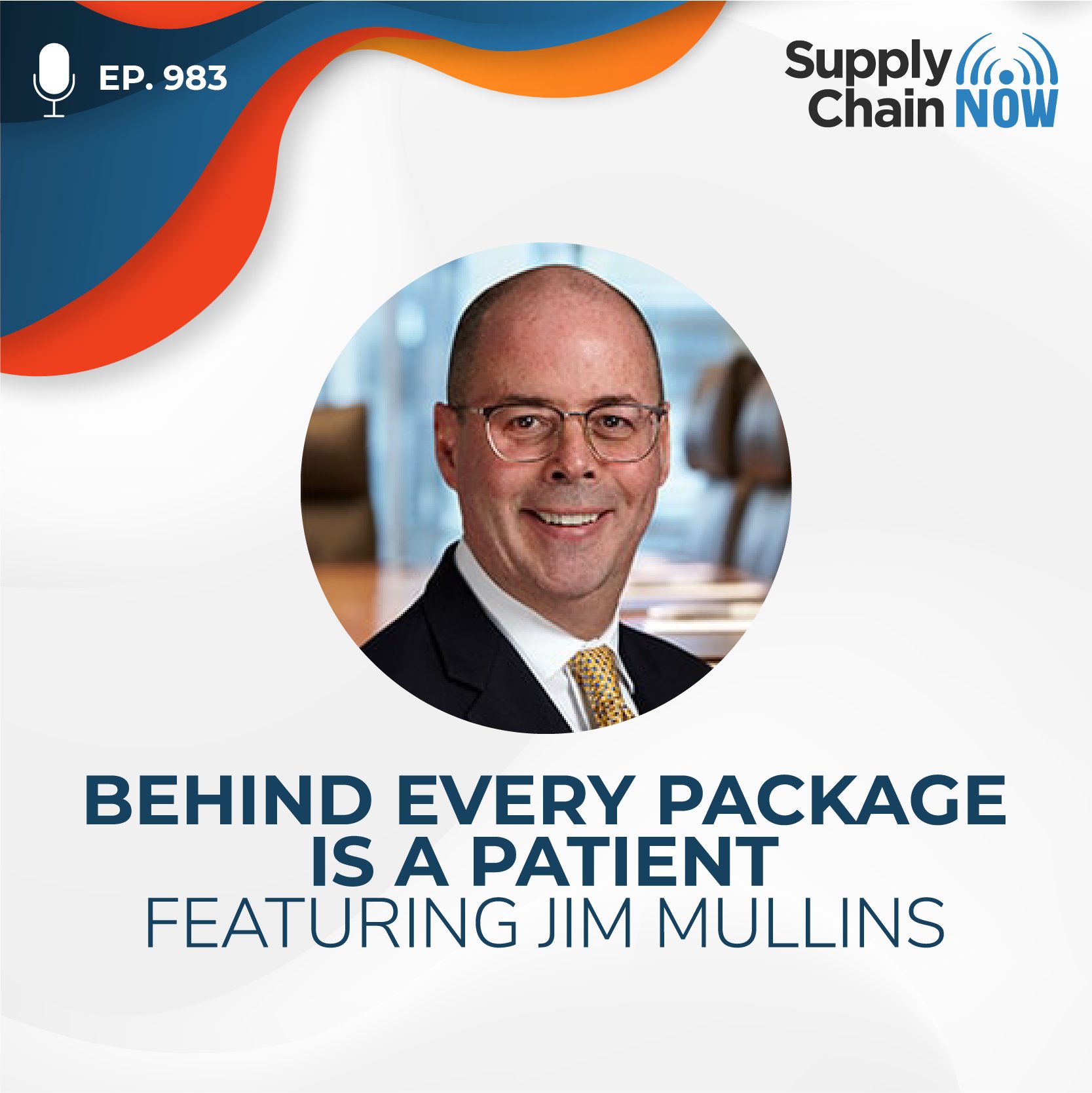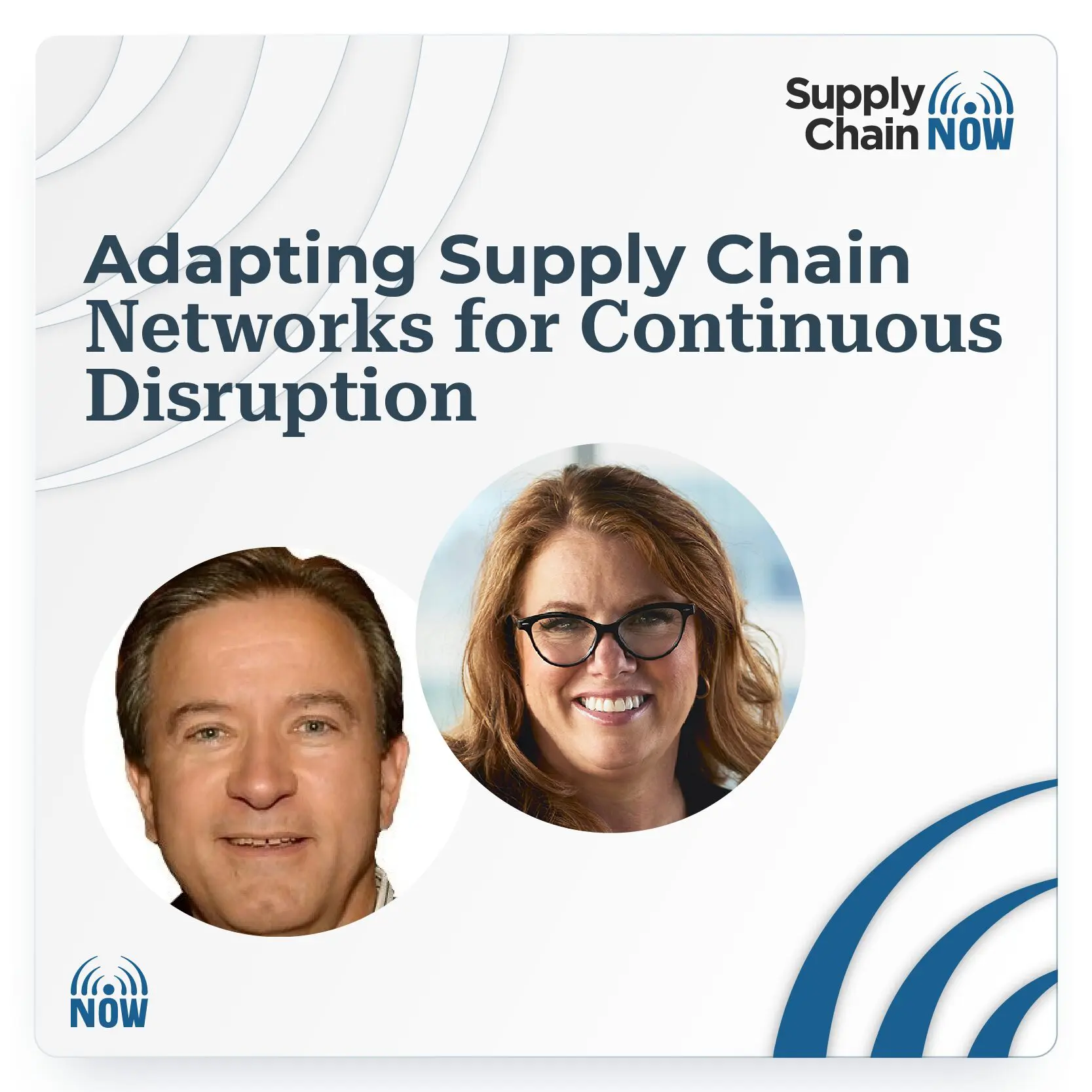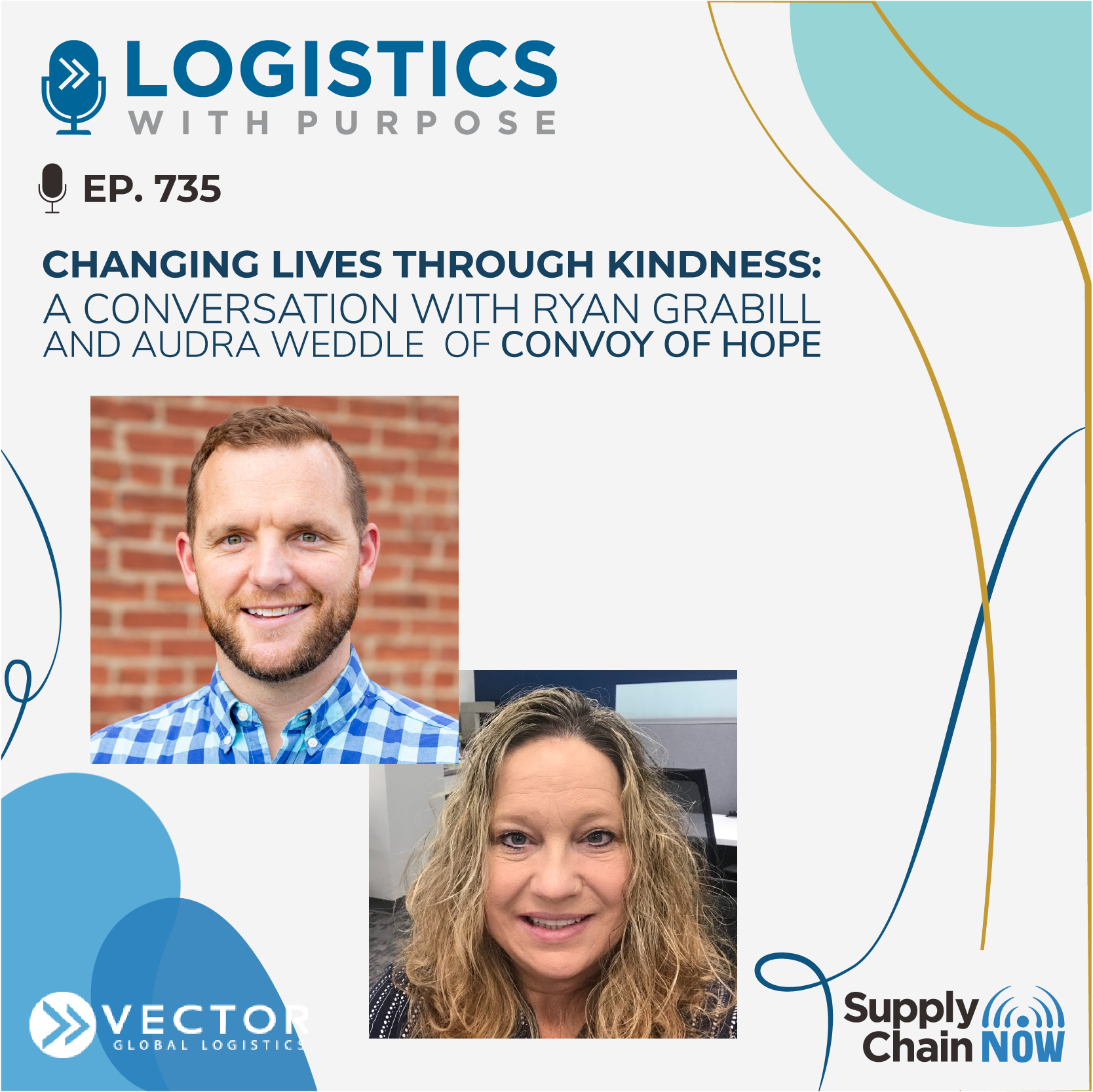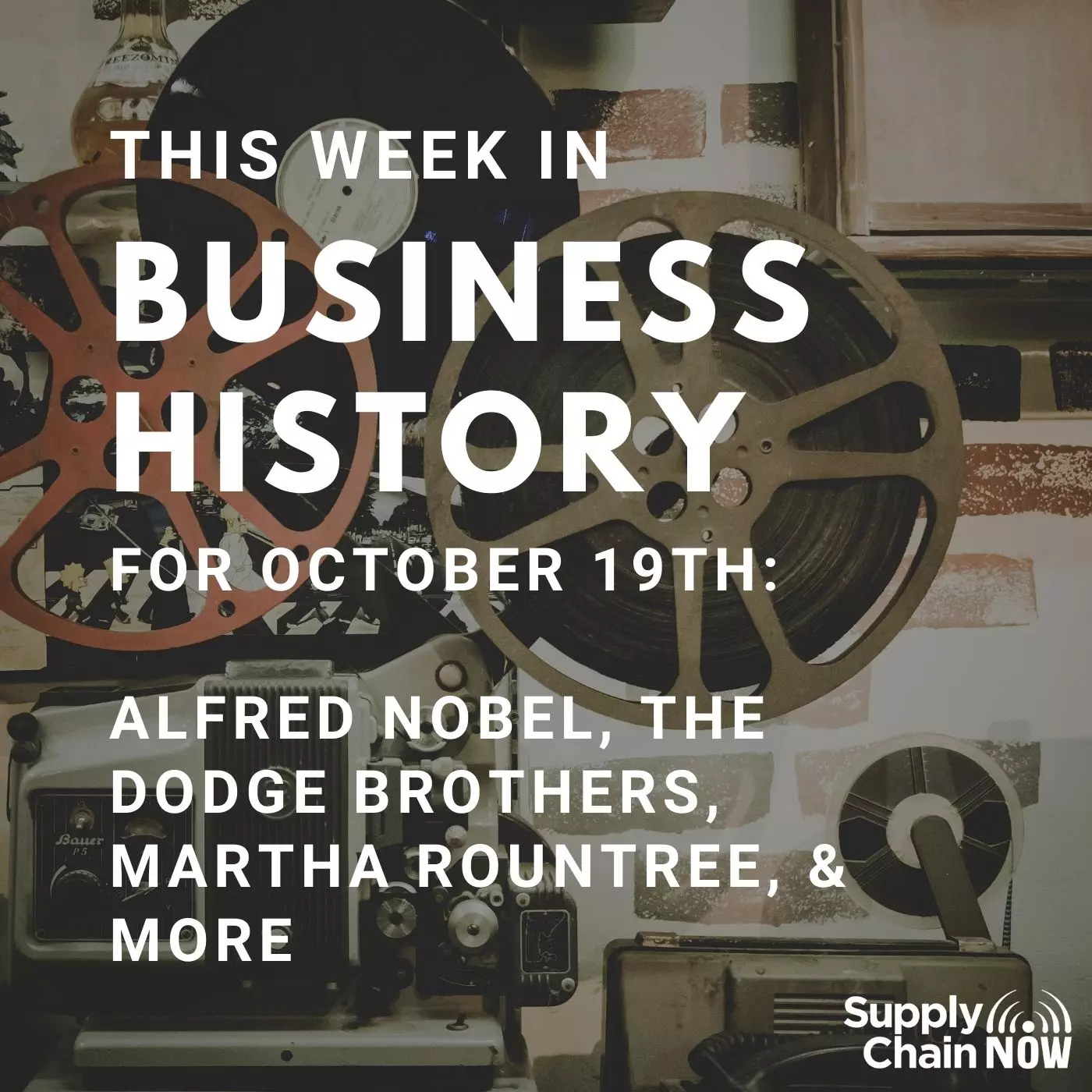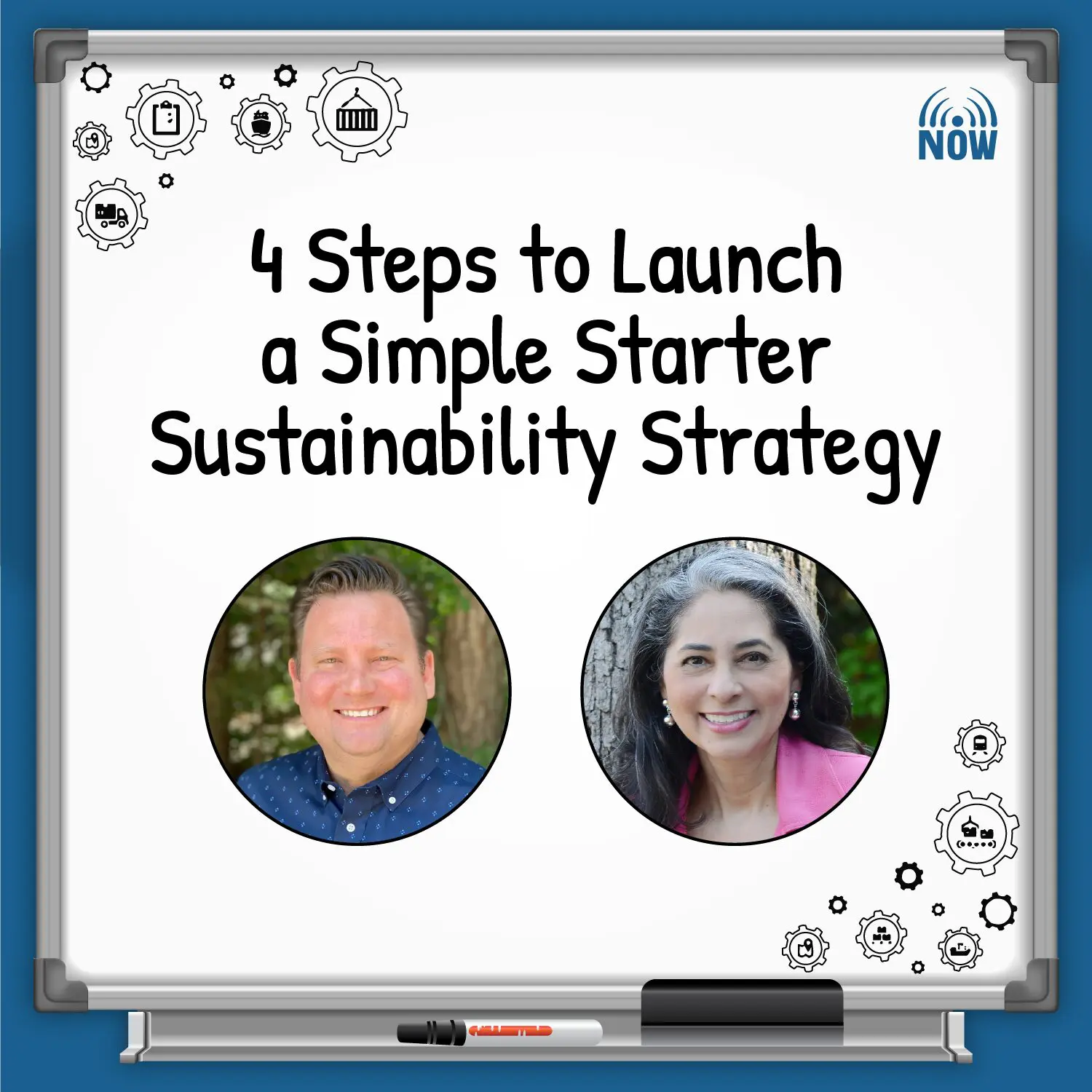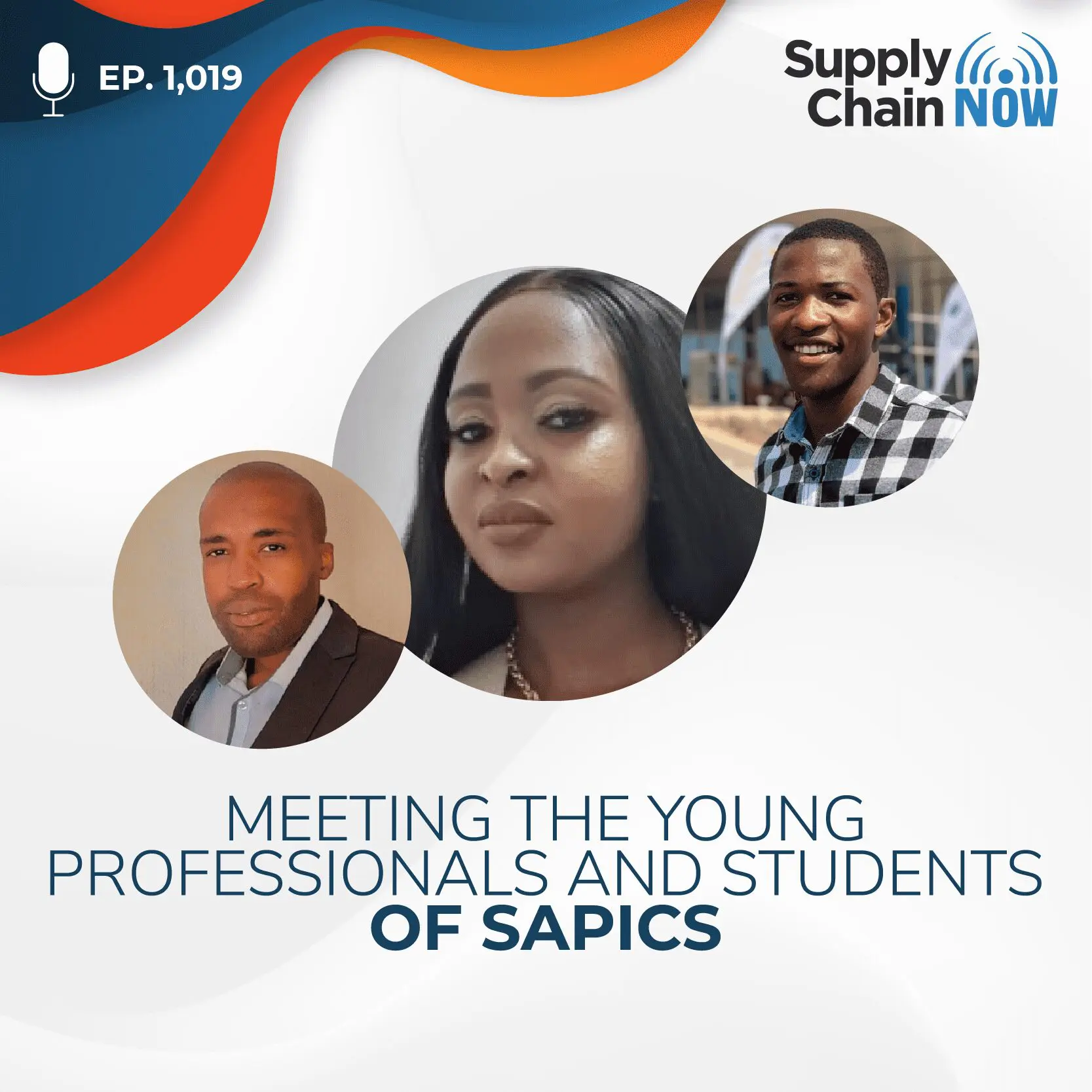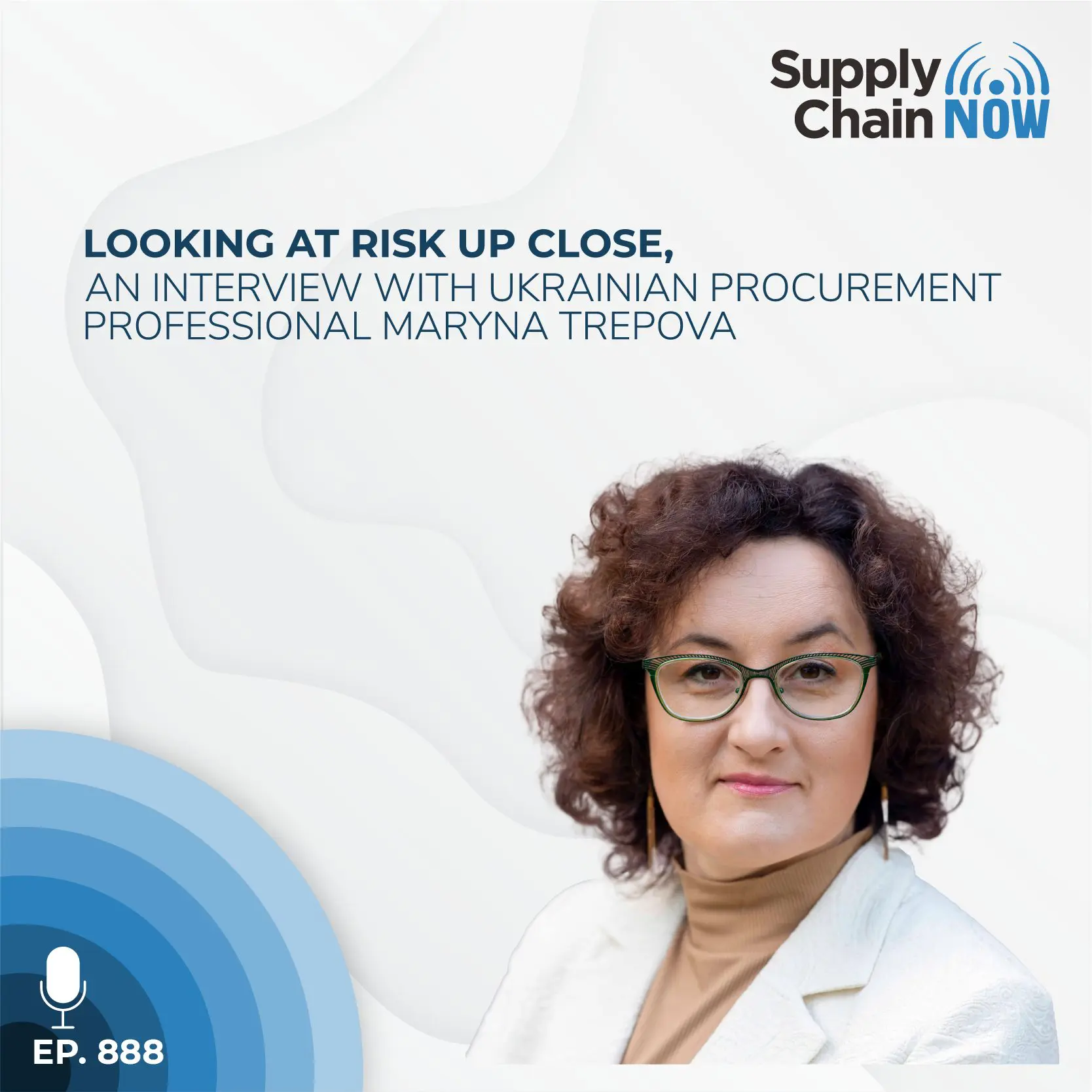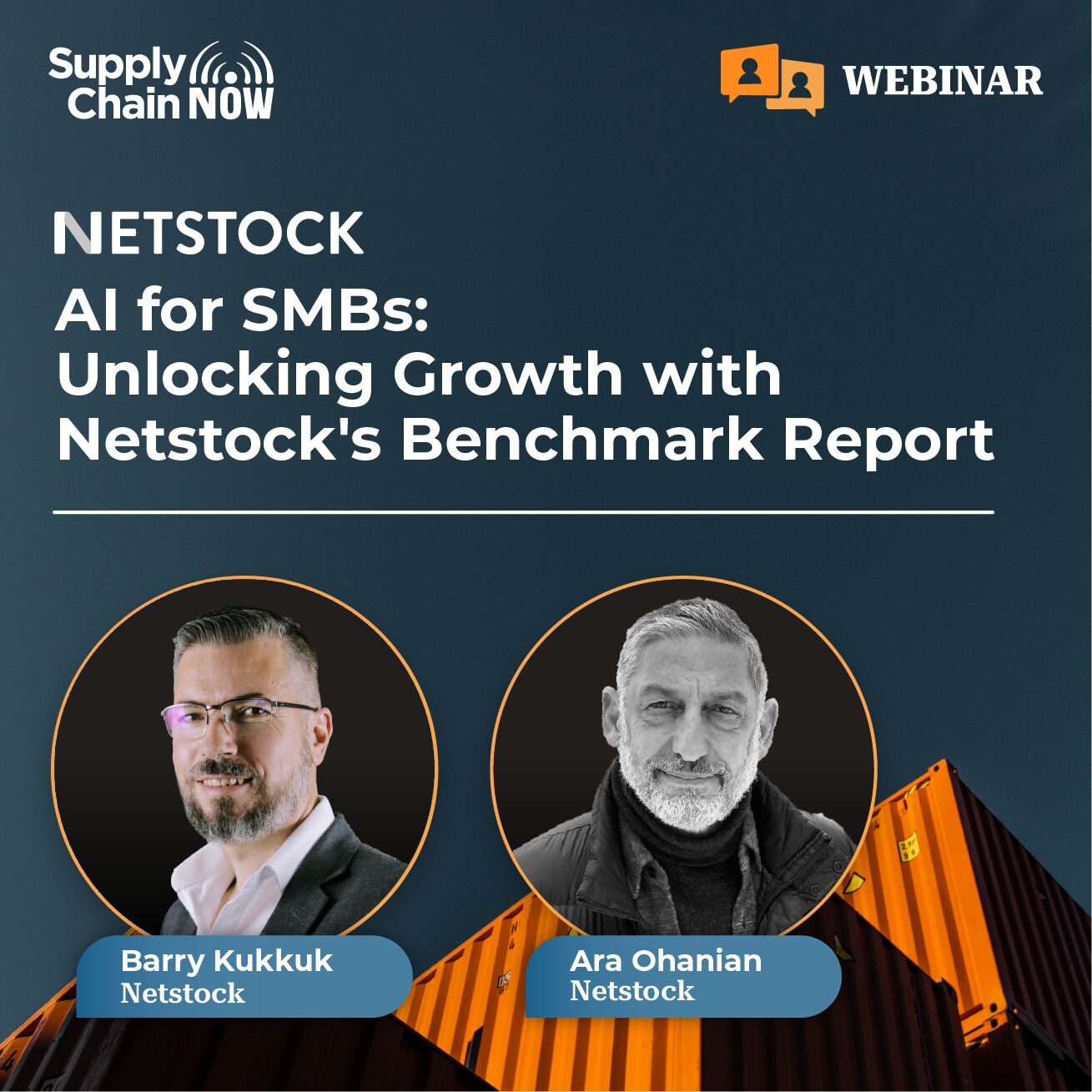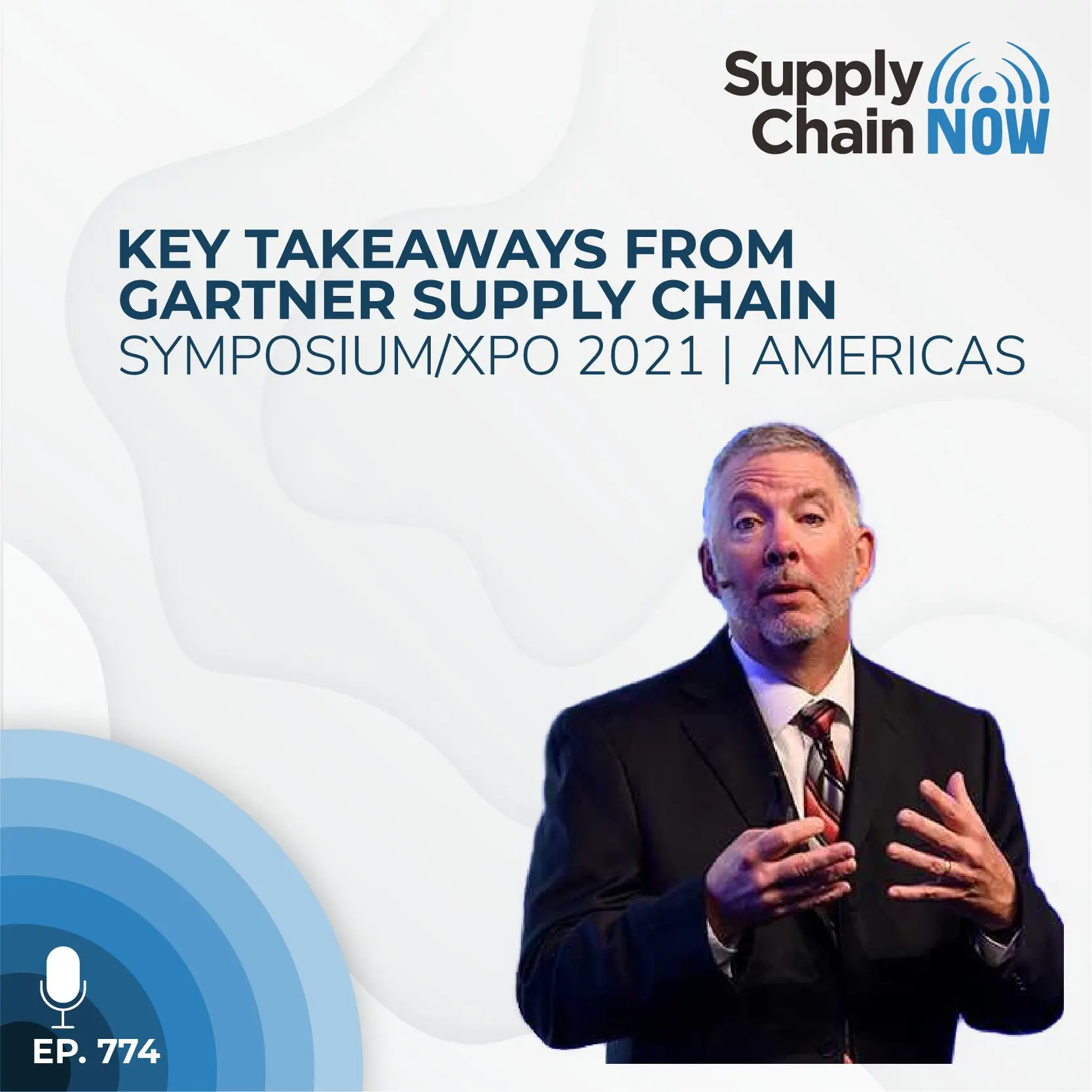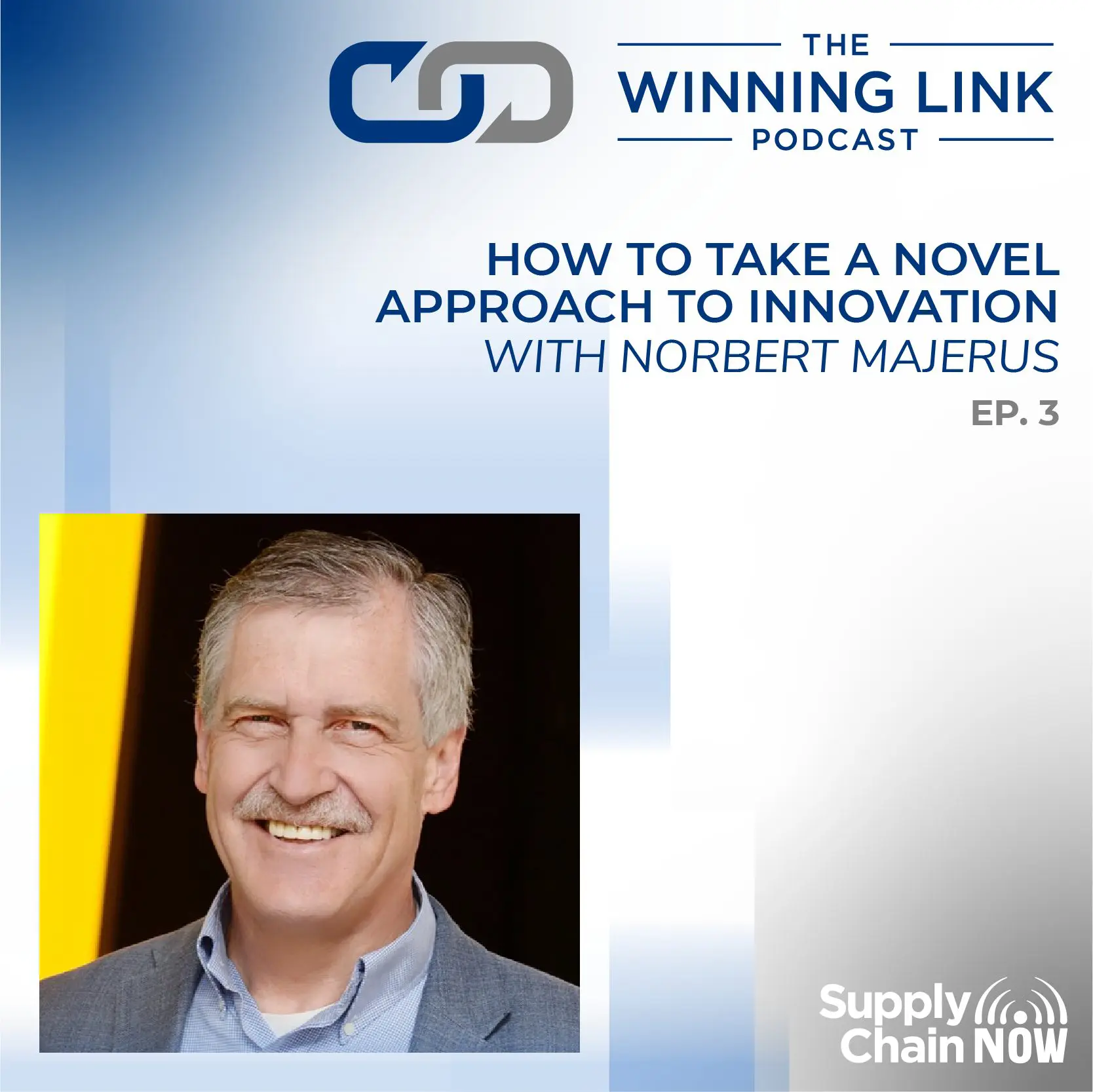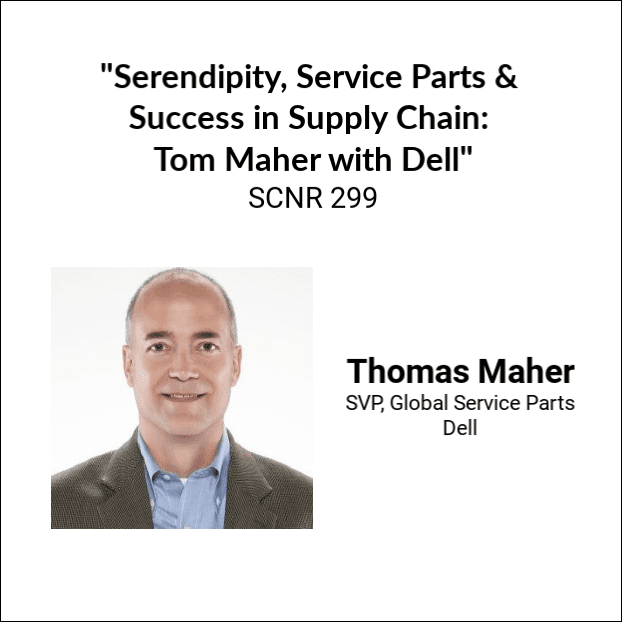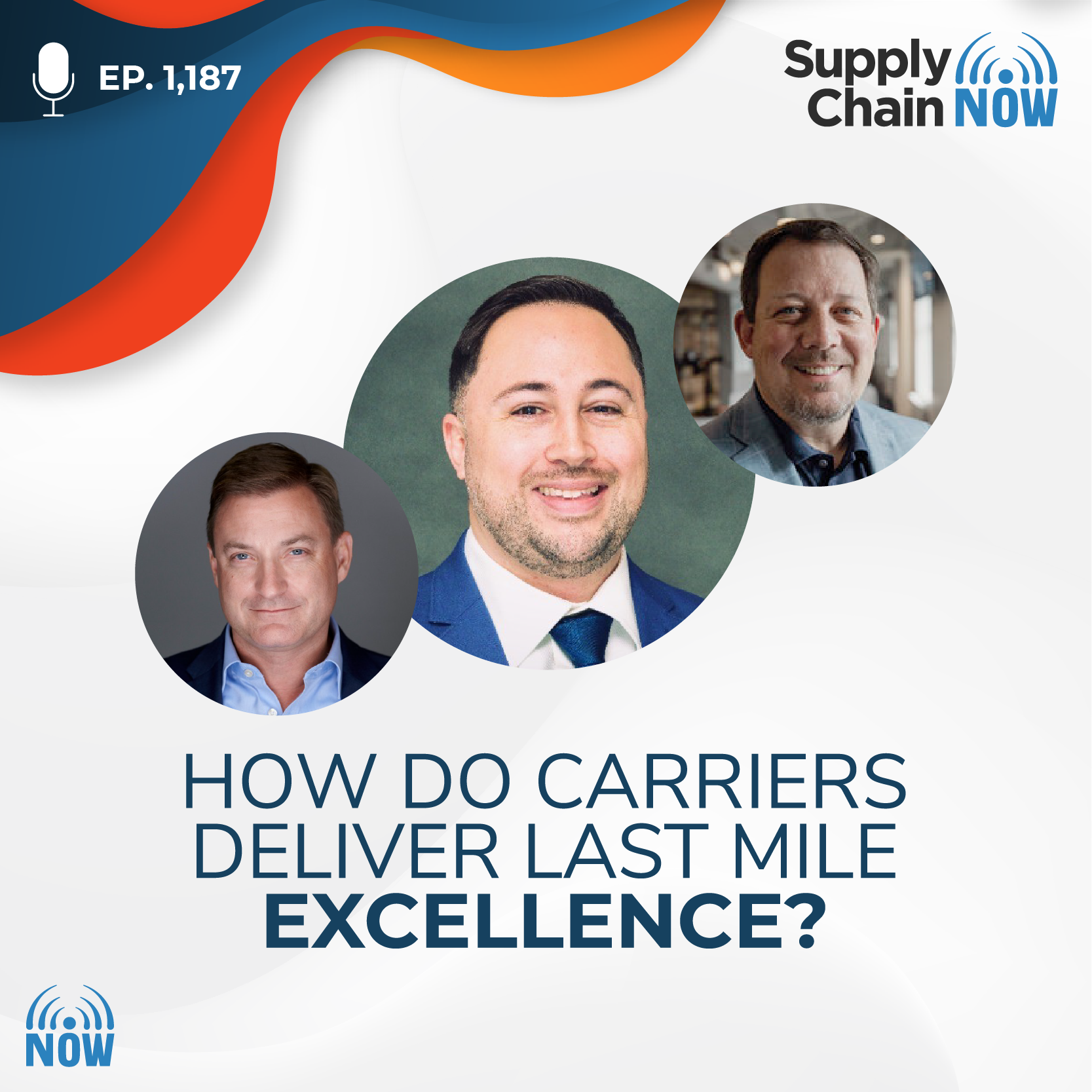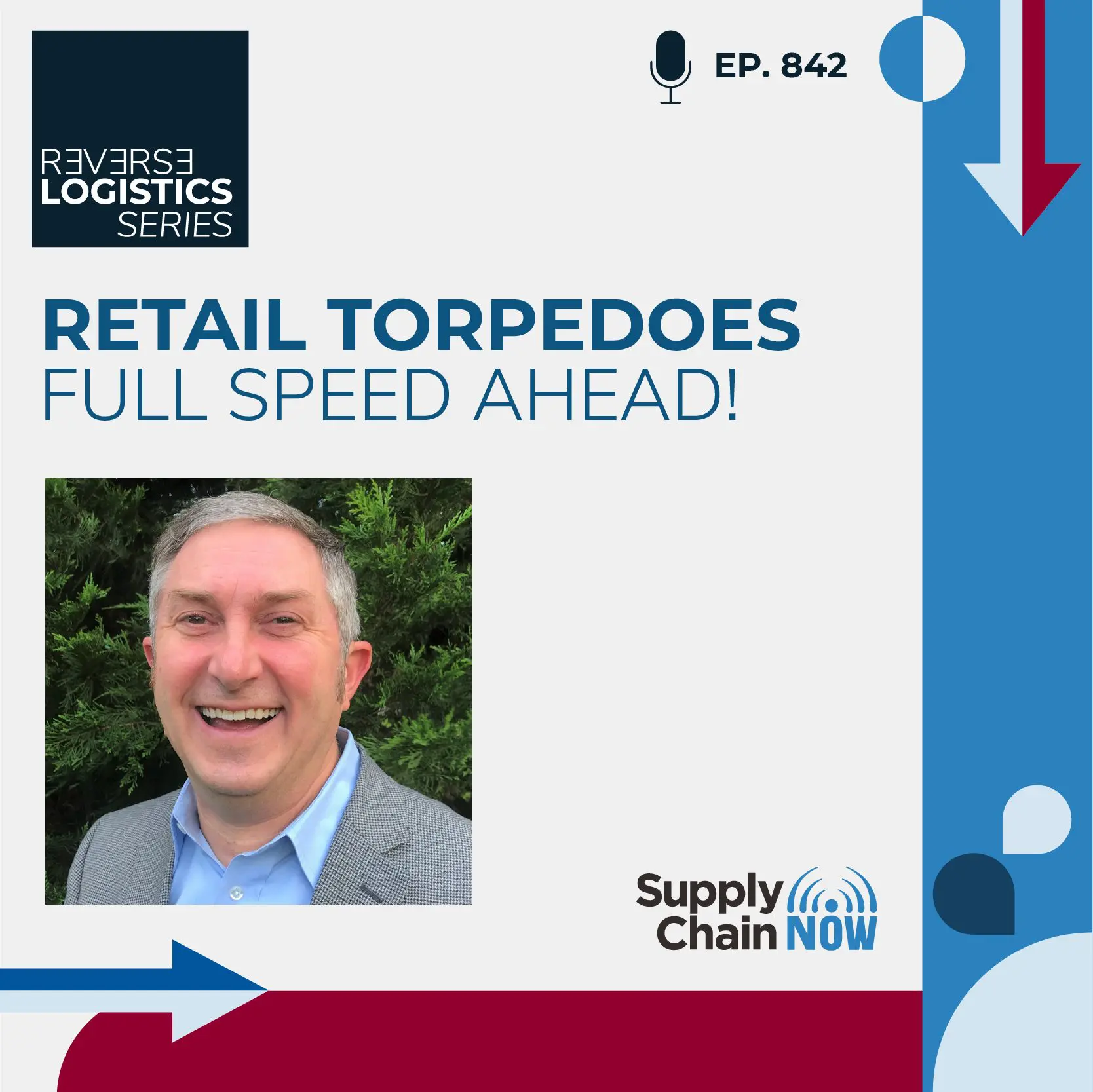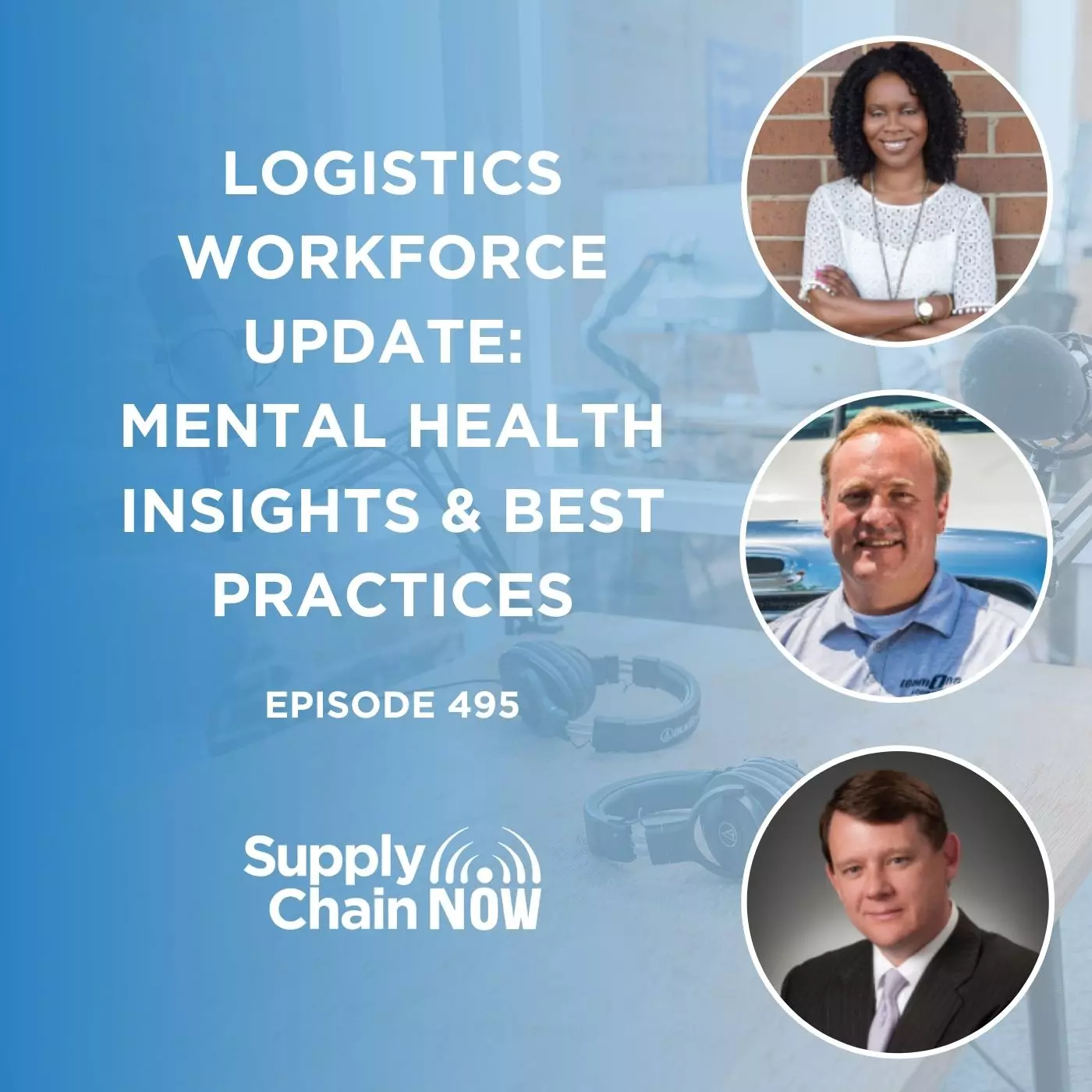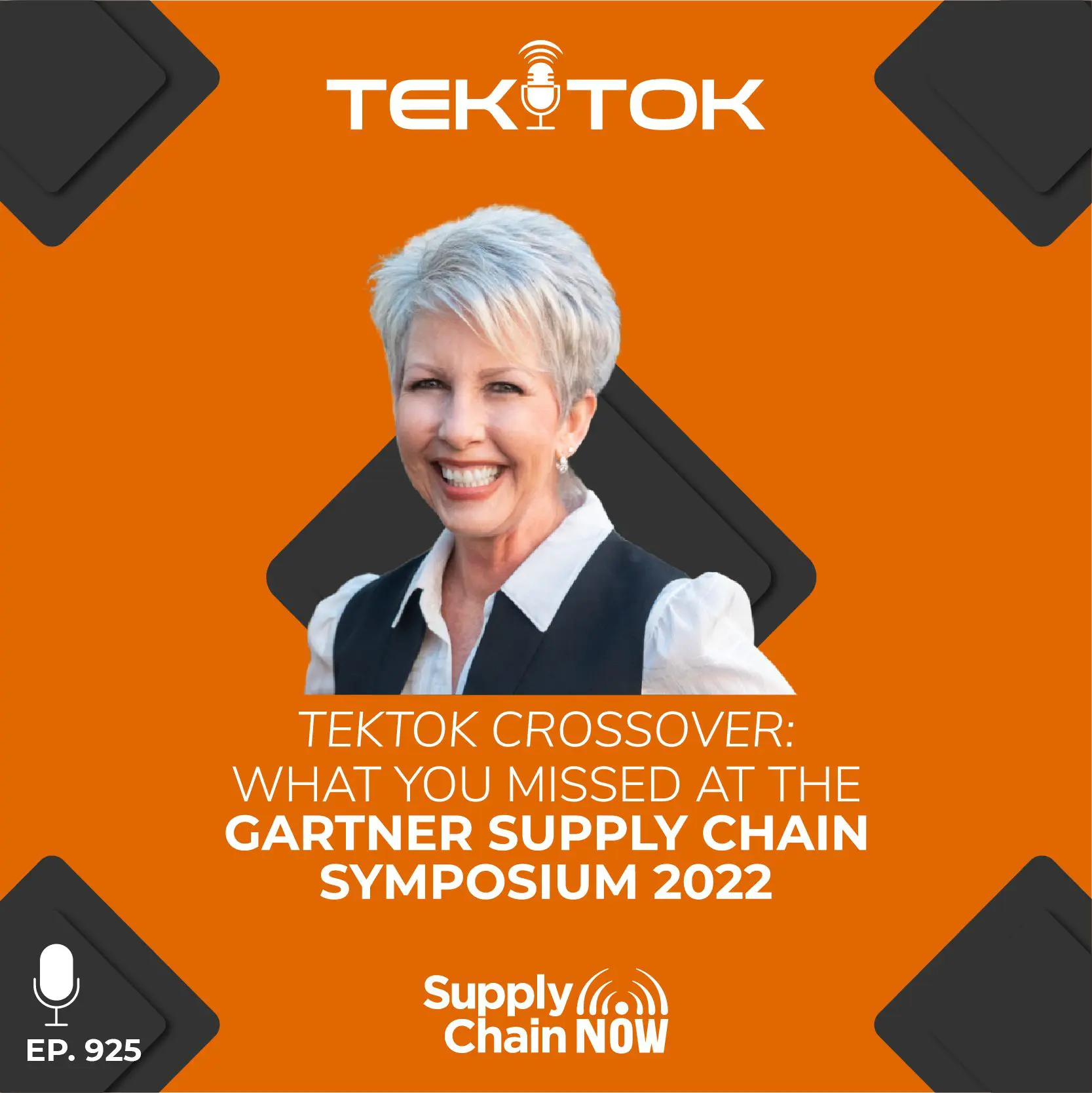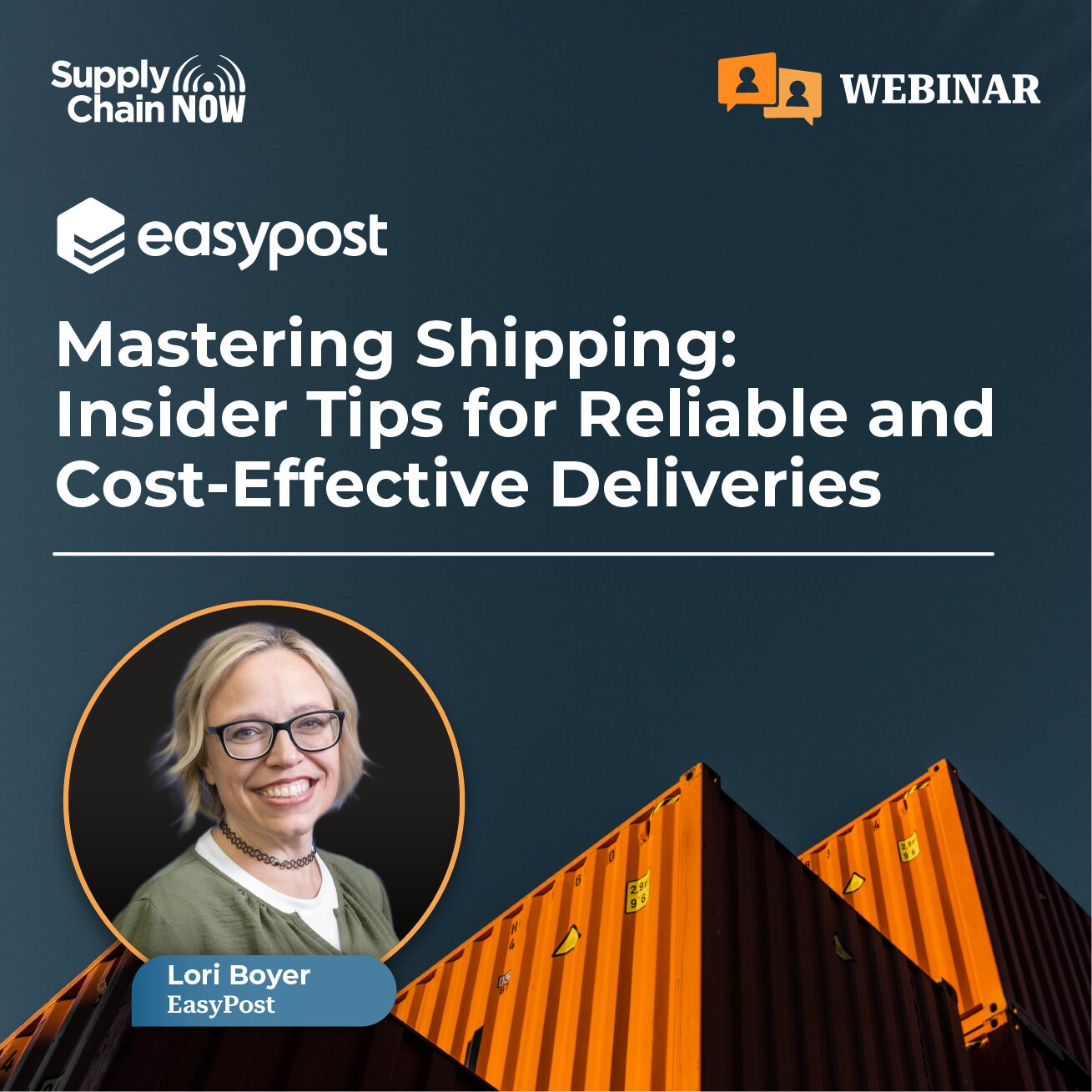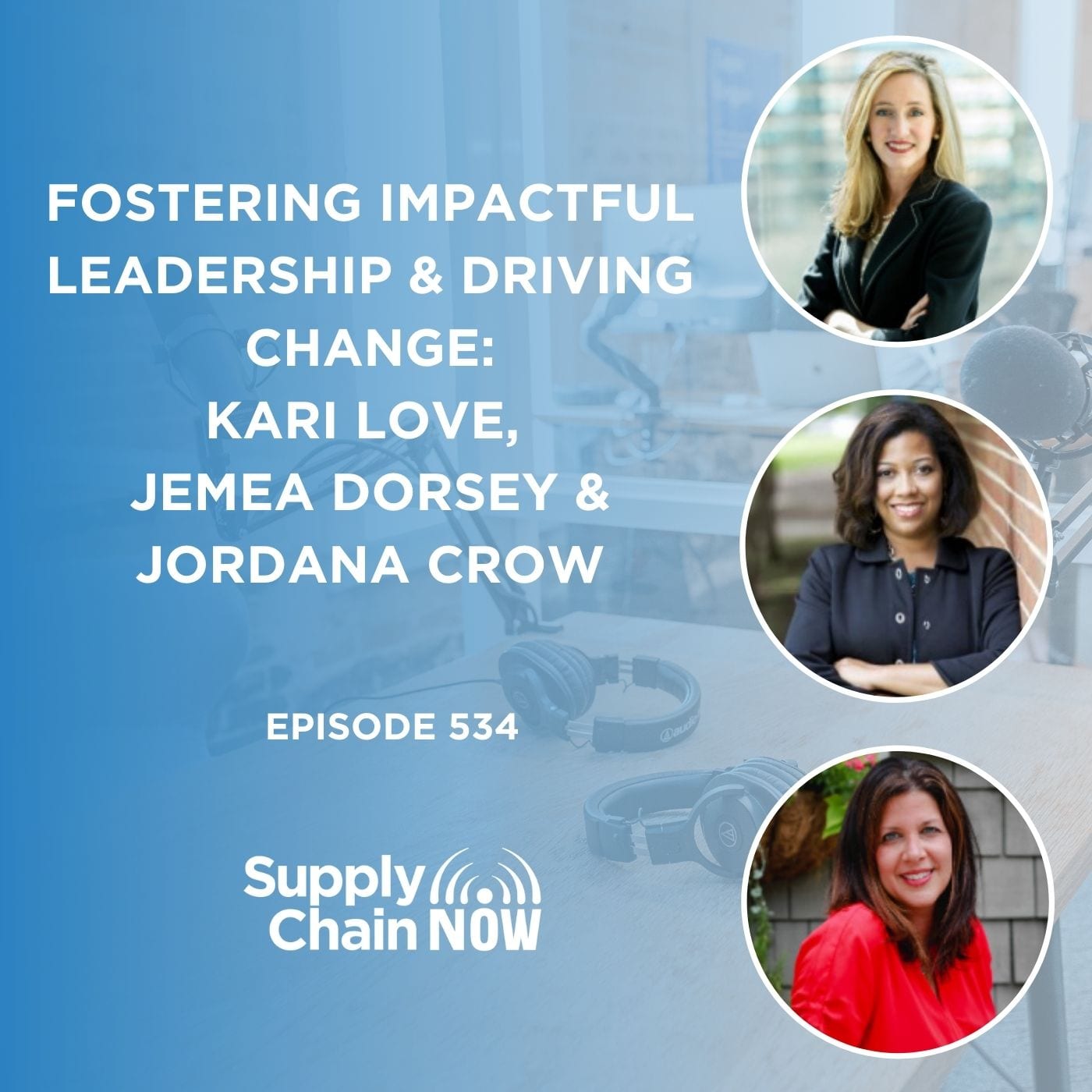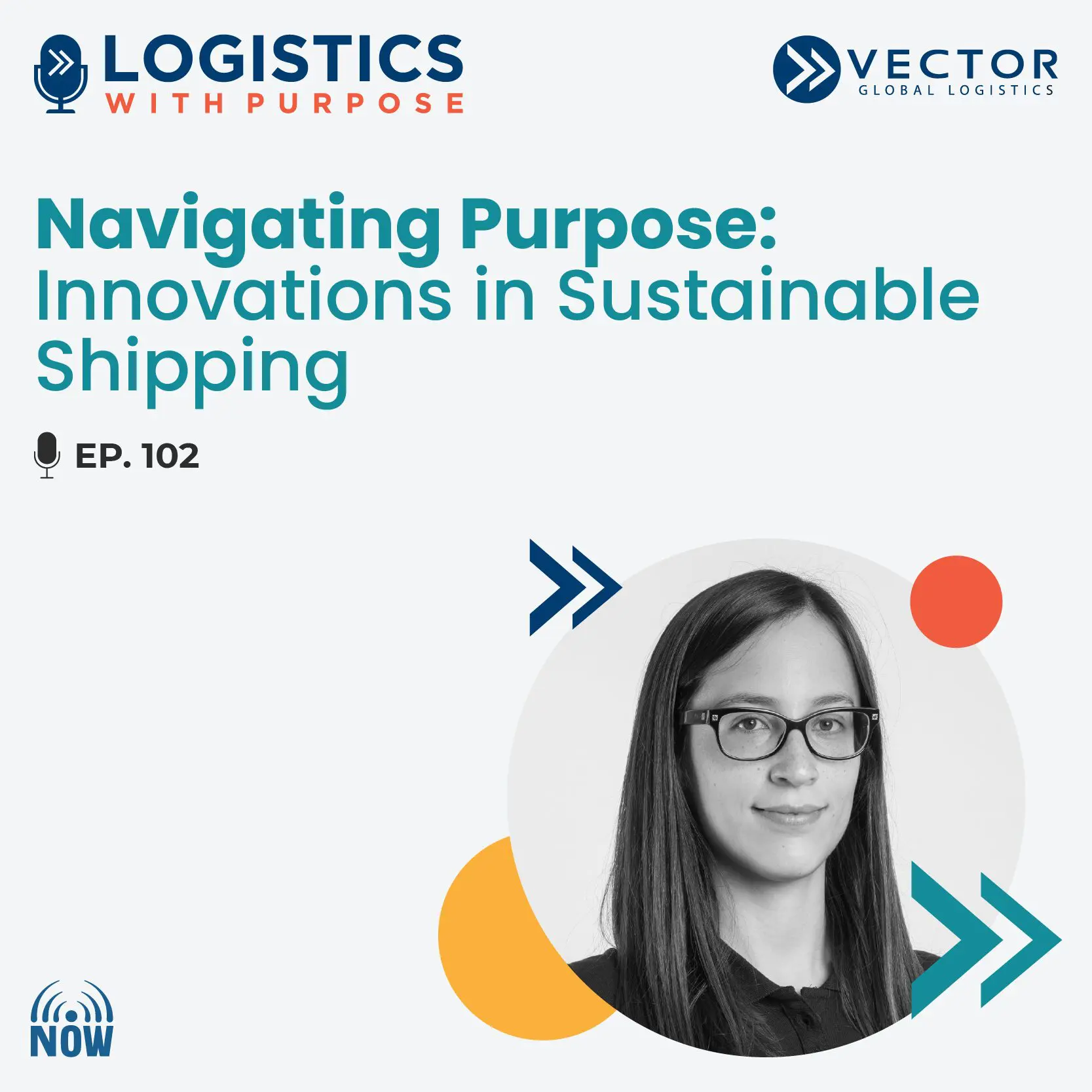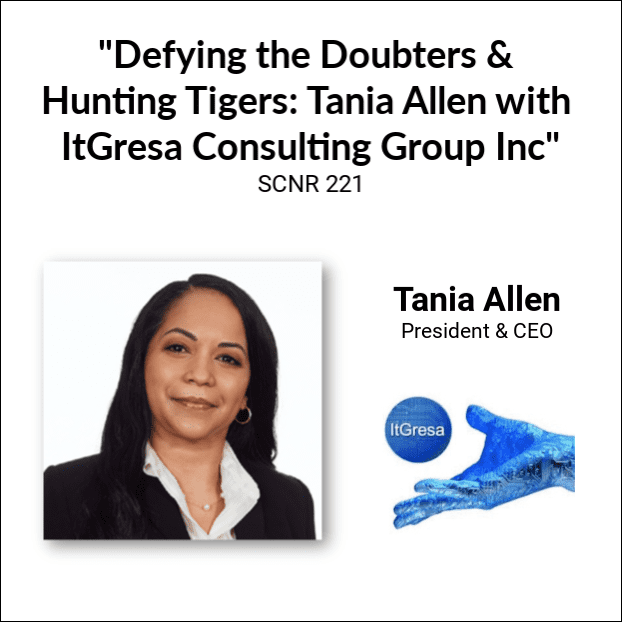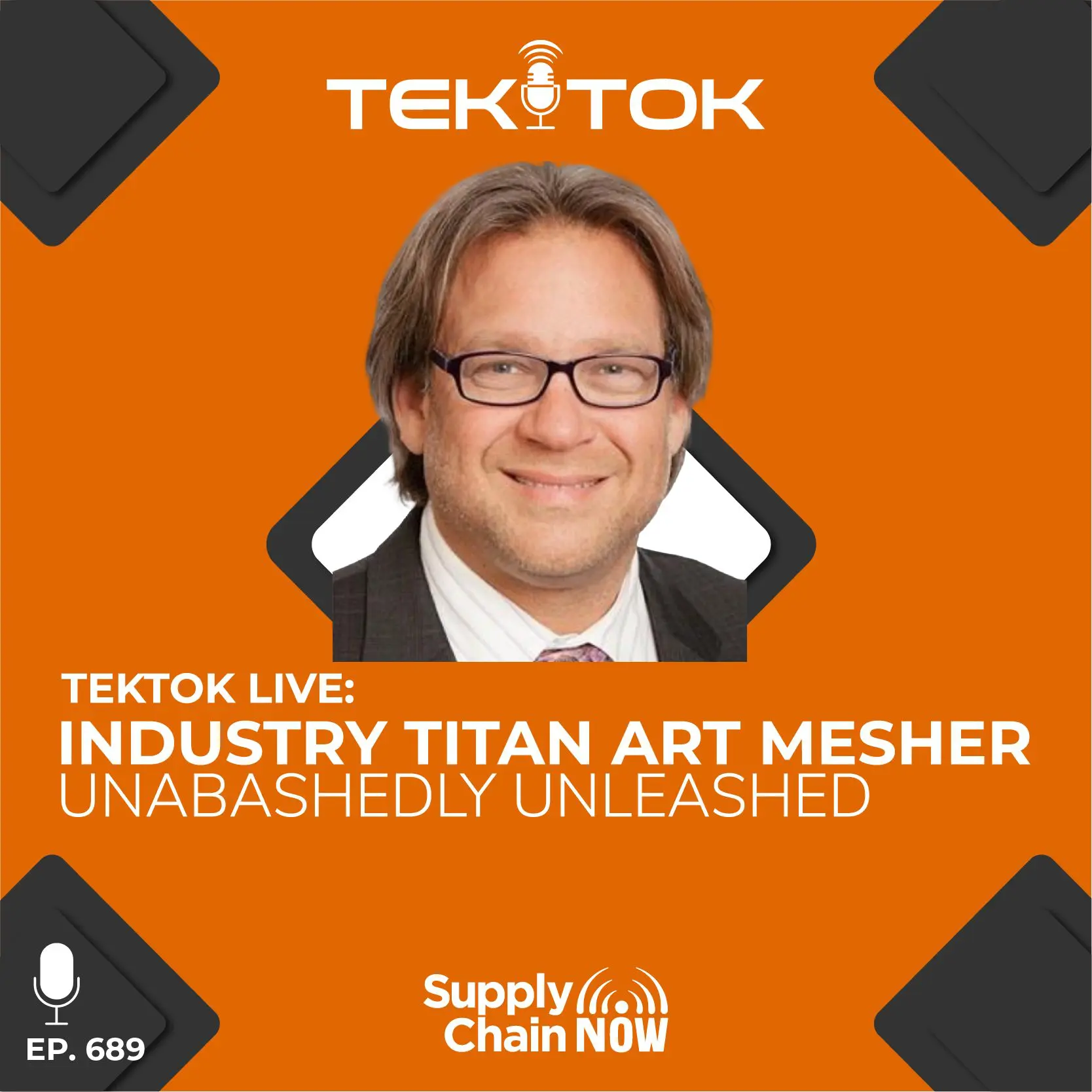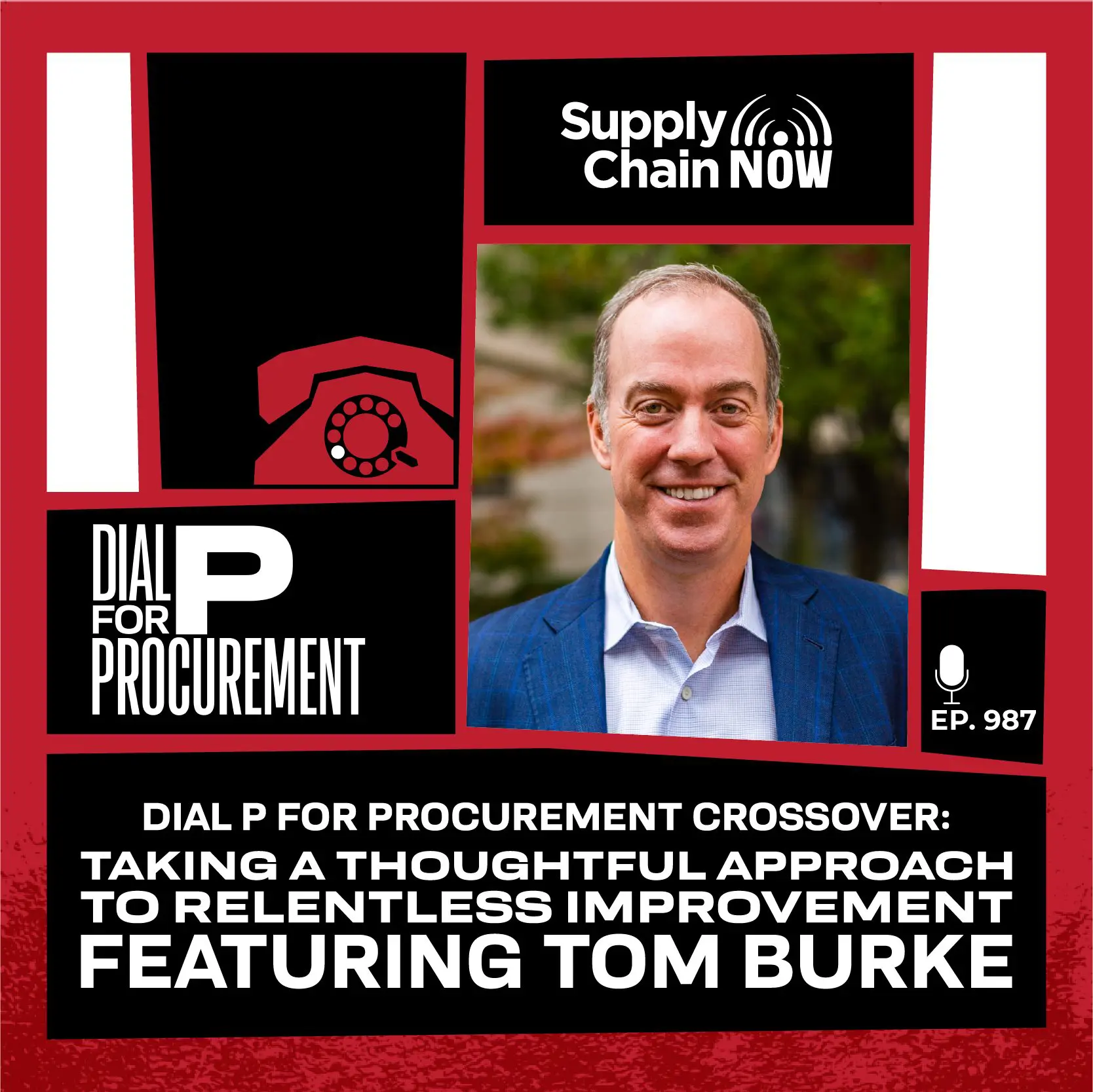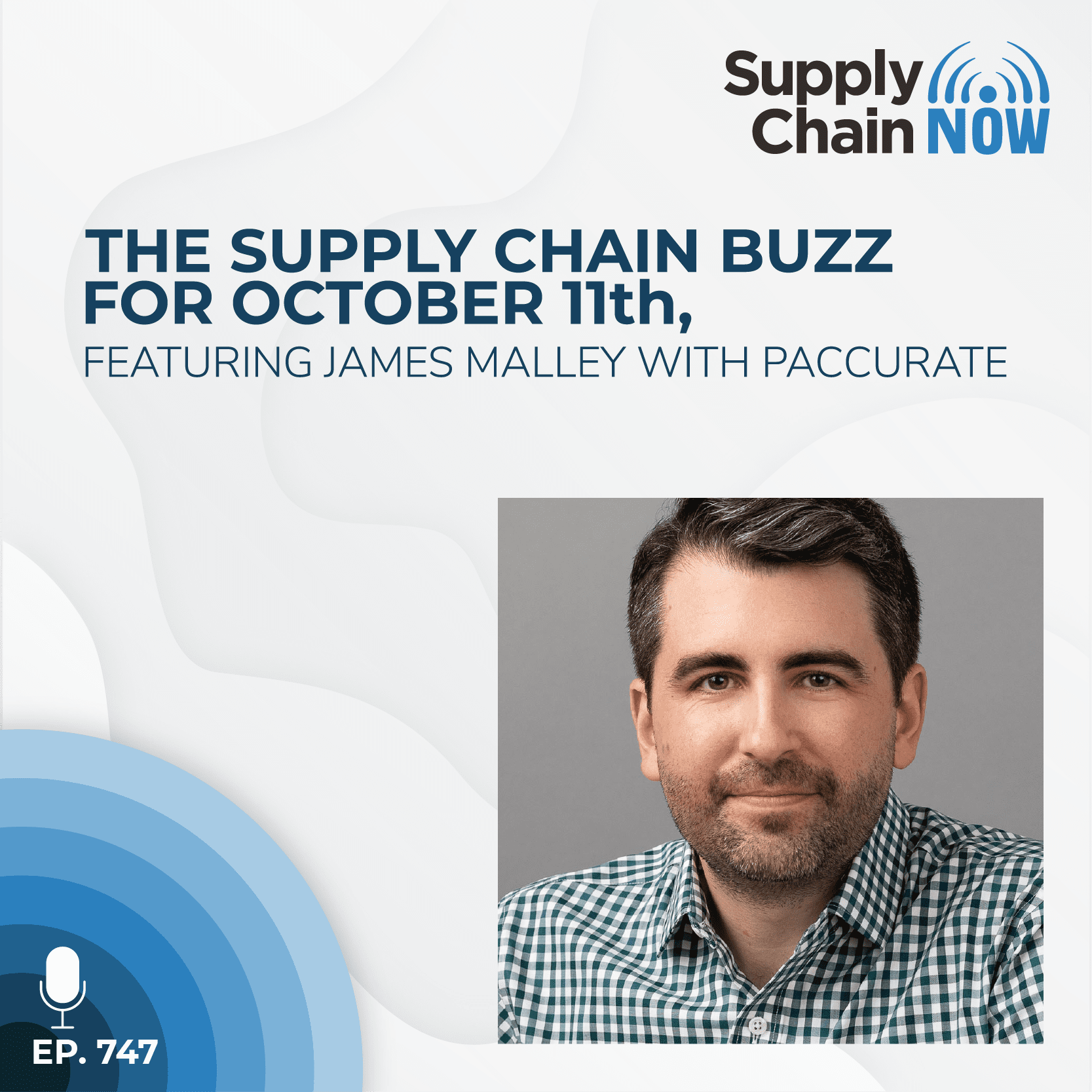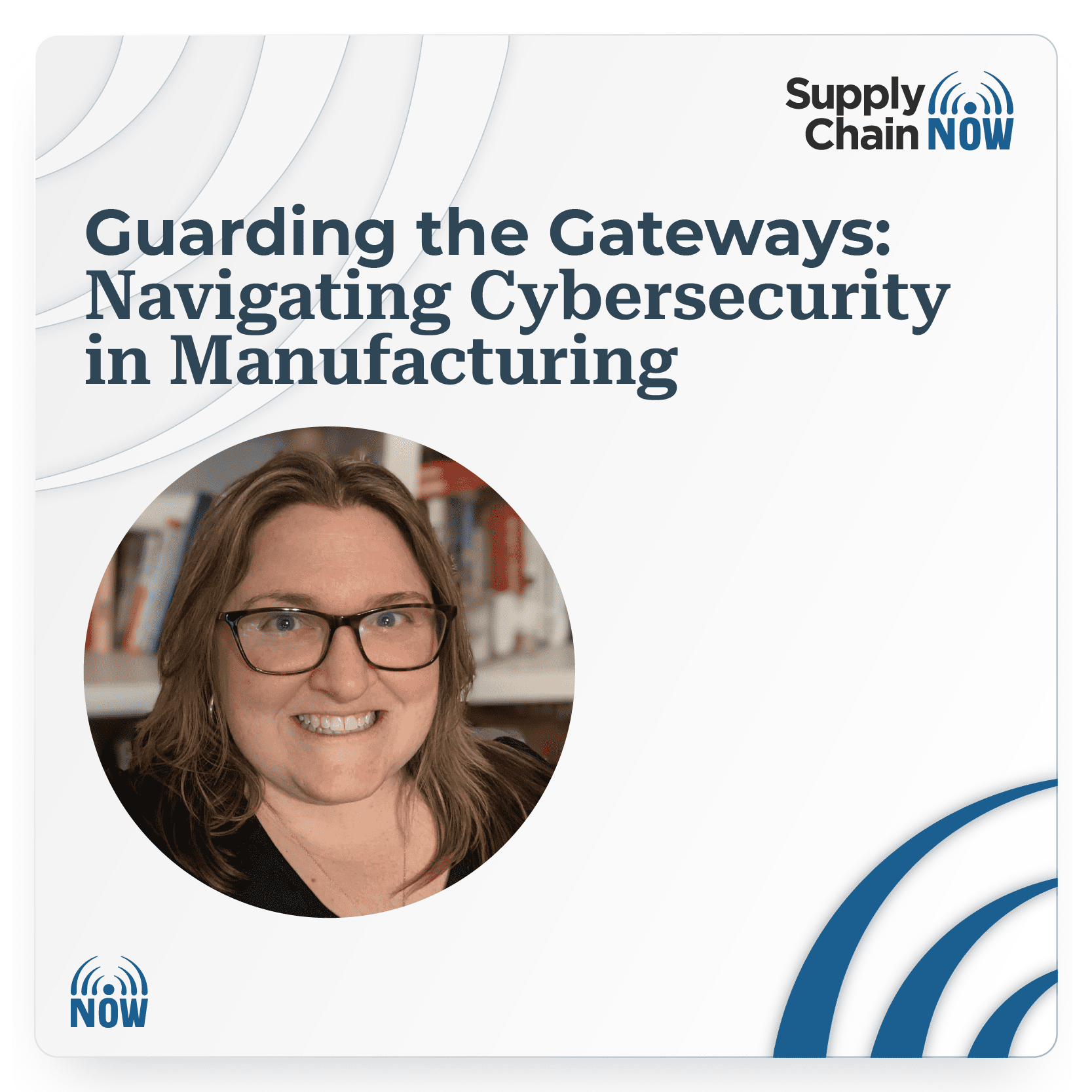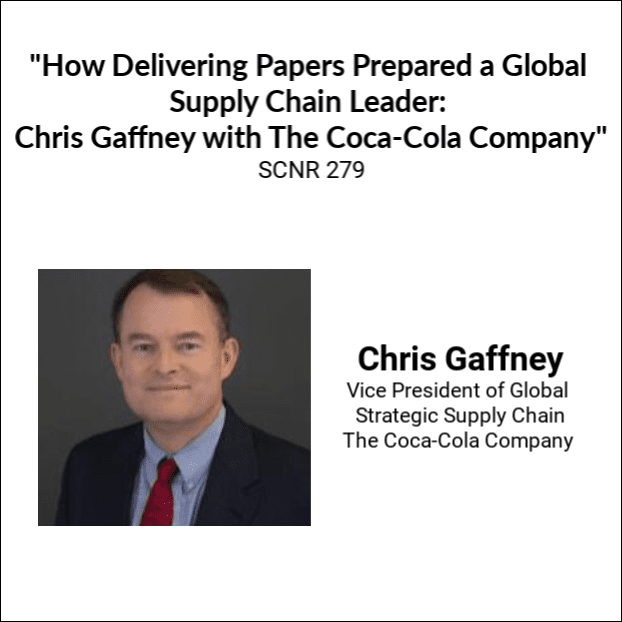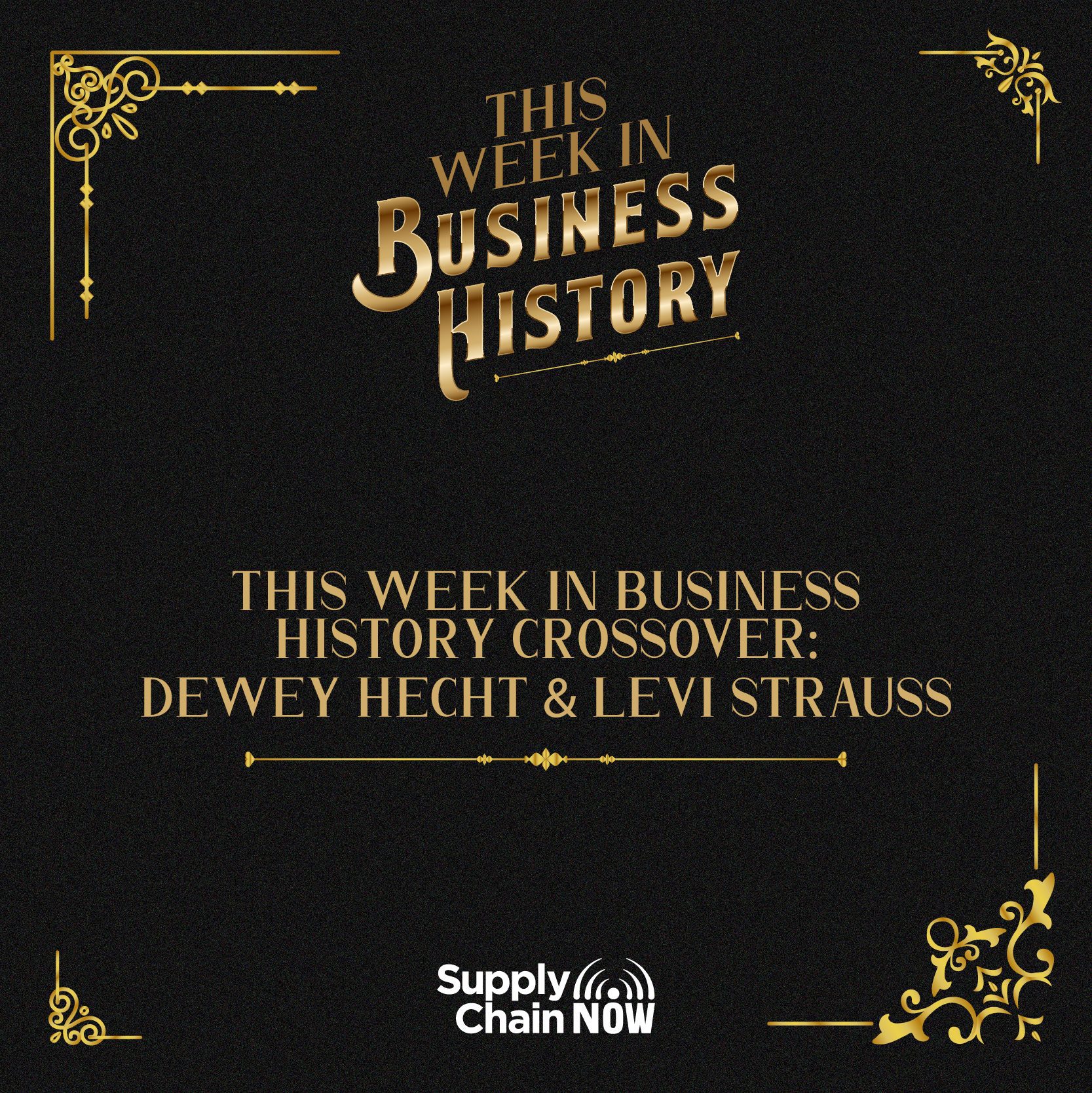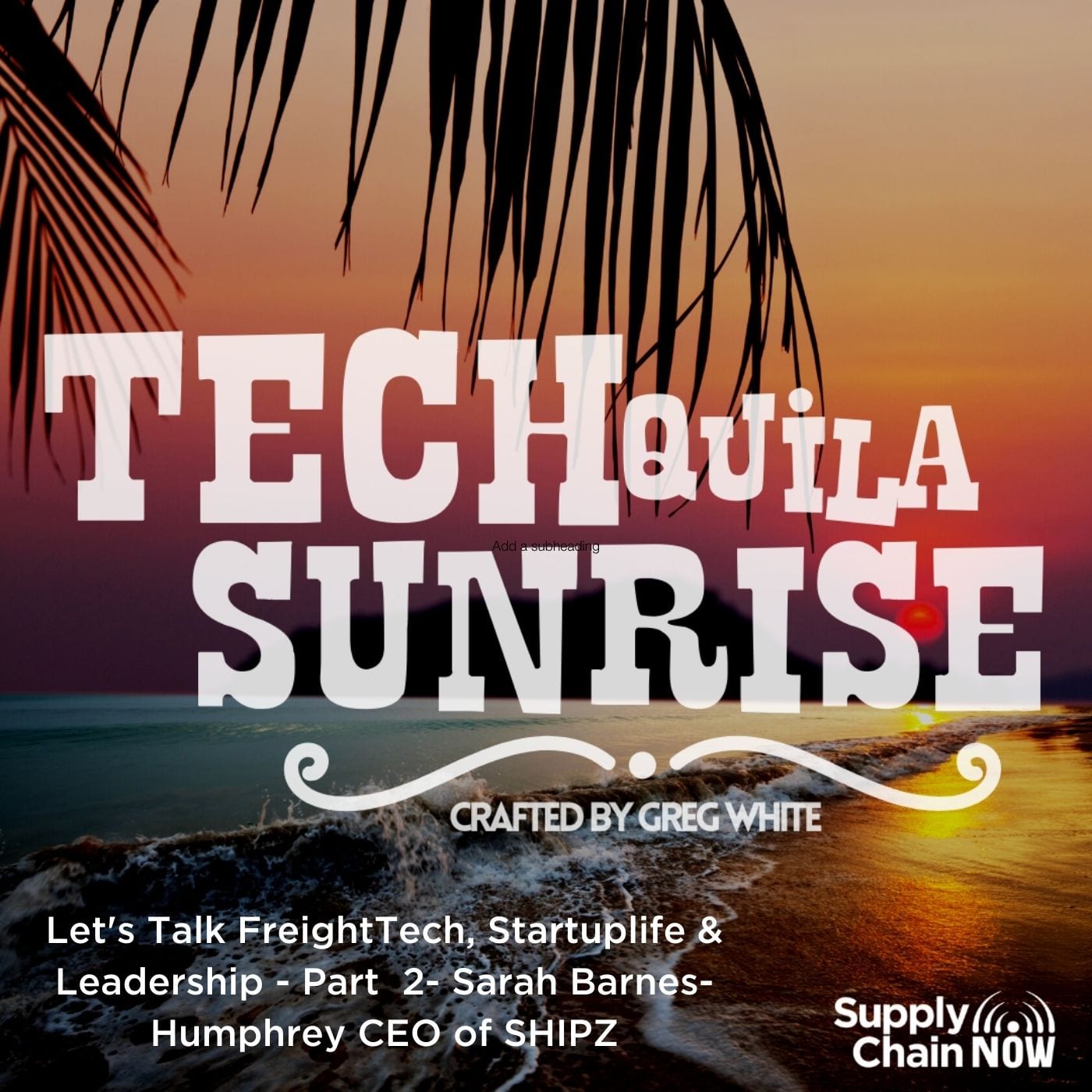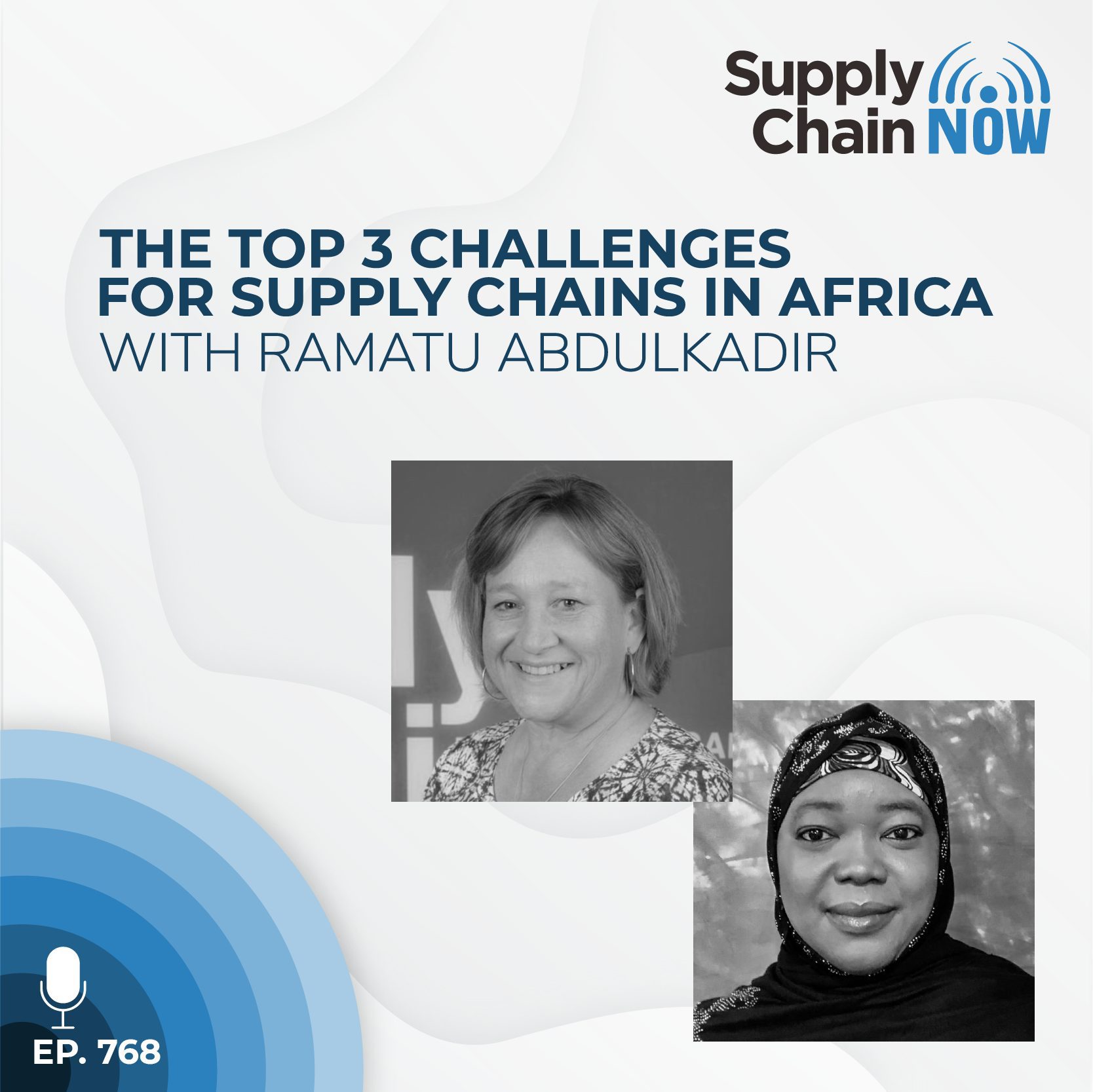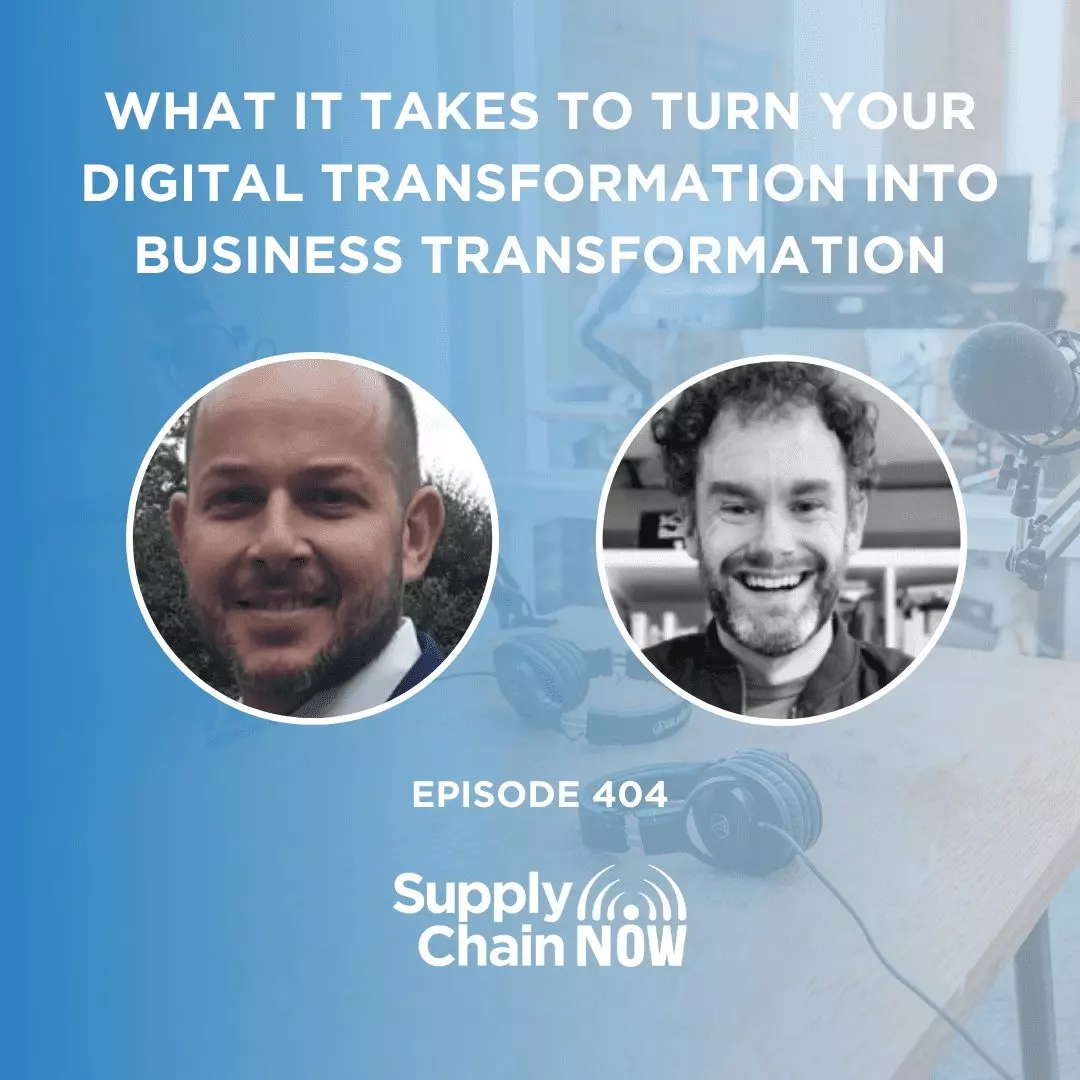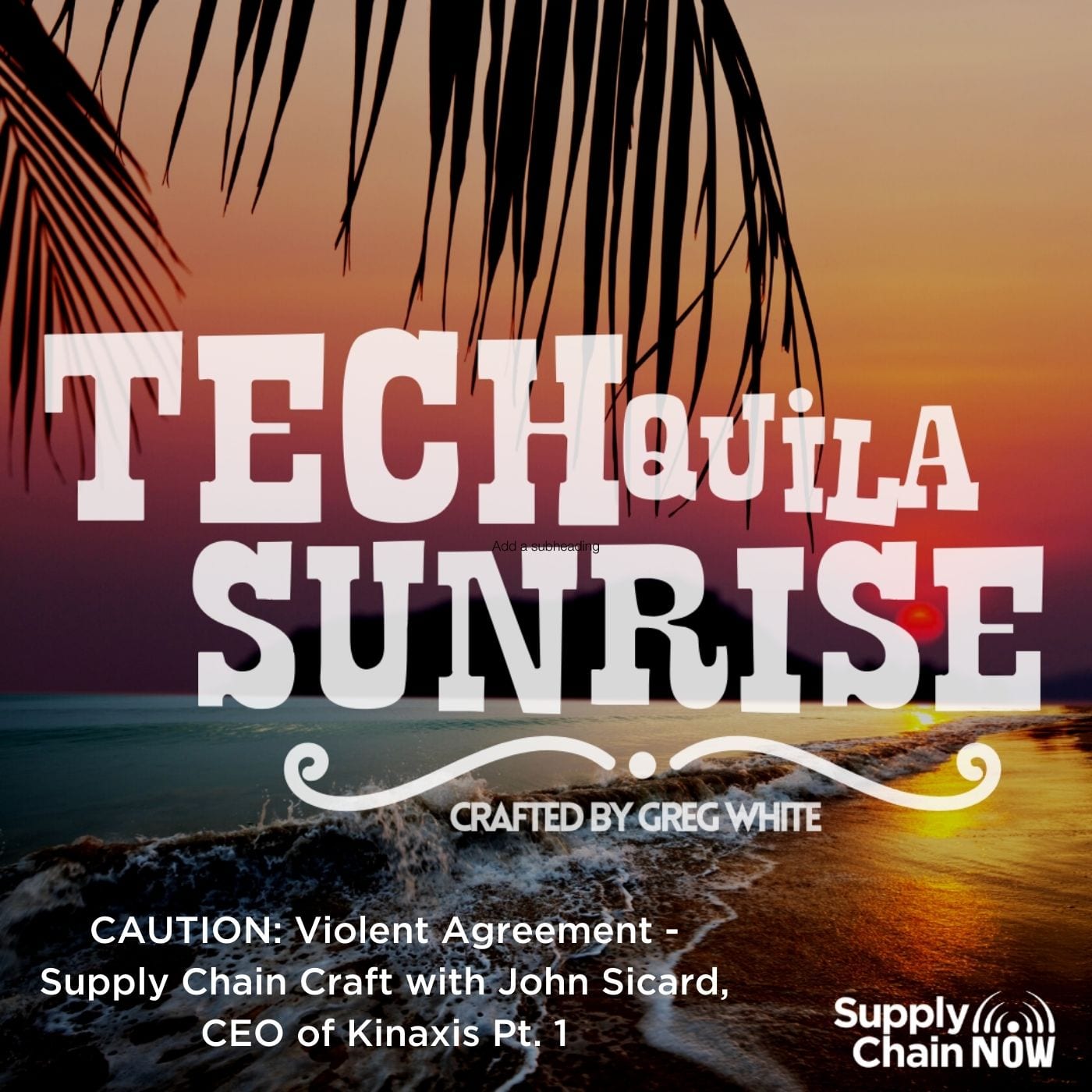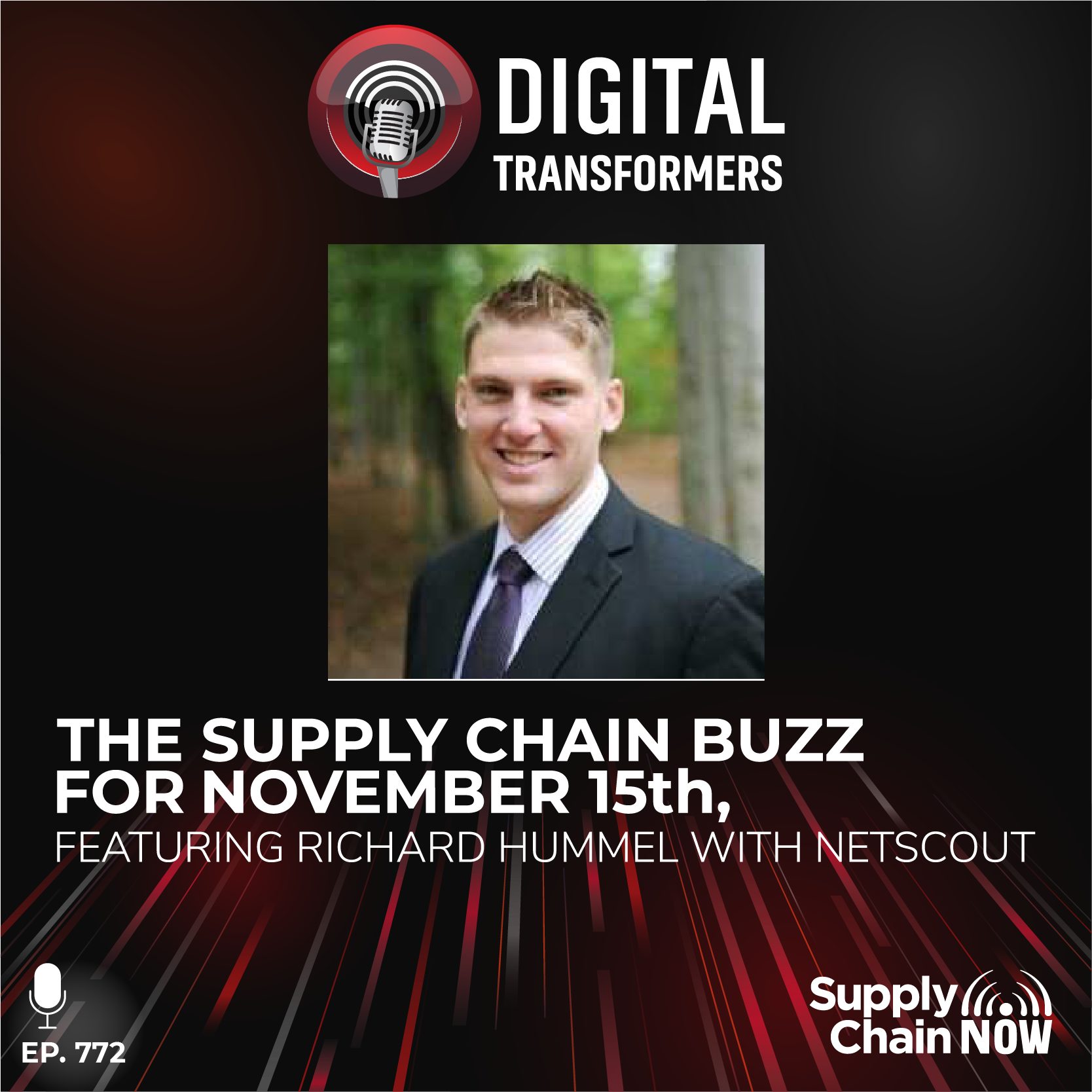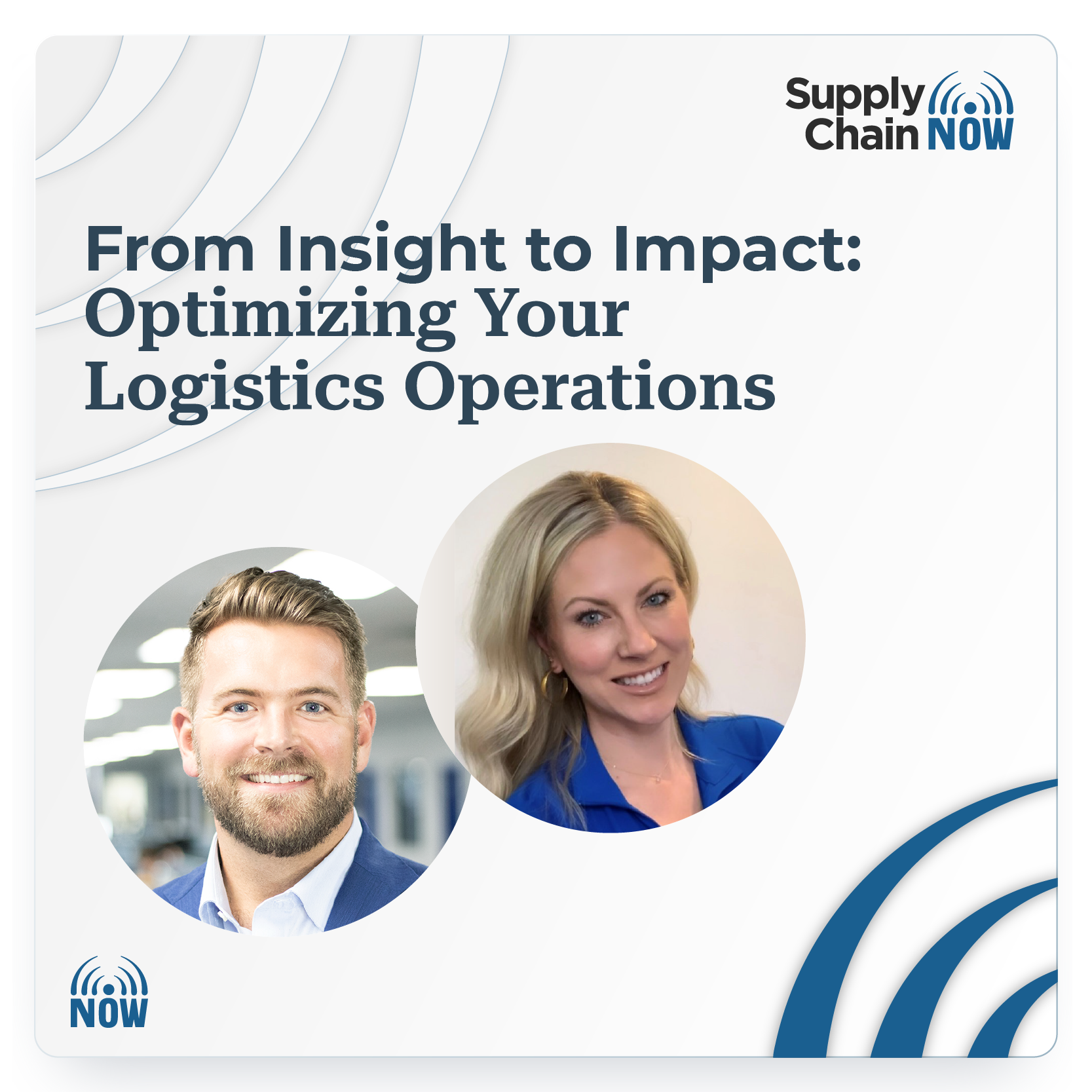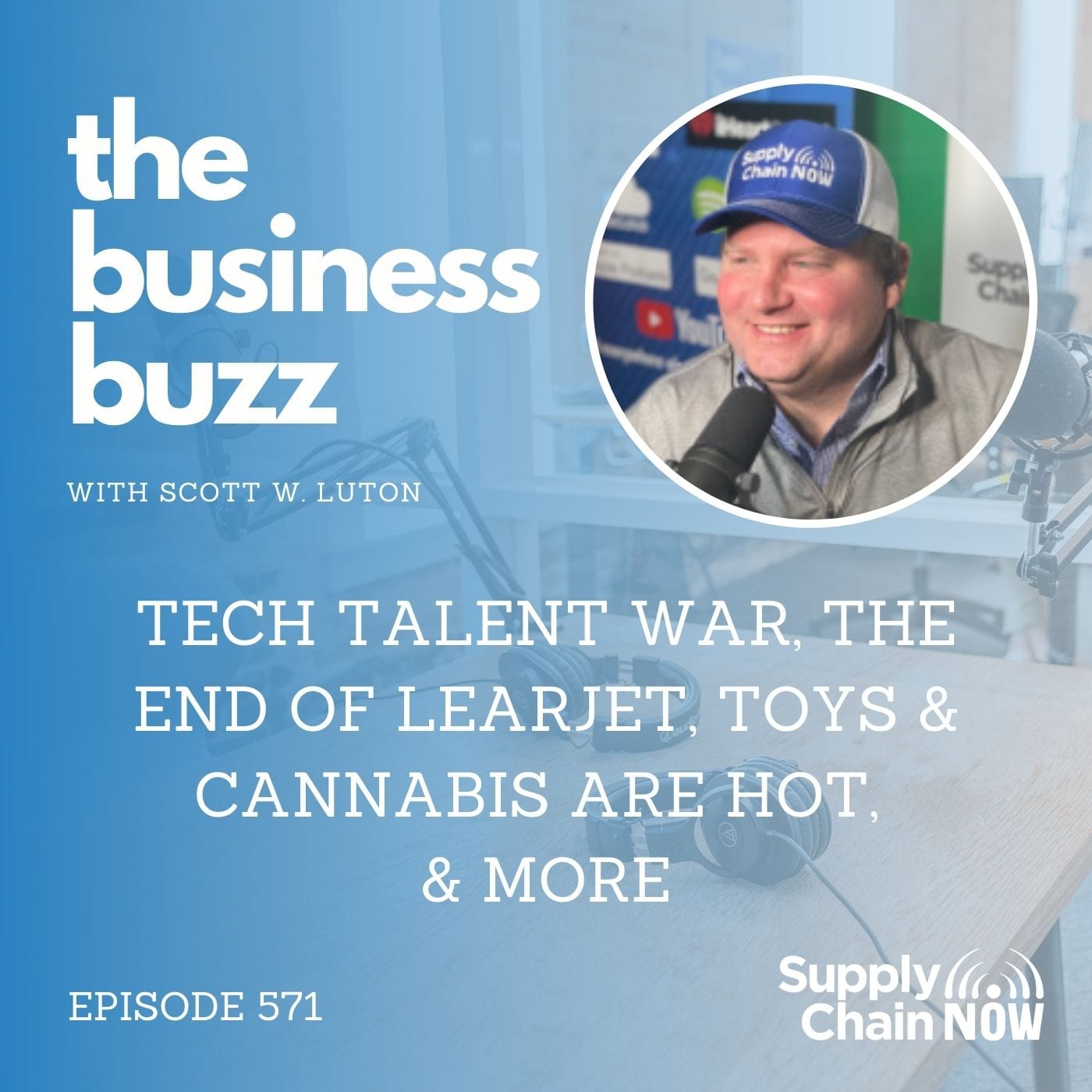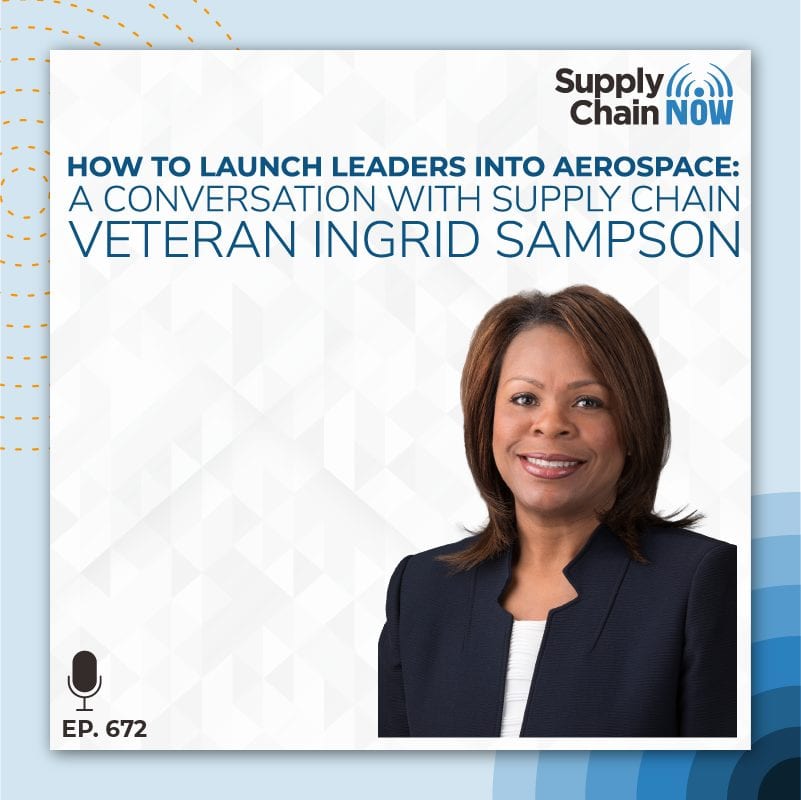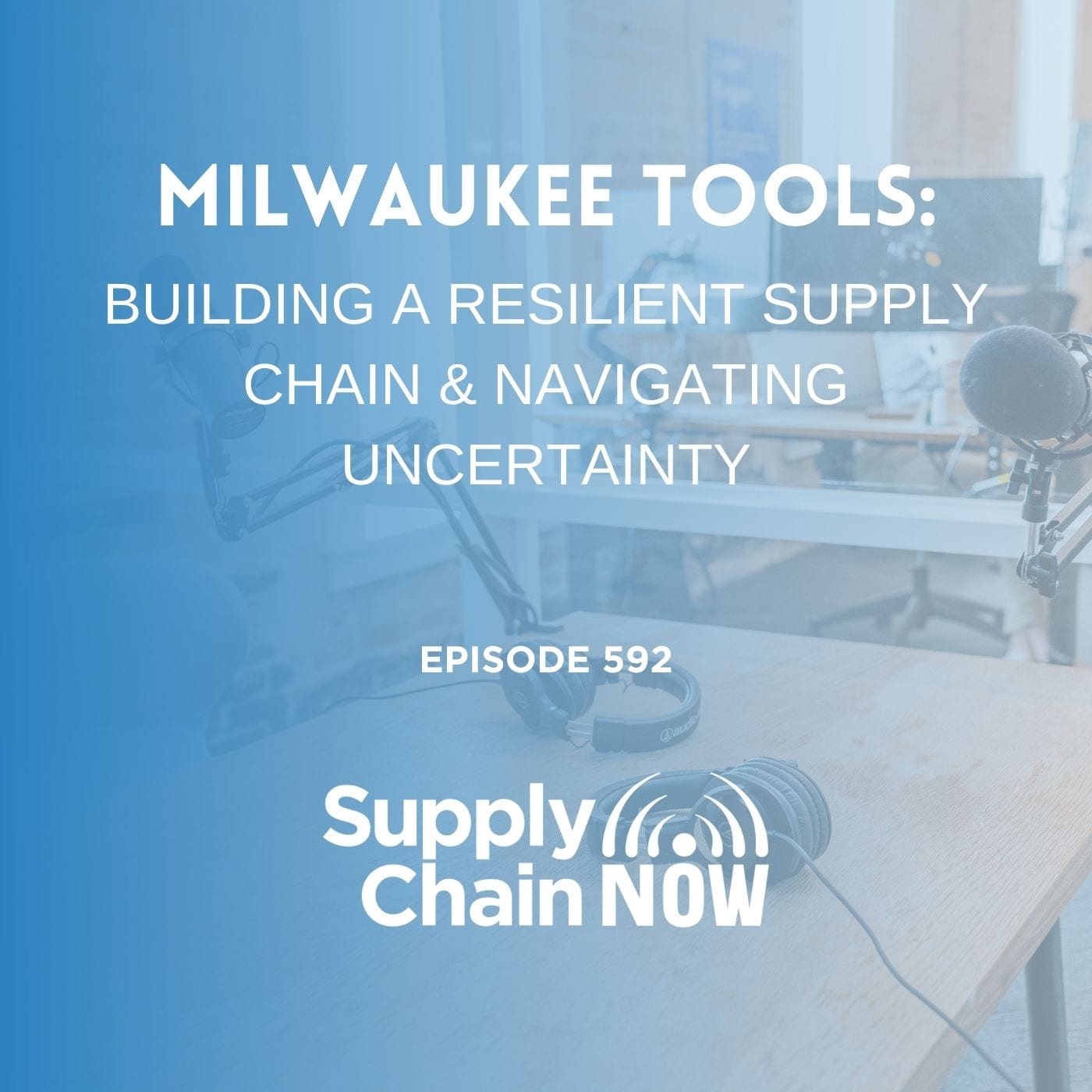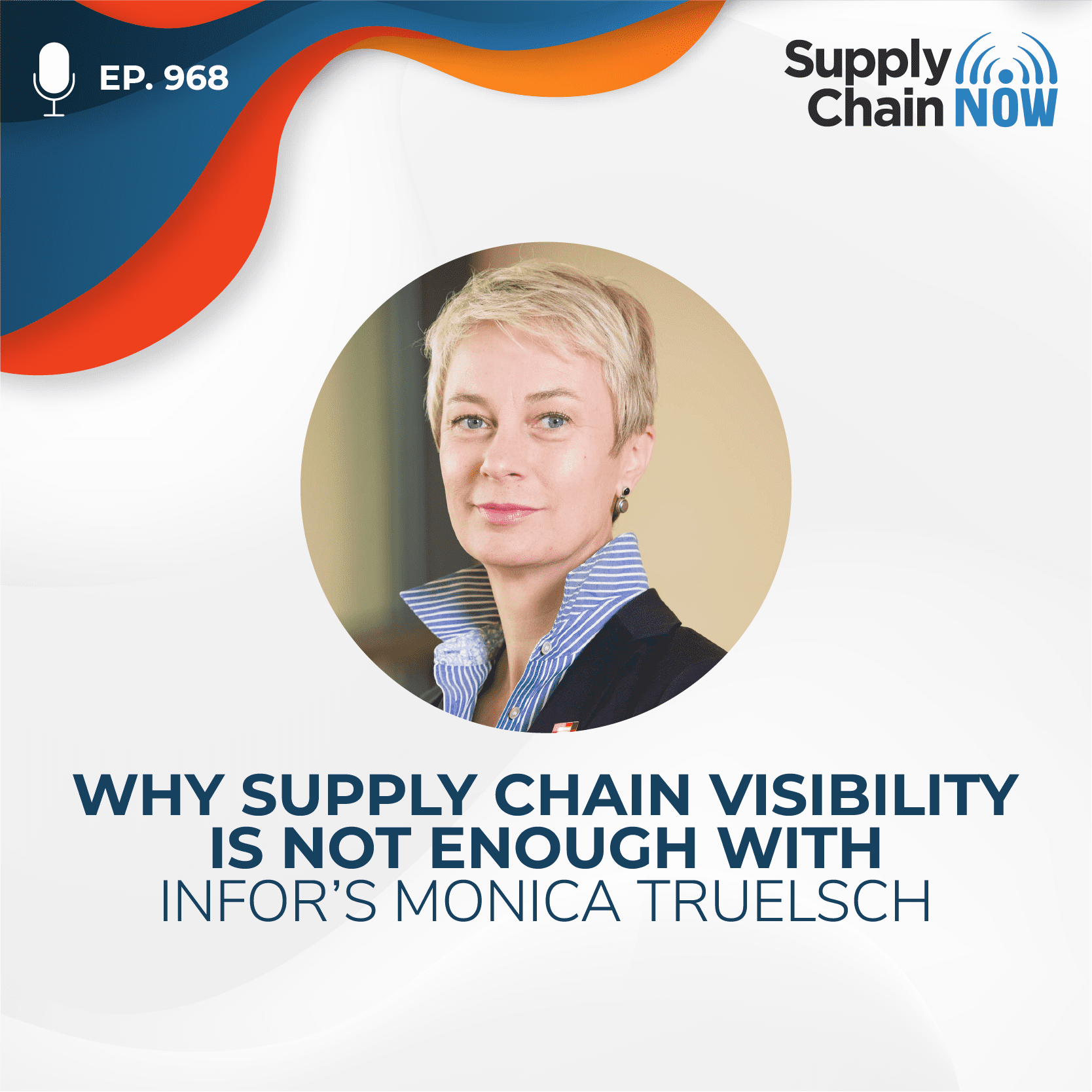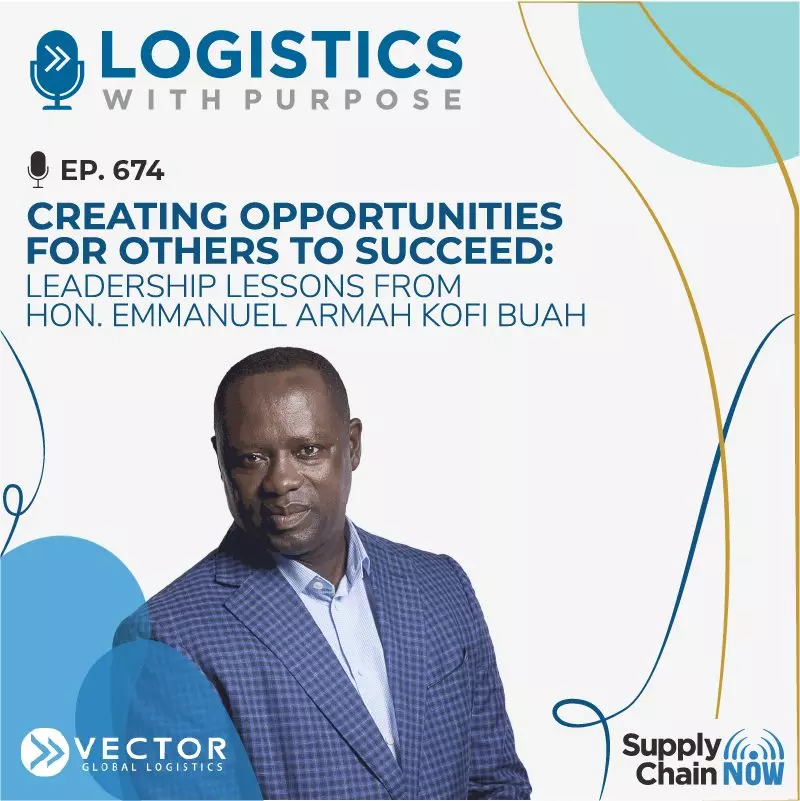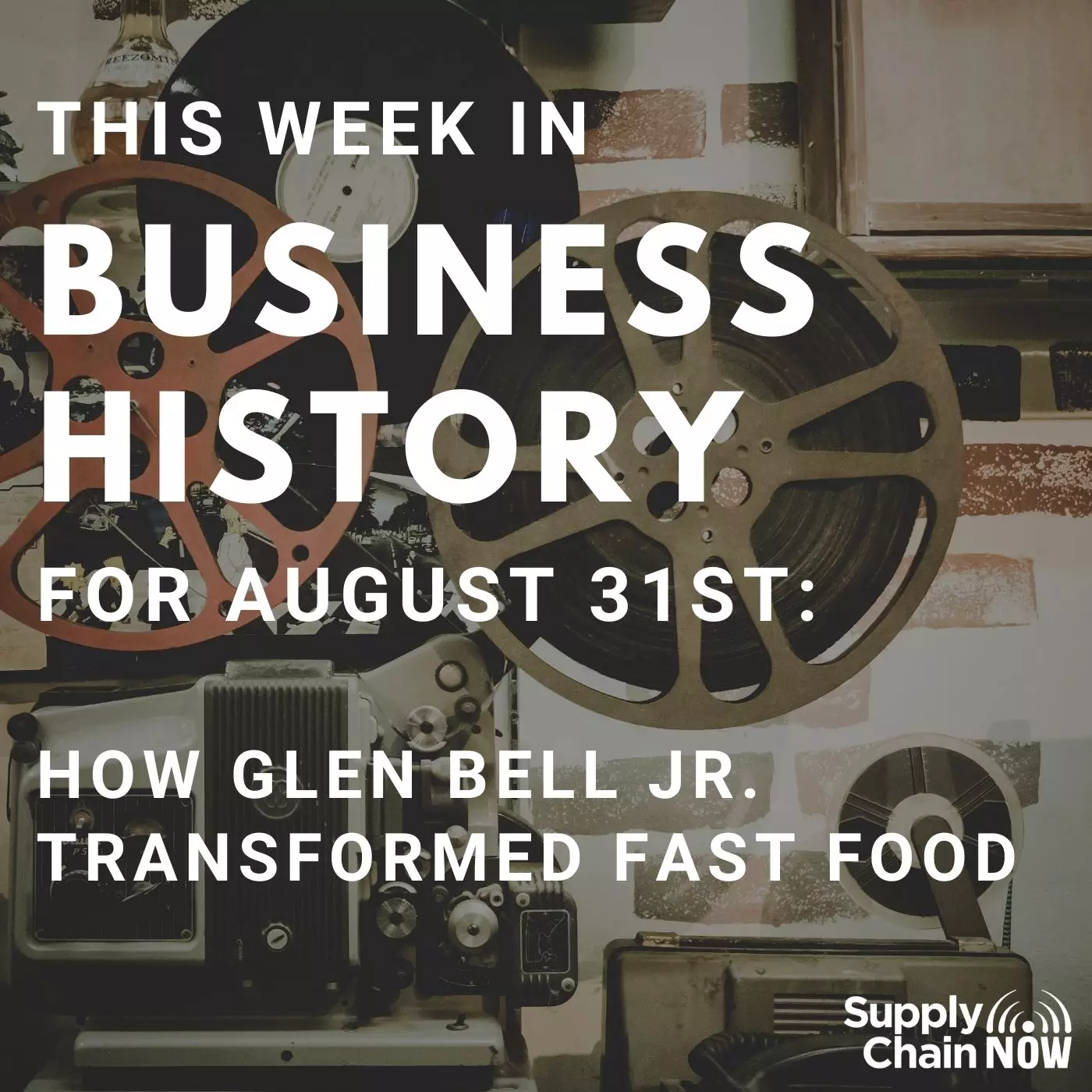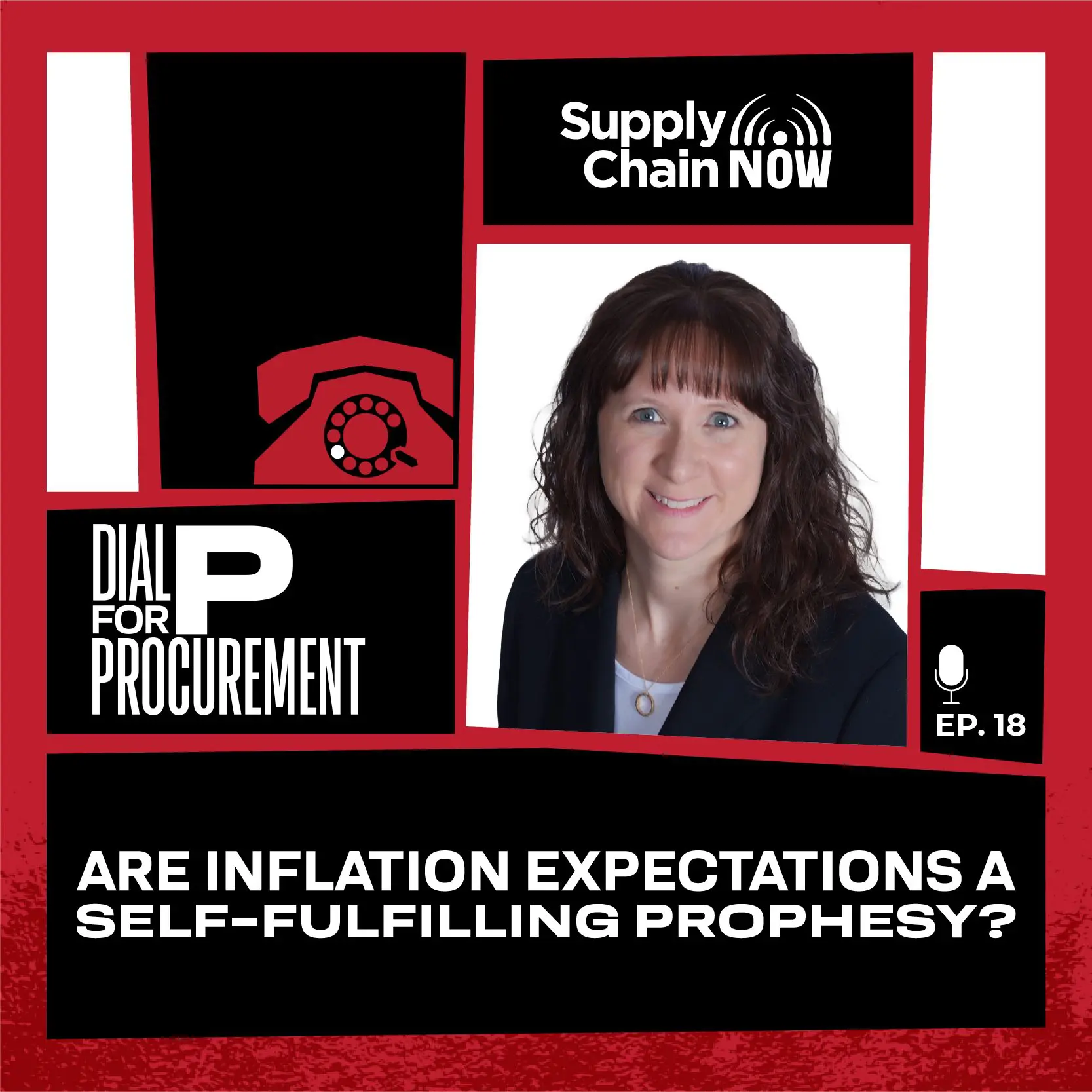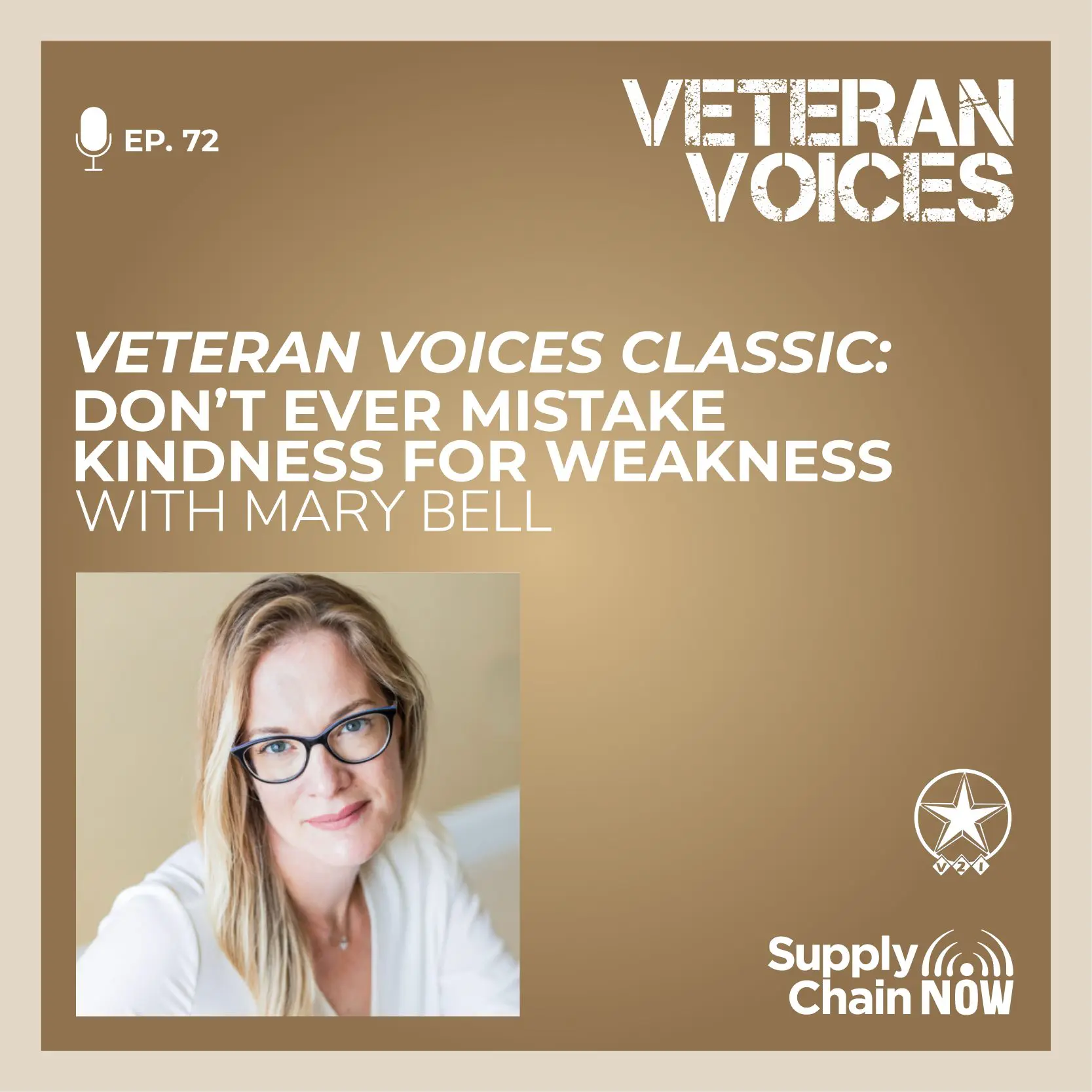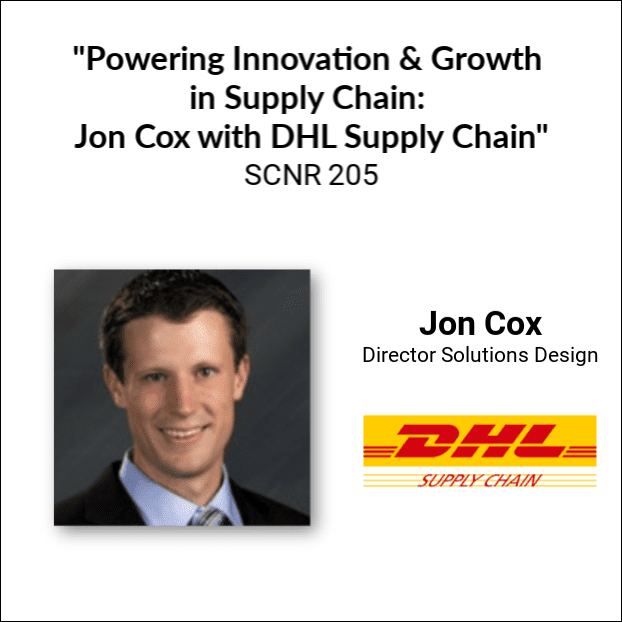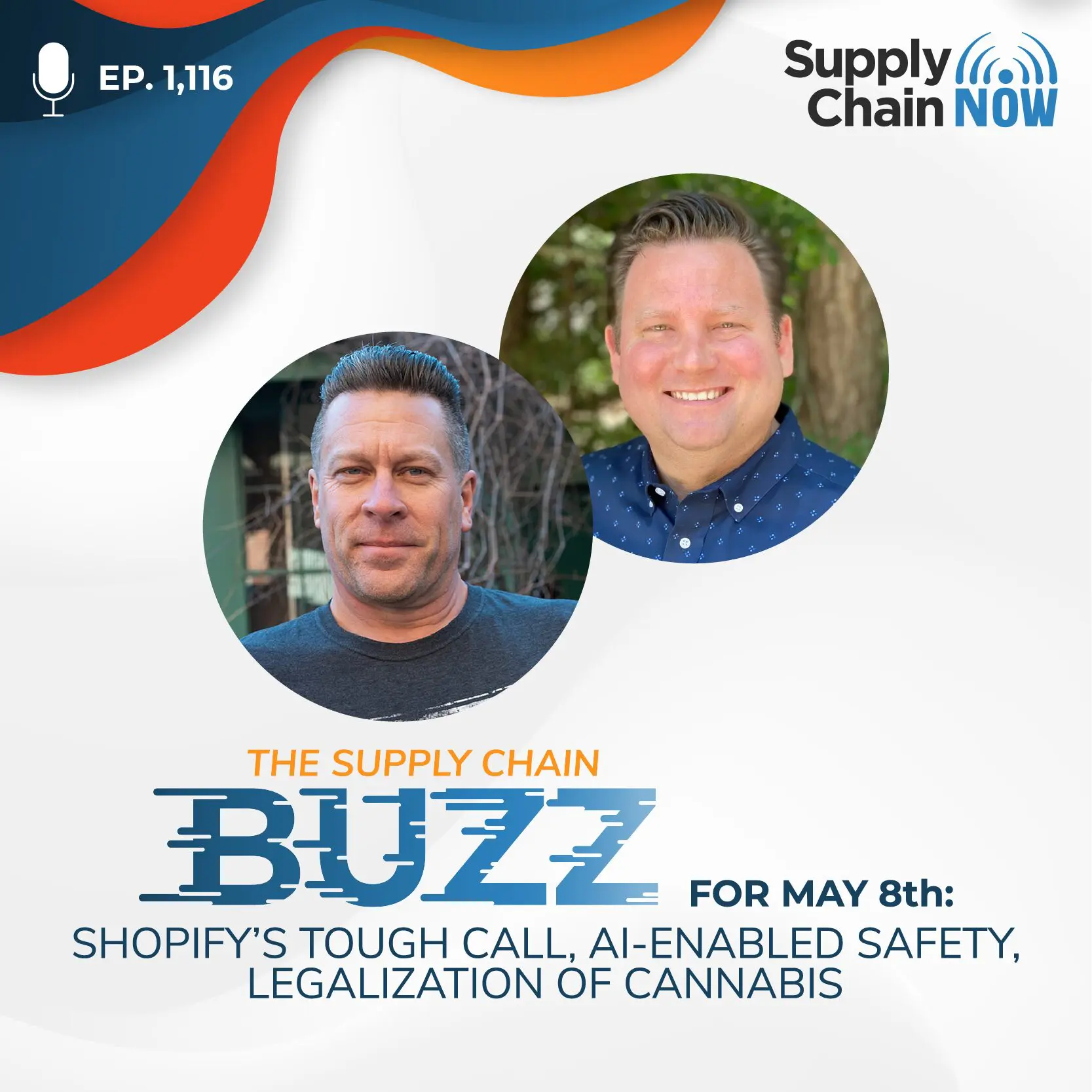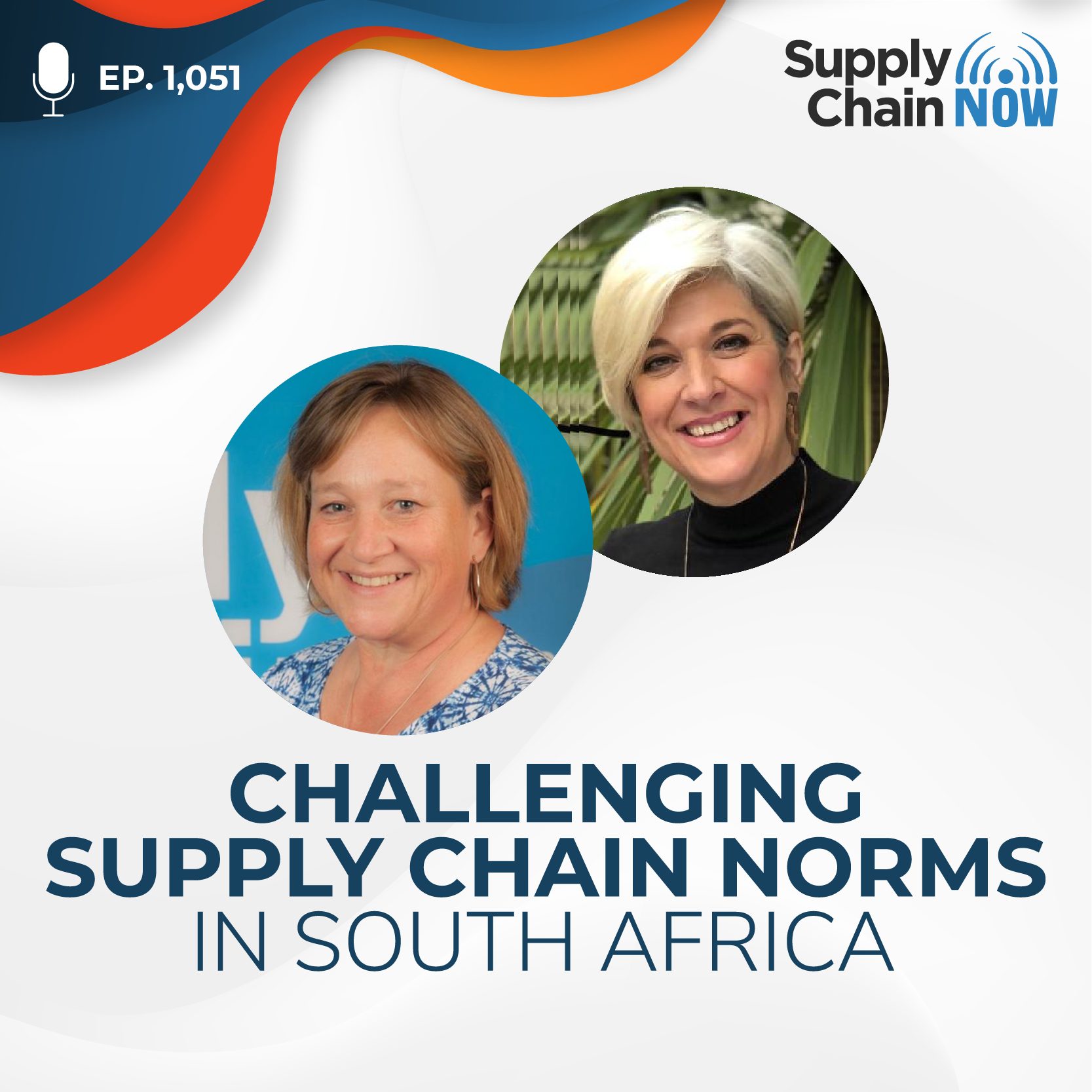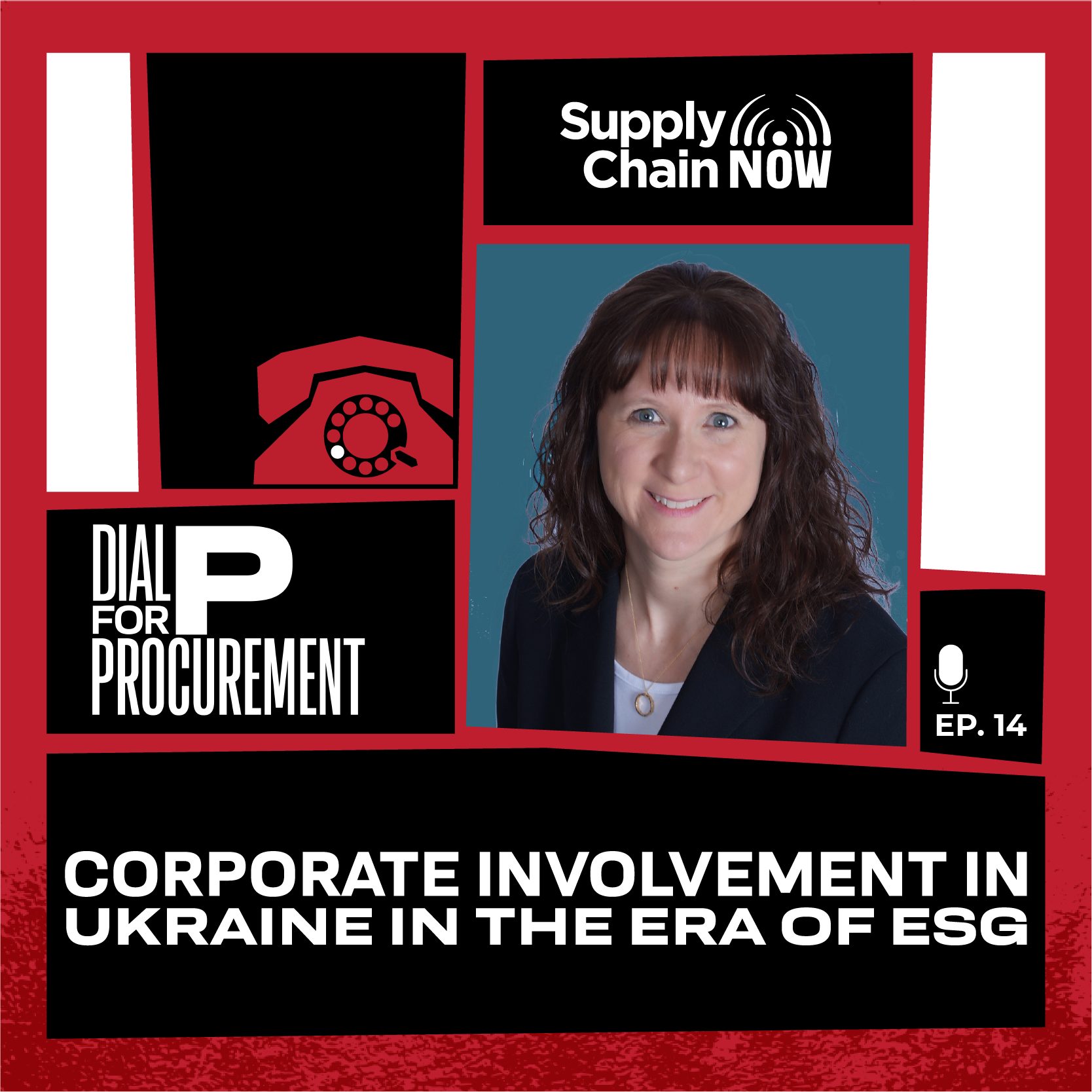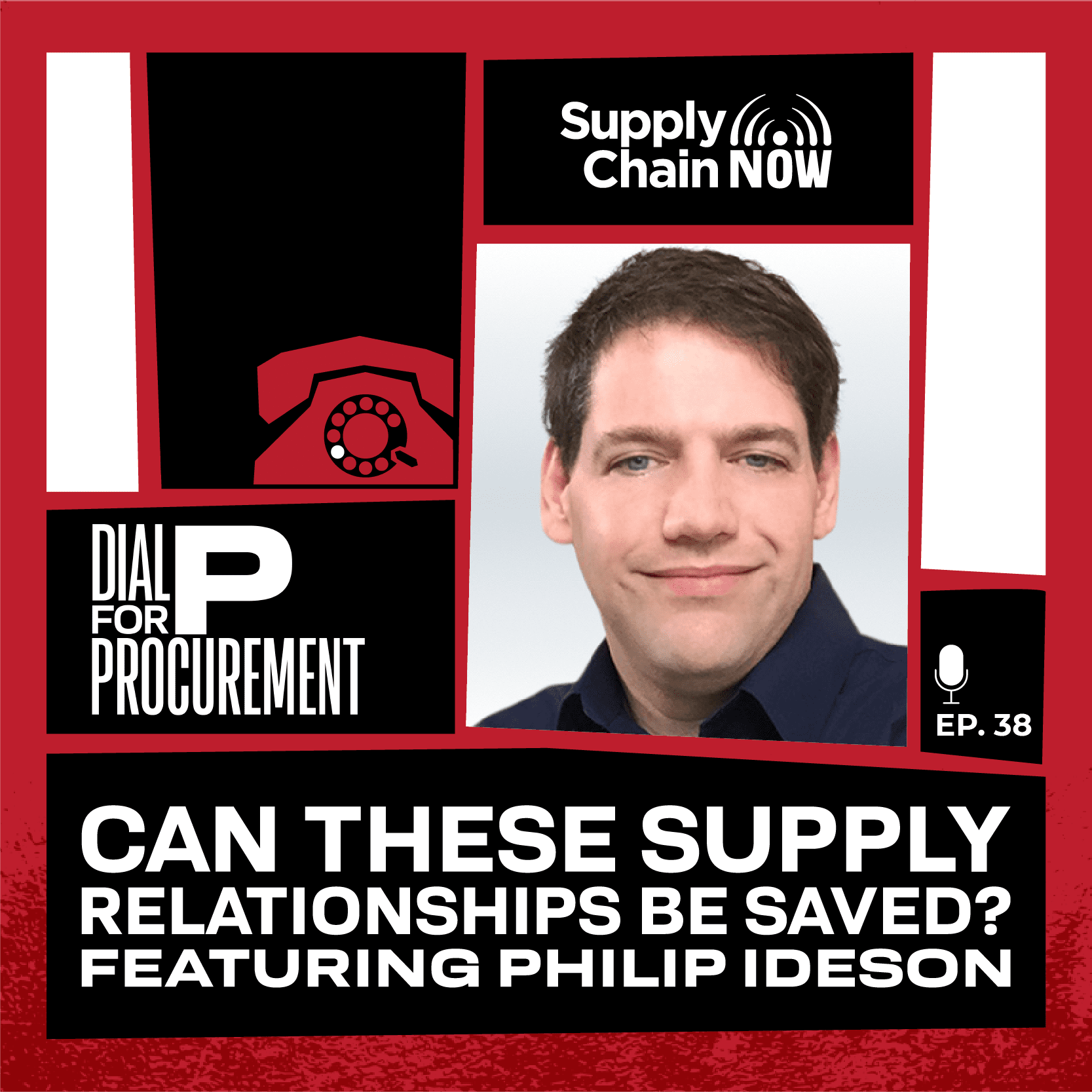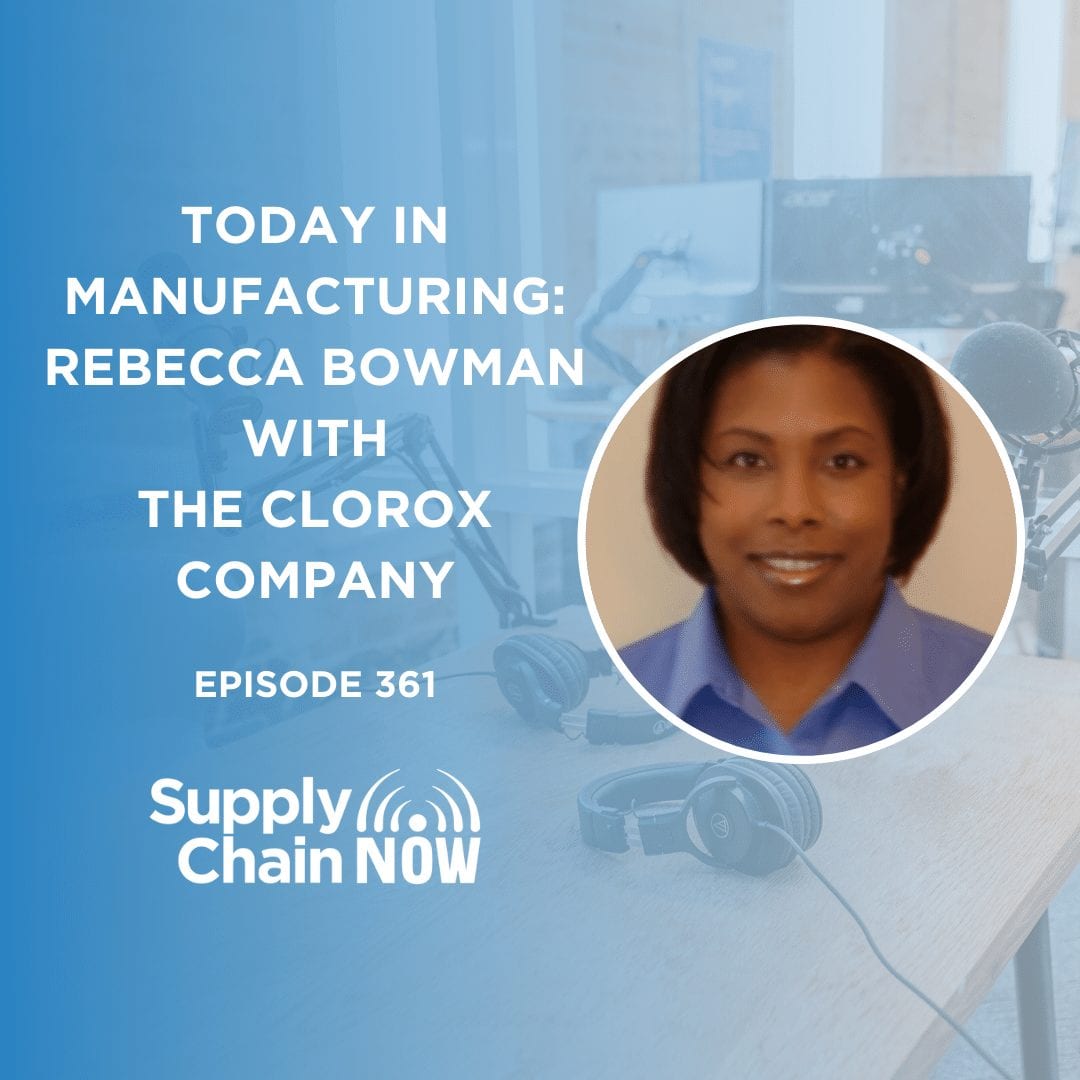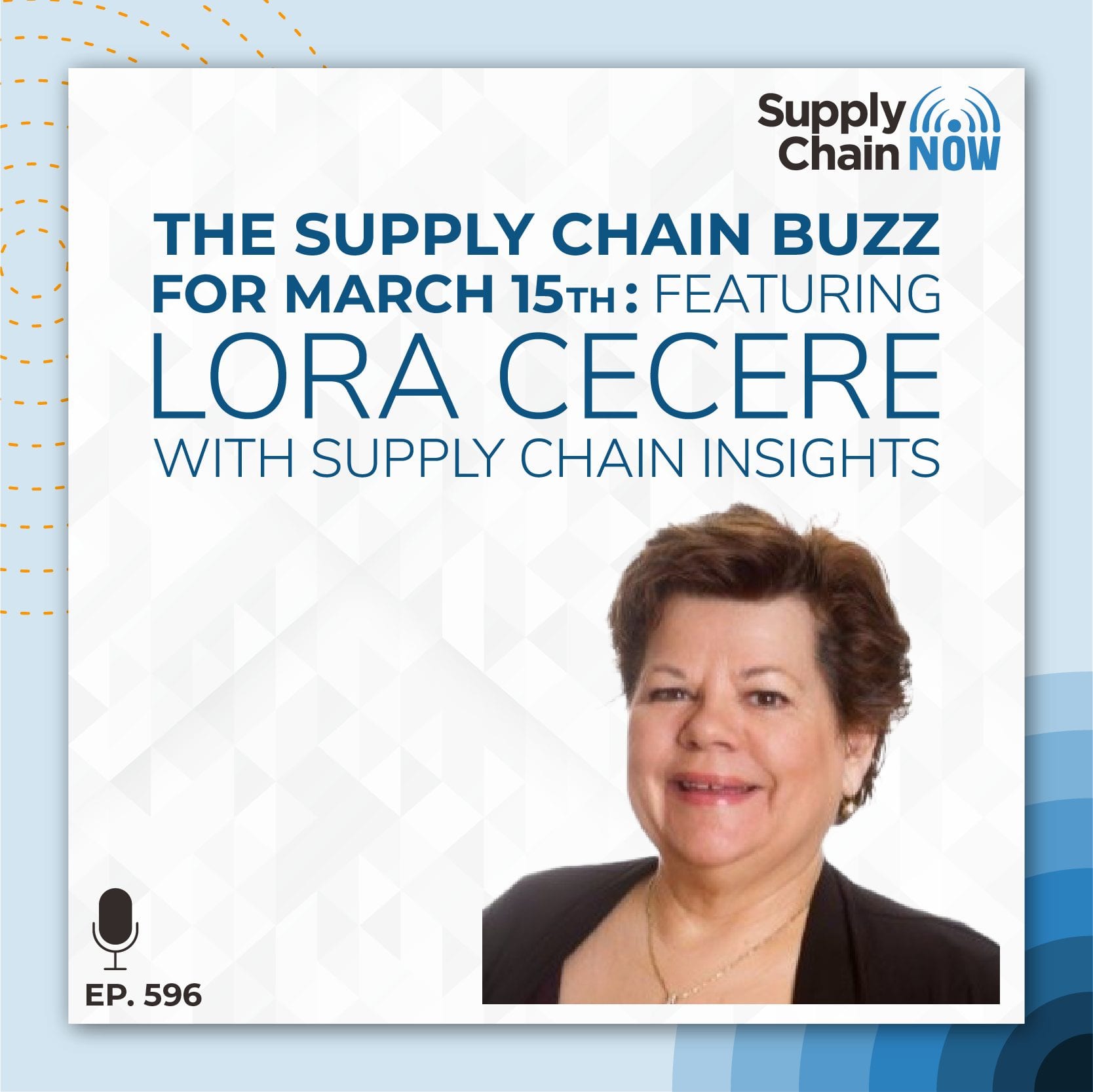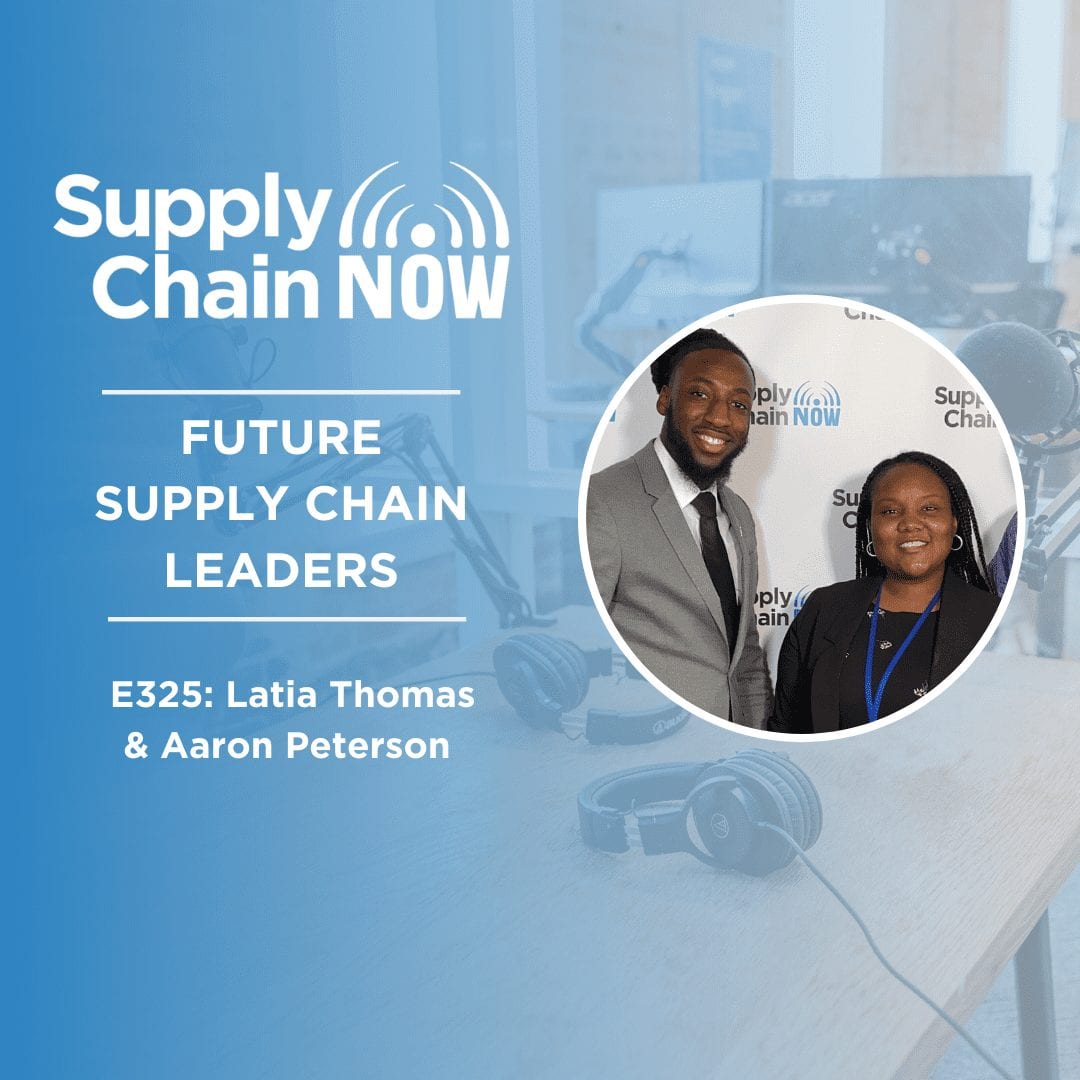Intro (00:05):
It’s time for supply chain. Now broadcasting live from the supply chain capital of the country. Atlanta, Georgia heard around the world supply chain. Now spotlights the best in all things, supply chain, the people, the technologies, the best practices and the critical issues of the day. And now here are your hosts. Good afternoon, Scott Luton here with supply chain. Now
Scott Luton (00:31):
Welcome to today’s show today’s episode. We’re continuing our logistics with purpose series powered by our dear friends over vector global logistics on this series. We’re we’re spotlight and leaders and organizations that really are changing the world in some way, shape or form. And we worked really hard to not only increase your supply chain IQ, but increase your leadership. Our to stick, to stay tuned for a lot more here today. Quick programming before we get started, if you enjoyed today’s episode, be sure to find us and subscribe wherever you get your podcasts from. All right, so we’ve got a full a slew of guests here today. Let’s welcome. In first off, our fearless co-hosts here from the incredible vector global logistics team. We have Matilda RN, Matilda, how are you doing great to see I’ve I’ve really enjoyed rubbing elbows to a variety of different initiatives.
Scott Luton (01:21):
And it’s great to have finally get you on the podcast. So welcome in Matilda. Of course, Adrian. [inaudible] good afternoon, Adrian. Hi Scott. Good to be here again and looking forward to another wonderful show. Agreed, agreed, man. As a gorgeous scene, you’ve got just back behind you. I love it. All right. And finally, we’ve got the one and only in Reiki Alvarez, Enrique. Good afternoon. Hey Scott. Good afternoon. Great to be here with you. It’s always said I’m really excited about this particular episode. It’s going to be great, completely agree. And none of y’all let the cat out of the bag with our film was almost there. Well, let’s walk with, with no further ado and really excited about this episode, uh, along with what you just shared there. And pre-K when we welcome in Steve Sterling president and CEO of map international, who has been serving millions of people around the world, folks in need since 1954.
Scott Luton (02:17):
Wow. Steve. Good afternoon. Good afternoon, Scott. Glad to be on your show. We are so excited to have you, as we talked about kind of pre-show your reputation and what you and the map organization has been doing procedure. And we’re really excited to dive in deeper and share that with our audience. I am too. And I want to thank you, Scott and AK and the Adrian Matilda for having me on your show. It’s just great to be part of this great game here. This is your story. And what you’re doing is really the Genesis of the logistics with purpose series. And it’s one of our favorite series here at supply chain now. So let’s dive right in and before we get to work, let’s get to know you better, Steve, you know, you’ve got, you’ve had a fascinating, we want to share some of that with our audience. So tell us, tell us where you’re from and, and paint that picture. Give us a few anecdotes about your journey.
Steve Stirling (03:06):
My story’s about with God. All things are possible. I was born in South Korea and uh, when I was one year old, I ended up getting polio and my father and my biological father went to a funeral of his friends. Uh, uh, his child had passed away and unbeknownst to him, the child had passed away from polio. So this would have been 1957 and the polio vaccine and that reached Korea yet. I ended up getting polio. That was those things. My father, because I was the eldest son and he felt so guilty about bringing the buyer something to me. And so it was just a tragic time. It seemed like it at the time. And so when I was five years old, they tried to do all they could to get me to walk and there was no healthcare back then. And so my father heard about a Christian orphan is called Holt.
Steve Stirling (03:54):
My end told him maybe if he was able to go into hold, maybe I could get some medical care and some other things in life. So I remember the night before my father dropped me off, he really distraught. And I remember he got a little drunk because I think it must be so painful for him. And so next morning he got up and he took me to the orphanage and he left me at the doorstep and he told me to pry and somebody will come get you. And so I bailed him. I share at pride and sir not somebody got me. But then by the next day I crawled back where he dropped me off because I thought he was going to come get me, get that every day for over a week. And then the second week my relatives brought my sister. Um, I have a balanced of a sister that was adopted with me.
Steve Stirling (04:38):
And so they dropped her off. And so at least we were together. She’s not disabled. And so she, we could spend the time together, right? Remember in growing up in the orphanage. And it was very, uh, you know, I was scared because I thought I did something bad. You know, Hey dad, you know, what did I do wrong that you just abandoned me like this? And then I used to remember, I used to cry out to God as a God. First I was angry at God. What did I do to be abandoned and left behind and first get polio and then do all this things. And then I, that turned to God, helped me and assessed in Psalm 72, four, 12, and 14. That if you cry out the whole homeless orphans, the widows, when they cry out to God, God will listen as their blood is precious to him.
Steve Stirling (05:23):
And he did listen. And so I was very fortunate that while I was in the orphanage, that a sponsor sponsor me. And so I would get some leg braces and crutches up and walk first, it was leg races. And then I remember, you know, going to school, I was the only handicapped kid going into the regular school. And kids would pick on me every single day, like clockwork, well, physically and verbally, but I still want it to go to school. I don’t know what drove me, but I want to go to the school. But then what would happen is when I get back to where the handicap kids were staying, that’s me included. I would line them all up and I would literally take it on, on them. So in frustration I was, I was really looking at kid cause I was just literally, um, you know, beat up the handicap kids when I got home.
Scott Luton (06:02):
We’ll see it real quick. Let me ask you a question to two quick things. First off seems like your faith was something you could really lean on heavily during these really challenging childhood. Right?
Steve Stirling (06:13):
I didn’t know who Jesus was. I nobody told me about Jesus. I just knew I had to talk to somebody and you know, I didn’t have any adults to talk with. So I would just stop talking to God and I didn’t know who ballad. I would just start talking to him and I was not a spiritual person, any other than, that’s just neat to talk to somebody. And so I cried out to God for help.
Scott Luton (06:35):
And then secondly, where, and during these formative years as you’re going to school and then having these experiences, you’re just sharing here. What city was that? Where was that?
Steve Stirling (06:43):
It was a place called El sun Korea. So I was born in Seoul, Korea. Then the orphanage is it’s in El Sutton. It’s about 20 miles Northwest of soul. And so, uh, you can go there and that’s a big city, but back then it was a tiny little village.
Scott Luton (06:58):
And did you spend, did you stay in El Sonde throughout your, um, your early schooling?
Steve Stirling (07:04):
I did. So I was in the orphanage for five years and, and this is amazing cop got works. My parents, uh, linen Jim Sterling. They went to Korea to pick up another brother and sisters, not related to me by blood. And so they were passing out candy to the kids who are left behind my sister, Mary Ellen. She took the candy and she ran off. So the, my parents asked the orphanage worker, what lessons she liked us, what did she run off that way? And the orphanage workers told my parents, she has a handicapped brother and she’s taking him candy first. So I had her trained really well. Right. She was my legs, but they were so touched by that and said, Oh, we need to meet her brother. So they went the way in the back of the orphanage and I was sitting on the floor with other handicap kids and I said, Oh, uh, they said, we need to adapt them to, has she not done what she did sharing candy with me first?
Steve Stirling (07:55):
My parents will know, not even known about us about me, certainly. And they will not have adopted us because they had, um, knob back then immigration law, where you can only bring over two children from a, um, uh, uh, international, uh, country. So they had to work two years to amend the bill. Uh, it’s a rider. So when president Johnson signed the bill in 1966 August, then we could come over. So my sister had a big fight part, you know, in coming over because had she not done that we would be back in still in Korea. So I thankful she’s, she was very, uh, thoughtful and thought about somebody else beside herself when she had to share the candy with me first.
Scott Luton (08:33):
Wow. So, so you early on had developed an appreciation for supply chain, right? The candy supplier here. Exactly. But secondly, kidding aside if I’m understanding you correctly and I may not, but part of the developing, making that connection, your parents, your adoptive parents, that led to the legislation that allowed for a lot more handicapped to be adopted, is that right?
Steve Stirling (08:56):
It was basically my parents work with the congressmen in Alaska cause they had, they had moved from California to Anchorage, Alaska. And so they were riding the Congressman Alaska and it’s all in my book by the way. And so the consequence basically attached to a bill, it’s a writer. And so when the bill passed, then we can come over and basically said that, uh, that w monks you, my crane is MTSU and my sister and his milk, he could come over. So they could be, uh, become children for Lennon Jim Sterling. So while it was a beginning of the immigration, uh, this was back in the sixties when there was no real immigration and adoption going on. So they were, they played a part of that, uh, process as well.
Scott Luton (09:36):
Standing. We’re going to talk about your, your reference, your book, the crutch of success. We’re going to talk about that more here as we get further into the interview. So, so tell us more as we continue kind of working our way into your professionals or before we get there, tell us more about your upbringing and some of these challenges you’ve fought through.
Steve Stirling (09:54):
No, it was so amazing when you are living in a small orphanage and Elsa and Korea. And all of a sudden you land in an airport in Anchorage. Alaska is majestic. You got the mountains on the other side, but the ocean on one side and it is this beautiful place. And by the way, in Korea, the Korean word for America is MI group it’s means beautiful land. And it was certainly a beautiful land. So when we, uh, so it was first time that I had a family, uh, after I was in the orphanage for five years. And so my parents had adopted, uh, by then, uh, we were the sixth, fifth and sixth, and then also God bless them. One of their own, uh, God has a sense of humor because they thought they can have any children. So when they adopted three boys and three girls, then they had one on their own. So that’s seven children. So growing up in my first house was, you know, with the one bathroom and nine people, it was, you had to learn cooperation. Uh, then we moved into a bigger house then, but it was really just a great, and I was a, it wasn’t a regular school and kids didn’t pick on me. I think they thought I was Eskimo or something of was a novelty. And even though I had crutches, they didn’t pick on me. So it, just, to me, it was a wonderful time to be in America to start.
Scott Luton (11:07):
It sounds like to me that if we all grew up in households of seven or eight children, that it would be a nicer, nicer place to live. Huh? I love this story that you’re sharing and you’re painting images. I think in a lot of our minds here, and I don’t want to move along too quick to the professional side, but what, what else as you’re, as you, as you think about your life and your background that really got you prepared to make such a big impact, you know, professionally and, and globally, that you’re, that you wouldn’t map are doing now, what else sticks out about your upbringing?
Steve Stirling (11:38):
Well, I think there are a couple of things. One is I remember when I became a us citizen and that was 1968. And so I didn’t really know now I do now, but I didn’t know at the time what that meant. My parents said, the Steve, now you be anything you want. And in the U S except for the president of the United States. And now once the president anyway, right? And if you do something really bad, they could deport you. And I said, Oh, I said, what does that mean deport you? They said, well, they’ll send you back to Korea. I said, I’m gonna go on vacation. That’s a, no, they’ll send you back forever. And I said, well, I’m going to be the best darn kid, because I don’t want to go back to the orphanage. And because of that, I tried, I worked really hard anyway, because I didn’t want to disappoint my parents, but I was really motivated and not to make any mistakes because I thought if I did, I would go back to Korea and I’ll tell you the story later on how that really impacted me in a, in a big way.
Steve Stirling (12:32):
Another story I let to share with you is that when I was in high school, I asked my mom and dad, what are the best colleges in the United States? And they said, uh, I looked school and Stanford, and I told them, I’m going to go to one of them and this a Steve, um, look around you. We have seven kids, you know, we don’t have money to send you to these schools. And they’re very expensive and they’re very, very hard to get into, which means I’m not that smart because I’m not. And so, but I remember telling them God will provide. That’s what I told them. They’re probably thinking, what does this get talking about? Keep that in mind, because I ended up going to Cornell undergraduate and Northwestern for my MBA. And again, it’s just showing you what is possible when you really first of the Lord and have big dreams and really just go for it, just like, Hey, nothing could stop you. As long as you have a big dream and have God on your side.
Scott Luton (13:20):
I love that. I was reading a story in the wall street journal, not too long ago, it was an obituary as a matter of fact, but it was one of the FA I think the founder of nuke robotics. And he was quoted as talking about how important to the growth of the company. It was for him and his leadership team to have an indomitable spirit. Uh, and so beyond, uh, Providence and beyond a good Lord and clearly his blessing on your journey, you know, having that spirit that you’re going to, whatever comes your way, you’re going to overcome it and, and, and break through those barriers. It sounds like Steve, a lot of kindred spirits and how you look at, look at life.
Steve Stirling (13:58):
Thank you. And I fully agree with you, and I’ll tell you one other story. But if I talk about my professional life now, and so that’s the part was, you know, in growing up in high school, do you remember when you had, you know, boyfriend or, you know, the old girlfriends? And I had lots of girlfriends because people like me, but I didn’t have a girlfriend. They were all platonic. So again, a member product to God. I said, God, it was usually at night when it’s quiet and nobody could hear me crying at night quietly. And I cried out to God. It’s a God. Uh, after my heart was broken many times and said, God, uh, would you one day get me a wife. I skipped the girlfriend altogether. I wouldn’t want for the wife one day, would you get me a wife? Would you make a kind, would you make a wise?
Steve Stirling (14:43):
And would you make her a general? And also God, you’re the God of the universe make a beautiful too. And I, I have to tell you, when I asked my wife was now almost 39 years, you’re marry me. We never dated, she had many offers. People tried to ask her to marry her. She said, no. And so I literally, I it’s a long story. I don’t wanna tell you this in the book again, I called her when I was back at, uh, Northwestern, I called her on the phone and I asked her and I said, um, uh, Suki, I have a question. She said, yes. I said, uh, so yes, I said, would you marry me? She said, yes, I will. I said, I don’t think you understood the question, Mary be pleased. And she said, yes, I’ll marry you. And I have to cover up the phone because first of all, I didn’t know what to say.
Steve Stirling (15:27):
I thought you would say, Oh, let me think about it. Pros and cons. But that load of come out the phone. I said, Yahoo. And, you know, I tell you that story because we never dated. And when you look at it, I was answering all my prayers when I was crying out to him quietly. And so I just share that with you, because really our hands, our lives on our, in our hands, when you trust the Lord, uh, we can accomplish many things and she’s been a big part of my life and I cannot not do what I do without her today.
Scott Luton (15:57):
Thank you so much for searing. I know that there’s so much more to that story and we’re describing service, but it really sets the table for the rest of the conversation. So, Matilda, I think we’re going to be talking about his professional journey now, right?
Matilda Arhin (16:10):
Definitely nurses. I mean, it’s just inspiring. It’s inspiring. It’s probably the worst that I can find right now. I’ve had the opportunity of reading the book. And I want to know about the book because it’s, especially in these times that we are in, it is important for people to understand what it means to have hope, you know, to be, to be fateful in your area. So I’m excited that I wouldn’t want to move away from this conversation, but we have to get into the professional athlete. So Steve, thank you for sharing. Um, let’s talk about, like you said, proficient, I journey in OCR prior to your current role, what were some of your key positions that helps you if you want?
Steve Stirling (16:50):
Um, my first job and I really toiled do I go into investment banking or to go into marketing, uh, entrepreneurship marketing. And I had to, I was very fortunate to have worked at Johnson and Johnson at the, on the panel business. And so that was my first job, uh, getting out of Northwestern and, you know, it was a first time where I had the opportunity to really, once you get the foot in the door, you have to pull yourself out everybody else. And so, um, and I was still thankful for J and J to give me the opportunity. First of all, I’m very thankful to them because they paid for my MBA, which back in the eighties wasn’t twos. But, you know, it was still a lot of money in terms of back then was a lot of money. Uh, so thankful for that. And so we’re always grateful for the J and J leadership scholarship that they provided for me.
Steve Stirling (17:40):
And so once I got in, though, I realized that I was different. You can see them, them, I’m Asian, then I don’t right now. You know, if he can’t see you, bye all walk with and leg braces. So I can have anybody else like me, uh, pretty much any place that looked like me and, and just be weapon kind of, kind of, you know, mentors, that type of thing. So basically I had to really figure out, well, how do I get into the, so the informal social structure. So I try to as much as possible, uh, do things with the, my, uh, colleagues and whatnot, but no, I don’t play golf. I don’t play tennis. So sometimes that’s how you really start putting these bonds together. And so I tried to figure out a way, other ways, uh, how do we get together socially? So we can start building relationship beyond work because that you need to do that in order to be able to work together and collaborate together. So when you understand each other better, uh, you can get a lot more things done and it’s much more enjoyable.
Matilda Arhin (18:39):
This is, like I said, a lot of people, not only in your, uh, predicament predetermined situation, you’re in where you came from and what you doing, what a key Rica moment that you’ve had in this professional journey.
Steve Stirling (18:53):
Um, I’ve had a number of Yreka moments. One of the things I never planned on doing was to work for a nonprofit, uh, because my, my objective was to work and climb the corporate ladder. And I was doing that. I went from Johnson and Johnson to American home products and help launch Advil, and then went to Bristol Myers Squibb launch boost, the gestural drink, and then, uh, um, uh, kind of go foods and then Ameritrade. And so I was climbing the corporate ladder and my thought of, of serving was serving on the board. And that, that was my extent. I, by then I was, uh, except the Christ as my Lord and savior. So I will serve, uh, on the church related things and camps and that type of thing. But my whole outlook professionally was on just working and climbing the corporate ladder. And so, uh, when I served on the, on the board of Holt international children’s services, where I came from for nine years, uh, in 2000, this is the Eureka moment that I had in 2000, the founder’s wife worked the whole passed away.
Steve Stirling (19:58):
And so, uh, and also by then, if you recall, 2000, the NASDAQ crashed and the stock market crashed. And so I was a vice president, a third VP of Ameritrade now, TD Ameritrade. So they laid me off, which was a blessing in disguise because I had the time to fly my wife and I fly to Korea to attend the funeral of, uh, Bertha Holt. And there I met my childhood friend. His name is Kim Sue, and he has severe cerebral palsy. Uh, he could barely feed himself. He gets around with electric wheelchair, but he was smiling at me. So I thought, well, he must be my friend. So I said, Kim said, do you remember me? And he said, yes, ma’am said, I remember you. I said, Oh, what do you remember me about? He said, well, he used to beat me up all the time.
Steve Stirling (20:43):
I remember I told you earlier that when I came home to the orphan and, uh, when I was saying it, the orphanage, I would get, you know, pick on the kids because they picked on me. So I felt really bad cause I’m very strong upper body. So I asked Kim Sue, would you forgive me for what I did to you growing up? And he looked me right in the eye and said, mum, Sue, I forgave you a long time ago because Jesus forgive me my sins. And when he said that I was speechless, I was just thinking, you know, this is a man trapped in his own body. He could barely feed himself, but he’s happy and joyful. And then it’s also thinking, what am I doing with my life? And that was the first Eureka moment I really had where I said, and I said to God, it’s a God, what do you want me to do?
Steve Stirling (21:23):
I will do anything you want me to do. And that’s what I told them that I’ll do anything. And then I learned that the orphanage I grew up in for five years initial was helped by Bob Pierce, the founder of world vision. And so, uh, after many interviews that, uh, worked for world vision, this is my first nonprofit job. And that was 20 years ago in 2000. Uh, so that was really a big Eureka moment for me, where I went from corporate to nonprofit. Now I’ve been in the nonprofit for roughly 20 years as well.
Scott Luton (21:54):
This is very inspiring and, and, and kind of thought provoking, right? As I hear Steve walk us through his journey, uh, both personally, professionally, you know, what are we doing right? To, to, to make an impact and to give back. I mean, hopefully our audience is kind of thinking that themselves, but on that note, going back a little bit, Steve, in Ford, talking about your book for a minute, you were talking about how hard and how intentionally and how deliberate you were trying to make those relationships in the organization based on some of your limitations and, but, and how difficult that was. And I think that’s just a key takeaway, I think for the conversation for all of us, because I think for those, for those that have limitations or don’t have limitations and that, that, and fitting in maybe an afterthought, it’s really important for us to put ourselves in your shoes and hopefully make, you know, build those bridges and make it easy for folks that, that were doing exactly what you’re trying to do. So I really appreciate you sharing because I think that doesn’t get enough attention. It can be in a blind spot for so many folks. All right. So let’s talk about your book, heard a lot about your book. Uh, uh, I’m ashamed to say I haven’t read it yet, but I’m going to pick it up from Enrique. All right. So the crutch of success. So a couple of questions here first off, what really can you point to specifically that said, Hey, I’ve got to write this book.
Steve Stirling (23:15):
Soki here. Her name is Suki. She was telling me, you know, encouraging me for years to, you know, you need to tell your story because you are unique. You’re the, probably the only handicap Korean American, who is a CEO of a nonprofit and that’s, Oh, there’s other people like me. And I don’t want to be talking about myself. And especially when you write a book yet, you really need to share your story, be able to transparent. And I, I really didn’t want to do that. And, uh, finally, uh, this happened about a year ago. Finally, I realized it’s not about me. It’s about God and what he’s done complex through me. And so it was really about how do I encourage other people, you know, really talking about where you started in life inside a very humble beginning. It doesn’t have to define where you end up.
Steve Stirling (24:06):
And so hopefully it will be encouraged. Some people that are going through challenges in life, we all have challenges. Sometimes it’s physical at the time. It is mental it’s other economical situation, whatever we may be. So hopefully it would give them some hope that, uh, God could use any of us, any one of us, if we just let him to, uh, the permission, cause we have to, it’s a choice. We can be bitter about it, to know that, you know, I had this happen to me and I’m going to be bitter about it or say, Hey, it happened because it was meant to, and you can use it for the good. And so that’s why I finally ended up writing the book.
Scott Luton (24:42):
You took all of that and use it as ammunition and as a way to give back and help others and inspire others. I love that lesson learned here. All right. So before we’re going to bring Adrian in here momentarily, because we’re gonna talk about mapping international, but before we do, I know it’s tough. This is gonna be a tough question because there’s so much in the book I’ve heard from this team here and, and doing a little bit of homework. But if there’s one thing that readers of your book will take away and will remember you as an author, what, what would you really want that to be
Steve Stirling (25:13):
Fusions? Two 10 says we are God’s workmanship created in Christ Jesus to do good works, which he prepared in advance for us to do. So for me, that was a new many light chain universe, but it’s one of them because it doesn’t matter if I have crutches, fab, polio, God had some special work that only I can do. And so it really talks about everybody because we may say, you know, I didn’t have a chance to live. I didn’t have son born in this country. I came here. I didn’t have a chance to do this and go to a good school or whatever it may be. That’s still use you because he created each person, uh, to do good works, which he prepared in advance for us to do. And so I believe that, uh, and I truly believe that because without that belief, you can’t accomplish things, but when you believe and you say, well, you know, I’m going to do it. And I got to the best of my abilities to do it, then God will do the rest. So I think that’s one of the things I love to challenge everyone. That’s listening to the podcast that everyone has a purpose in life. It doesn’t matter who you are. And so I hope that encourages everyone to do and go out and just do it and then see what God can do once you do that.
Scott Luton (26:27):
Everyone certainly has a purpose. It takes a little time sometimes to find it and act on it. But I love that message, Steve. Okay. So Adrian so much good stuff here. I almost hate to talk about mapping international national, as much as I’m looking forward to learning a lot more map international, but
Steve Stirling (26:44):
Adrian, let’s dive right in, huh?
Adrian Purtill (26:46):
Yeah. Thank you, Scott. Steve. So yes, it’s going to say let’s, uh, let’s all learn more about map international. If you could tell us exactly what map does and what it’s all about.
Steve Stirling (26:56):
It was interesting. Uh, when I got the interview with Porter calls me, and this was about seven years ago now, and she says we had the, I have, we had the best role for you as CEO of map. And I jokingly said, I said, Matt, who uses Mac? Everybody has GPS. And they said, no, central medical assistant program. And, and, you know, I knew about gifting kind, but I never heard of Mac before. So it’s ability the best kept secret. And so I told the recruiter, I said, no, uh, my first response was no. And then I came home because I told the previous CEO of where I was, uh, uh, that I will be there at least, uh, uh, three to five years.
Steve Stirling (27:36):
I was a seal, uh, of ChildFund in Richmond, Virginia. So I wanted to keep my promise. And so then I, uh, came home and told him, look, you bought it. You said, you said, map’s a Christian organization. I said, yes. He said, what’d you think that you should at least pray about it first? I said, you’re right. So I, we prayed about it. And then, uh, then I realized the impact, that map is making and, and got it prepared me for the role. You know, why did I end up getting polio in is so much better if you could prevent a disease with a vaccine, but once you get it at something you can, it’s treatable. You know, if you get, uh, uh, get sick, if you have hypertension, if you get an antibiotic, those are very terrible things, uh, or certainly manageable, uh, chronic diseases.
Steve Stirling (28:17):
But if you don’t have the medicine, you will literally not make it. So, uh, I, um, I ended up getting the role. And then when you look at the impact map is making, because Matt gets medicines donated by pharmaceutical companies. And so these products are still good products. They’re not expired yet, but they’re getting close to expiring. So when the time we’ve mapped gets a user head by eight months dating on it. And so then we store it, process it, and we ship it out out of Brunswick, Georgia to our implementing partners on the ground. And the, our partners on the ground have boots on the ground, people on their own staff. And that will then, uh, distribute the medicines to, uh, hospitals and clinics and schools and other, uh, um, facilities. And because Matt gets these medicines donated a $10 donation, we’ll provide $840 with the medicine and think about that.
Steve Stirling (29:11):
You know, where, you know, two cups of coffee at Starbucks coffee, two cups, Wells provide $840 with life saving medicine. Talk about a force multipliers team. Holy cow, it is, it is a huge one to 84 is a huge impact when people want return on investment, what, what impact am I making the map does medicines. We also do, um, get, we get involved doing disaster response because anytime you have a disaster, natural manmade, you always need medicines and supplies. And so Matt gets involved there as well. And we’ve been involved that every year with hurricane responses, earthquake responses, the explosion and bear fruit. And this year, particularly we’ve been sole engaged with providing, uh, health supplies, face masks, gloves, uh, PP, personal protective equipment, uh, personal lives medicines to help combat the corner of ours right here in the U S but also around the world.
Scott Luton (30:09):
One quick follow-up comment here, Adrian, before we dial up further that explosion in the poor Beirut, you know, the ball of course read about that. We’ve had some folks on that were involved in some of those continuing relief efforts. Gosh, the amount of tragedy that the people there have just dealt with and it’s been, it’s been hit after hit after hit. So really appreciate your efforts there, uh, all the things you mentioned, but certainly those folks that, that continue to get, um, challenge after challenge. So great story. All right. So Adrian, we’re going to dive deeper into roles, right?
Steve Stirling (30:43):
Yeah. Steve, tell us about, you’ve been on the roles that you have as well as CEO and how you see those roles playing out in practice within math. And, uh, where do you spend your time physically? I spent, I split my time between Brunswick, Georgia, and Atlanta. And now because of COVID-19, I’m not spending much time in Atlanta, but the let is important because you had the corporations there and you have much more support, uh, in Atlanta, uh, versus in Brunswick. Brunswick is our operations and, uh, uh, Adrian Matilda had been there and looking forward to hosting and Rica and you Scott someday do in Brunswick. We have a 40,000 square foot warehouse. It’s a global distribution center. And that’s where we do all the operations part in terms of physically doing the work in terms of spending my time. I try to split my time between strategy and then also implementation because, uh, you, number one, you have to hire good people to let them run the business.
Steve Stirling (31:36):
Uh, as you know, supply chain management, it’s all about people because we’re not making anything which really moving items from pharma companies to map them to our partners and doing that, that supply chain management. Uh, and then strategy is very important because if you don’t manage a nonprofit, like a business, you’ll, you’ll go out of business. And so people think non-profit is all you can do, basically what you want. Then, you know, it’s okay to lose money because you’re non-profit, you can not do that because long-term, if you lose, continue to lose money, you cannot stay in business because at some point you can’t borrow any more money. And so it’s really, how do you run an organization with excellence and, you know, math, we talk about, we are serving God and God wants excellent. He doesn’t want mediocre work. And because we’re in a nonprofit does not mean we want the excellent, the best of what we can do any, uh, any organization can do it.
Steve Stirling (32:34):
So that’s very important. And so, uh, I think strategy also is very important. It kind of gives you the future vision of where you’re headed and, you know, there’s a need in the world who world health organization, estimates are a 2 billion people in the world with that access to lifesaving medicines and supply, and that’s getting worse with COVID-19. So, you know, each year map, uh, and this year Matt helped over 20 million people get access to medicines and health supplies, but th but normally we do maybe 10 to 13 million people. So I think about that 2 billion and 10 million that’s, that’s a scratch. So one of the challenges we’ve put out there as part of our strategic planning process with the board and our senior leadership team, and I shared that with a vector within beacon, Adrian, um, Matilda was, we want a double impact, and it’s five years on that next 65 years, the age of MAB, wouldn’t double it in the next five years.
Steve Stirling (33:34):
And to do that, it’s going to take a great deal of, uh, uh, strategy in terms of collaborating with other people. How do we get more supplies? How do we get more funding to help move the supply? So when we believe that we can double what we do, and it could be, uh, maybe 40 million, maybe 50 million in five years. So that is our goal. And how do we make that vision a reality and the plant put that plan in place. So each year we make progress toward that goal. And so it’s a, it’s a, it’s a weighing of strategy and then implementation. And how do you marry the two together?
Enrique Alvarez (34:07):
Yeah, no, I just saw a quick question on that last comment, Steve, and thank you once again for being here. So it’s, uh, interesting talking to you. So what, where do you think, uh, it’s an incredible, uh, goal that you have set for yourself and your organization? What is your, uh, what do you think the main bottlenecks to that kind of expansion are? I said, we’re in what part of the supply chain is it? What, what are you most worried about when it comes to managing those potential bottlenecks more closely?
Steve Stirling (34:37):
You know, one of the biggest constraint is supply because pharmaceutical companies are not producing this medicines to donate. They are literally giving us Protestant, cannot sell that supplies limited. So then our challenge is, well, how do I increase that supply? And one of the things we’re looking at is how do we shorten the supply chain management? Because if you could take out two weeks here, two weeks, uh, you know, throughout the process from receiving it, the processing it to storing it and shipping it and getting it shipped and cleared, if you could take off two months out of that process, that could help literally millions more people, because the word Nali, having this data product moved through the system much quicker. And that’s why looking forward to working with vector and figuring out also, how do we do our warehousing more efficiently? Uh, as an example, if you look at our warehouse, a 40,000 square foot warehouse in Brunswick, we have five levels of storage.
Steve Stirling (35:33):
And, but then when you do a deeper analysis, 30% of are the medicines and RX and OTC products, 70% of the volume, our health supplies, well, the health supplies, you don’t have to necessarily store in a temperature, controlled a warehouse, which is very costly. So, you know, vector figuring out, well, how do we then do the, um, know warehousing the medicines in one location, maybe the supplies, another location, and to have it just in time, have it come together. So those are the things we look in the system to make us much more efficient, and then also minimize the future need for additional capital to expand our warehouse. Uh, w when we double impact in the next five years,
Scott Luton (36:17):
The neat thing you are taking advantage of clearly that we’re all know here is being really close to one of the fastest growing most capable port seaports, really certainly in the States, if not the world. And I’m sure that helps you take some time out of that, you know, the overall end to end spot chain. And I would imagine too, Steve, when you’re talking about supply and ramping up supply, if you could take a month or two out of end-to-end, uh, you’re in, in supply chain and, and all that processing time and handoffs and transitions that that’s a part of any supply chain you would have access may perhaps would you have access to more supply and the companies that support in terms of donating medicines, would there be more options there?
Steve Stirling (36:58):
I believe once we show that we’re having even greater impact, and then we obviously have to then tell the impact stories back to the pharma companies, because they want to hear what impact their products, donations having. And so I think we can show that we’re much more efficient at it, and because of we’re having greater impact, yes, I believe that can then turn to where they say, well, let’s give it the math instead of some other nonprofit and perhaps maybe they’ll even give us more. And the other part of it is in the receiving side, if we can show to governments in that says West Africa, Hey, we can move this very quickly and you can do this on a monthly basis so that you can, they pick the shorter medicines except it, because we can do it very quickly. And so you can actually use it before it expires and help millions more people. So I think on the supply side, but also the demand side, I believe we can get more governments to say, yes, we’ll take the shorter data medicines. So then we can move it quicker to supply chain management,
Scott Luton (37:57):
Uh, Adrian and Matilda and Enrico heads up. Cause I want to circle back and get one of your favorite parts about what Steve has shared on the interview. But before we do that, Steve, when, when, when you think about your global enterprise that you lead and you’re helping so many people and you want to do so much more and be in even greater force for good, as we’re talking to our audience, what’s one thing that might surprise our audience members about, um, a nonprofit, nonprofit operations, especially as it relates to supply chain or distribution of, of your goods or what have you.
Steve Stirling (38:29):
And if you look at the size of map, and if you look at our total revenues, because 99% of all we, what we do is gifting kind. Uh, we do, we do purchase by a million Darcel product to help round out the order for our customers. So when you look at wow, that’s a $600 million organization. If you look at the cash to cash side, really only a $10 million cashflow organization. So think about that. The $10 million of capital is moving $600 million of life changing and oftentimes lifesaving medicines. And so do that. You have to be very, very good at what you do because I’ve worked in, you know, 20 year, half and half, 20 years of my 18 years in corporate America. And the now, you know, almost 20 years and 20 years of nonprofit are room for error is much smaller in a nonprofit because in corporations that you have bigger budgets.
Steve Stirling (39:27):
If you make a little mistake here, you know, you make it out some of the place with, with the nonprofits, you really don’t, you cannot make too many mistakes, uh, because at some point you run out of capital to stay in business. And so I think one of the challenges, how do you grow and do it in a way that’s responsible because you are using donors dollars. We don’t get money from government. And so we get some money from corporations, some foundations as PR it’s all private funding. So that’s the challenge. How do we then grow? And, and, and, and we really invite corporations come with us because I don’t think you’re going to be able to get a return where you help 20 million people get access to the life changing medicine fund, 10 million thousand capital of cash. And then obviously a gifting kind things donated
Scott Luton (40:13):
If you listening to today’s podcast, Hey, and you’re looking to, to use your resources for good. And especially in a historically challenging year in a time when so many people, as Steve has mentioned to be, and people that don’t have access to what they need, Hey, reach out. We’re, we’re gonna, we’re gonna make sure you have map internationals content information and get involved in, in the good fight. All right. So I want to circle back. There’s so much here. I love this conversation and Rick, and we’ll start with you. And I wanna circle back through our panel here. What’s, what’s one thing that Steve has shared today that really hits home for you. Well,
Enrique Alvarez (40:47):
You’re absolutely right about one thing, Scott, and there’s just so many things to own package here that it just could be another one hour conversation just to kind of like try to assimilate all the things that we have listened and learned. And again, it’s just been a pleasure to kind of meet and get to know Steve better. And again, Steve, thank you very much for doing this. The whole point of us having this, uh, series or this opportunity is to share inspirational stories like yours, because we believe that sharing then pretty much in the same way that you kind of came to the conclusion that you had to write a book. I think that’s the best way of really changing the world and we believe deeply and passionately about making impossible impacts in the world as well. But I’m answering your question, Scott. I kind of wrote to, um, then I’ll just go with a quick, both real quick ones, just your fearless attitude.
Enrique Alvarez (41:38):
I mean, it’s just incredibly brave what you’ve done. Like every single aspect of what we’ve done from one point to the other, to where you are now, it’s just took some, a lot of courage, right. Uh, and, and I think that’s something that, uh, that I take and, and I, and I will actually share with my kids in particular and other people that I know, because I think that, uh, something very important that tells me your story tells me, is that you should not always pay too much attention to what other people say or thing that you can do or cannot do, including your own parents when they were questioning your, your ambition to go into a business school or one of the top schools in the U S and, and here you are. So, yeah, that’s, that’s one thing. And, um, I’ll probably just let the others mentioned something before I say something that they might be still thunder Enrique thinking of. Yeah. I still want to, I don’t want to steal your thought you’re their thumb there, but no, it’s just, it’s just, I I’ve always admired people that, that go against the flow and, and, and Steve for, for sure is one of those, uh, great leaders of those lots, so bold all,
Steve Stirling (42:46):
And you were about to say something. Yeah. There’s two incidents that come up, which, uh, which John really love that, that Steve’s talked about as is, uh, how, how his sister ran with the candy and that’s what started everything for him on his, on his journey. Uh, just, just, just an incredible story that just his, his, um, proposal marriage proposal to, uh, to Suki from, uh, from, uh, almost a zero base and, and how successful, that was just an amazing story. But through it all, just Steve’s, uh, resilience, uh, his perseverance and his determination to succeed, uh, is just a one sparring. And, uh, I’m sure his, his, his dolphin and colleagues and friends around the world, or just see him as a very big dynamic, late, uh, leader, uh, and a very, uh, uh, gracious and humble human being as well. And that that’s, that’s what comes through so strongly was talking to Steve. We’ll
Enrique Alvarez (43:37):
Put Adrian, we’ll put Matilda.
Matilda Arhin (43:40):
Yes, I am always on inside when I I’m thinking of a C, because I come from a place where a see this talking about some of the tools that we end up, uh, affected by some of the issues that I think we all are aware of marginalized communities and all that. So, um, for me, uh, first of all, I’m so grateful to, and we’d probably have to go because everything cultural, then we can really fit into some of the things that Steve is doing. And one thing that I took from there is hurt people, hurt people if they do not have the help they need. So for Steve to even go to school and come and take out to delete the marginalized, the people that are really suffering now in his position, it makes me understand the mindset of children that do need help that need to talk into it, you know, but then again, if you’re not the price of the, that God can even use Candice to change somebody’s life.
Matilda Arhin (44:35):
For me, having been here in the United States for so long, the benevolence of the people, our viewers, that they come together to help and fix things, you know, globally it’s spirit guides that would love to get to meet your mother because the fight they had to put up to even change a lot to come and pick you based up it’s, I’m glad I have glasses on because I come from a place where I see things like that, and kids are changed to chess for three years because you have this stability, what it is, and be a brilliant kid. So for me, it’s totally fine. I have to hold myself. I’m not getting too emotional when I talk. So I am grateful for them to be able to receive and also Enrique to send the help and what books Steve was, medicine. And it’s just, um, I’m grateful to be here. So I take that to get, so then the hope, so the book that I’m reading, I am going to take it to an authentic and make sure that I talk to them, understand whereby where I do not do hope and it can be continued like
Scott Luton (45:38):
Tilda. Thanks so much for sharing a lot of what you just shared. There resonates certainly with me. And I bet a lot, lots of folks from our audience kind of piggybacking piggyback. I think that’s right on what each of y’all have shared. It takes me back to where it all started with Steve’s sister, sharing the candy, and it’s amazing the impact, what a simple act of kindness, what it can do. And, and, and you never know, you never know what folks are struggling with other than more than what you see. And just that simple act of kindness, playing such a big part of this legacy of service and, and, and tackling the world’s ills and problems. So love that. Thanks for each of y’all for sharing. So, Steve, I’m hoping that through this interview here today, as we publish it and get it out to our global community, that folks will, maybe a couple of folks will step up and want to help support the mission and connect with you. How can they connect with you and with map international?
Steve Stirling (46:33):
Well, thank you again, Scott, it’s been such a pleasure to be part of this show. And again, I wanna thank, uh, and vacay and Adrian and Matilda for just Fletch, what you do cause you do what you w your work with a passion and for a purpose to not just to move product, but also to help, uh, really, how do you make a difference in life? And thank you for, uh, being part of the map. Uh, you can just go to a map map.org, and you can get involved in a number of different ways. You can volunteer to packing up disaster health kids at your organization that could be a team building or a donations. Again, it costs us money to move these containers of medicines. Even with that, a service fee only cover about a third of our operating costs because every year we have to raise $10 million to do this work, to help, uh, 13 plus million people around the world get access to medicine.
Steve Stirling (47:24):
So again, map.org. And if I can finish with a couple of, if that’s okay with you. Sure, please, we’d love to hear, I’d love to hear a thousands more stories for you, Steve. I love it. Two stories. One is the impact that a map medicine’s making through our partners. Uh, we work with the Carter center in library as an example, and there are other great examples. And the Carter center, they train the mental health workers, 230 plus mental health workers in Liberia. And they, as you know, that country has gone through a civil war, many, many other, um, in Ebola, the challenges and, and the, uh, uh, Matilda, you know, what life’s like and Ghana other places as well with trauma. And so, but when they train the mental health workers, they didn’t have any medicine, they didn’t have the mental health medicine. So then we, we partner with, with, uh, Carter center and we provide the psychotropic medicine.
Steve Stirling (48:17):
So the people for the healthcare provider to now provide, uh, mental health medicine. So even example, one of the biggest challenges is epilepsy. And when people go into an epileptic seizure in a library and other parts of the world, people literally beat them with a stick thinking that they have to drive out the evil spirit. Wow. Can you imagine getting beat while you’re going through the epileptic seizure? And so now with the medicine, uh, epilepsy medicine, they don’t, they can live a normal life. And that th that’s just an example. Again, map provides that to the Carter center and to the country of librarian for free. And again, that takes funds to do that. And the second story, uh, the last door would be, uh, I, uh, was working, uh, this was many, probably about 15 years ago. So I was in Cambodia and I was with a group of disabled, young adults.
Steve Stirling (49:09):
And because I had crutches and leg braces, they opened up to me and ensured this story. Uh, one young woman had a prosthetic leg. So I asked her what happened. And she said, when she was 12 years old, she was outside playing. She stepped on a male and the male goes through a foot. Now that’s very painful. But in the United States, you just go to the doctor and get a tetanus shot. And some, uh, the penicillin you’re, you’re, you’re fine a week later while her family could not afford to send her a doctor. So they feed her the foot with some, uh, some, uh, urban medicine and to make a long story to her where she had to go to the doctor, gangrene had set in and they had to amputate her leg above the knee. And she said she was so ashamed of being that a whole person, uh, because in that country, if you have any disability, either at birth or in an accident, uh, they think you are your Parenthood sin, and God is punishing you.
Steve Stirling (50:07):
And so she said she would not come out of her hut that a house, a hut for a year because you didn’t fill that whole person. And so, uh, a one week course of antibiotic would have prevented that from happening. Just think about that one, you know, for medicines that we could borrow for free antibiotics will prevent her from the lifelong, um, trauma of not being a whole person, because she lost her leg by stepping on a nail. And, you know, I think the many listeners know the story in the Bible in John chapter nine, when the disciples asked Jesus, why was this man born blind? Did he sin or parents sin? And he just answered neither he or parents sin, but God allowed to happen. So the glory of God could be sworn in this person’s life. And I sort of feel that I’m that person, because I sometimes wonder, you know, why was I selected with polio? But then I realized it was really, it was a, it’s a privilege because now I get to be able to share this work with people by saying, Hey, let’s advocate for people with disabilities who don’t have to get disabled because you can take this medicines, you know, hypertension, cardiovascular, diabetes, all this, uh, chronic diseases can be prevented and treated if you take, if you get the right medicine. And this is why I’m so excited about maps work and what we’re doing around the world,
Scott Luton (51:29):
I’m going to ask you one additional question here, I think as a, as a leader and, and your perspective so much of this relates, at least in my mind, back to leadership and effective leadership based on your collective journey to date, you know, you’ve shared so much here and, and, and just to surf just the tip of the iceberg. But if folks are listening to this and maybe they’re just starting their career, maybe they haven’t managed anyone just yet. Maybe they haven’t led any big initiative just yet. Maybe they’re on the beginning of their whole professional journey. What would be one really effective leadership best practice that you’d share with them?
Steve Stirling (52:03):
What comes to mind is, is trust. You have to really trust the people you work with, and then also excellence. You expect the best out of people, uh, not the worst, but the best. So when you do that, people will usually deliver. Now you have to have a vision and to lead where you’re going, but assuming that’s there, and most, most places have vision and mission and all of that, but how do you make it happen? And so you’ve got to trust the people that you were work with and they expect the best. And when you do that things really good things happen.
Scott Luton (52:35):
This is such an important aspect of the whole equation and, and, you know, expecting the best, you know, th that’s what helps fuel global supply chains, right? That, that trusting in your suppliers, trusting in your colleagues and trusting frankly, in your leadership, right? But let’s one final. So the crux of success, you can find that anywhere. I believe, I think it’s all major bookstores and providers is that right,
Steve Stirling (53:02):
Amazon, but I would actually appreciate it if you’d go to the map.org and then you can actually find it there because then you’ll get a copy. And then all of the donation comes to map a, if you buy it on Amazon, I think we get about dollar 72 a of that purchase. But whereas if you get it from us directly, uh, then, uh, more than a hundred percent of it goes through the maps
Scott Luton (53:26):
Work outstanding. I didn’t had no idea. That’s outstanding. So map.org is a place to go, of course, to our listeners. We’ll include that in the show notes. So that it’s one click. That’s what we’re after here. All right. Enrique old, Greg white, couldn’t join us here today. Uh, he, a lot of times gets our last word. Enrique Alvarez is going to get our last word here on today’s conversation. So Enrique,
Enrique Alvarez (53:47):
Well, thank you very much for giving me such a long heads up on that, but we definitely miss Greg white. No. Um, my last word is just, thank you. I think this is, this is the, the word that I want everyone else to leave with. It’s just, thank you. I think Steve, you are, uh, you and your organization and your purpose are, um, inspirational in so many different ways that I’m pretty sure that people will listen to and see this podcast and learn a couple of things here and there. And as you said, then just trust, trust that you have to then go out there and do it right. There’s no easy way out.
Scott Luton (54:28):
Absolutely. And on behalf of the entire team here, Steve really appreciate what you and the map international team is doing. We’d love to help, you know, grow, uh, you know, going from 20 million people served to 50 and beyond. Let’s get after those 2 billion, right? And working together with you and all the other wonderful folks that are, that are serving those in need. So really appreciate not just your journey and the mission, but the action, the real action you and the team are taking to help folks that really are in need. Steve, appreciate what you do. Thank you very much for having me on your show. We’ve been talking with Steve Sterling present CEO of map international. Be sure to go to map.org, it’ll be in the show notes, learn more, figure out how you can, you can get involved in their all outstanding mission and get a copy of the book, uh, which will help, uh, further the mission along big, thanks to our panel of co-hosts.
Scott Luton (55:20):
Y’all knocked it out of the park today. Matilda RN, uh, thanks so much Matilda for joining us. Appreciate your perspective. That’s wonderful. You bet. And of course, Adrian, [inaudible] Adrian.
Adrian Purtill (55:31):
Great to see you again, thank you to Scott. And it’s been a pleasure as always.
Scott Luton (55:36):
Absolutely. And of course, Enrique Alvarez appreciate what you do. And the Vectra global logistics team does as it powers this logistics with purpose series to bring stories like this, that folks are doing good, are changing the world to our listenership. Thank you, Scott. All right. So, you know, we, we started today’s episode, uh, we produced almost 500 episodes and for the first time ever, we started with a prayer. Uh, so I’m gonna wrap in a little bit more of a unique fashion because what, what I heard here today brings to mind a great phrase that I learned from our small group at church. And it’s a practice PTK every day. So patience tolerance, and of course, kindness, uh, big Seminole aspects of Steve’s journey. And that’s the challenge here today. So practice PTK every day on that note on behalf of our entire team here at supply chain. Now Scott Luton signing off here today. Hey, do good. Get forward. Be the change that’s needed to be like Steve Sterling’s of the world will be a better place. And we’ll see you next time here.
